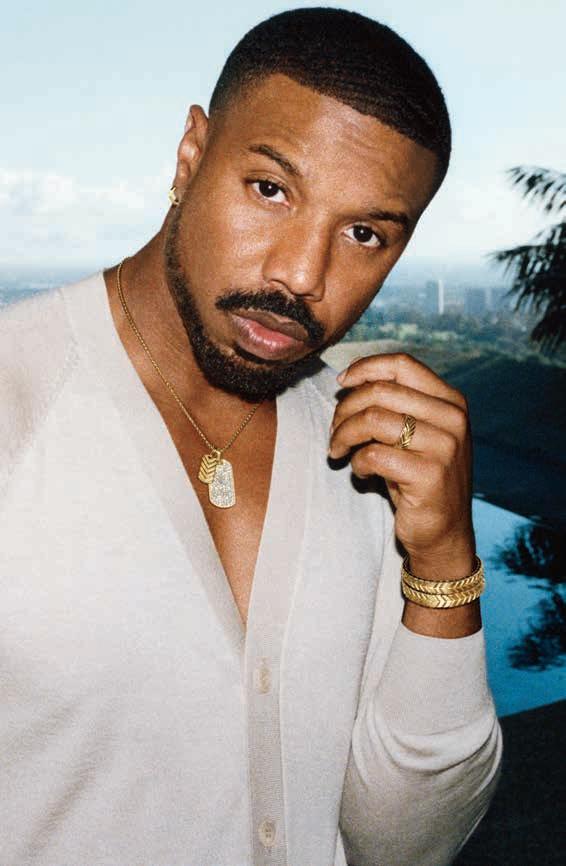
Yes, there are field trips. And yes, we try to ditch the chaperones.

looking for, the support you expect and a community full of friends to share it with.


Yes, there are field trips. And yes, we try to ditch the chaperones.

looking for, the support you expect and a community full of friends to share it with.
Volume 42 No. 5
15 March 15 - 17 — Pops
Nothin’ But the Blues
19 March 22 & 23 — Classics
Bach Fest I: Brandenburg
22 March 23 & 24 — Classics
Bach Fest II: Magnificat
37 April 6 & 7 — Special Sonic Symphony with the MSO
41 April 20 — Special Indigo Girls
45 April 26 - 28 — Classics
Liszt Piano & Symphonie Fantastique
5 Orchestra Roster
7 Music Director
8 Music Director Laureate
9 Assistant Conductor
11 Milwaukee Symphony Chorus
58 MSO Endowment
Musical Legacy Society
59 Annual Fund
62 Gala Sponsors
Gala Paddle Raisers
Corporate & Foundation
63 Matching Gifts/Golden Note Partners/ Marquee Circle/Tributes
66 MSO Board of Directors
67 MSO Administration

This program is produced and published by ENCORE PLAYBILLS. To advertise in any of the following programs:
• Milwaukee Symphony Orchestra
• Florentine Opera
• Milwaukee Ballet
• Marcus Performing Arts Center Broadway Series
• Skylight Music Theatre
• Milwaukee Repertory Theater
• Sharon Lynne Wilson Center
please contact:
Scott Howland at 414.469.7779
scott.encore@att.net
MILWAUKEE SYMPHONY ORCHESTRA 212 West Wisconsin Avenue Milwaukee, Wisconsin 53203 414.291.6010 | mso.org
Connect with us!
MSOrchestra
MilwSymphOrch
@MilwSymphOrch
The MSO and the Bradley Symphony Center have partnered with KultureCity to improve our ability to assist and accommodate guests with sensory needs. For information on available resources, visit mso.org.

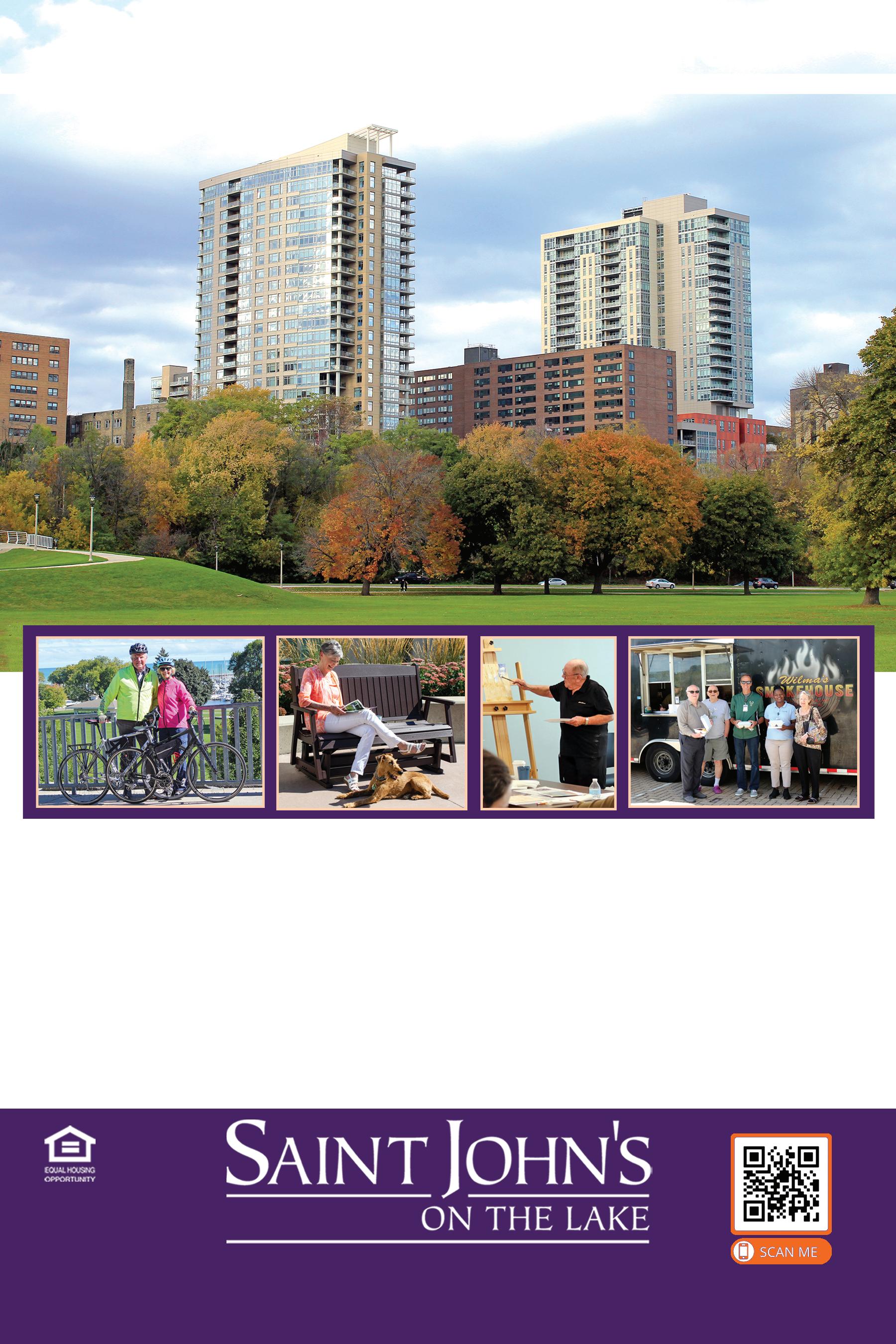

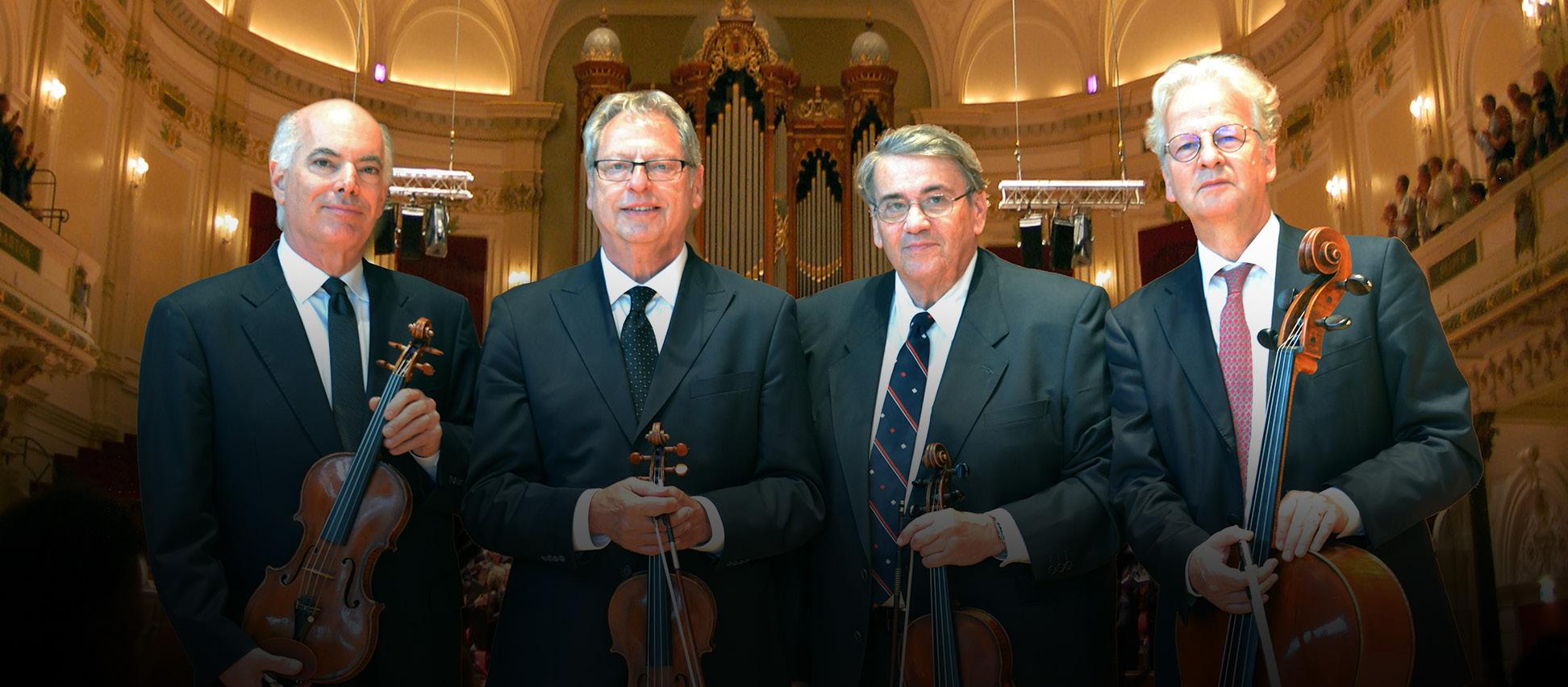
April 7 | Sunday, 3 p.m.
UW-Milwaukee
Helene Zelazo Center
Schumann & Dohnanyi Piano Quintets
April 14 | Sunday, 3 p.m.
Saint Paul’s Episcopal Church
Brahms (Sextet) & Verdi (Quartet)
April 16 | Tuesday, 7 p.m.
UW-Milwaukee
Helene Zelazo Center
Mozart Piano Concerto transcriptions
More at FOFAQ.org | Sponsored by Friends of Fine Arts Quartet and community donors with Create Wisconsin


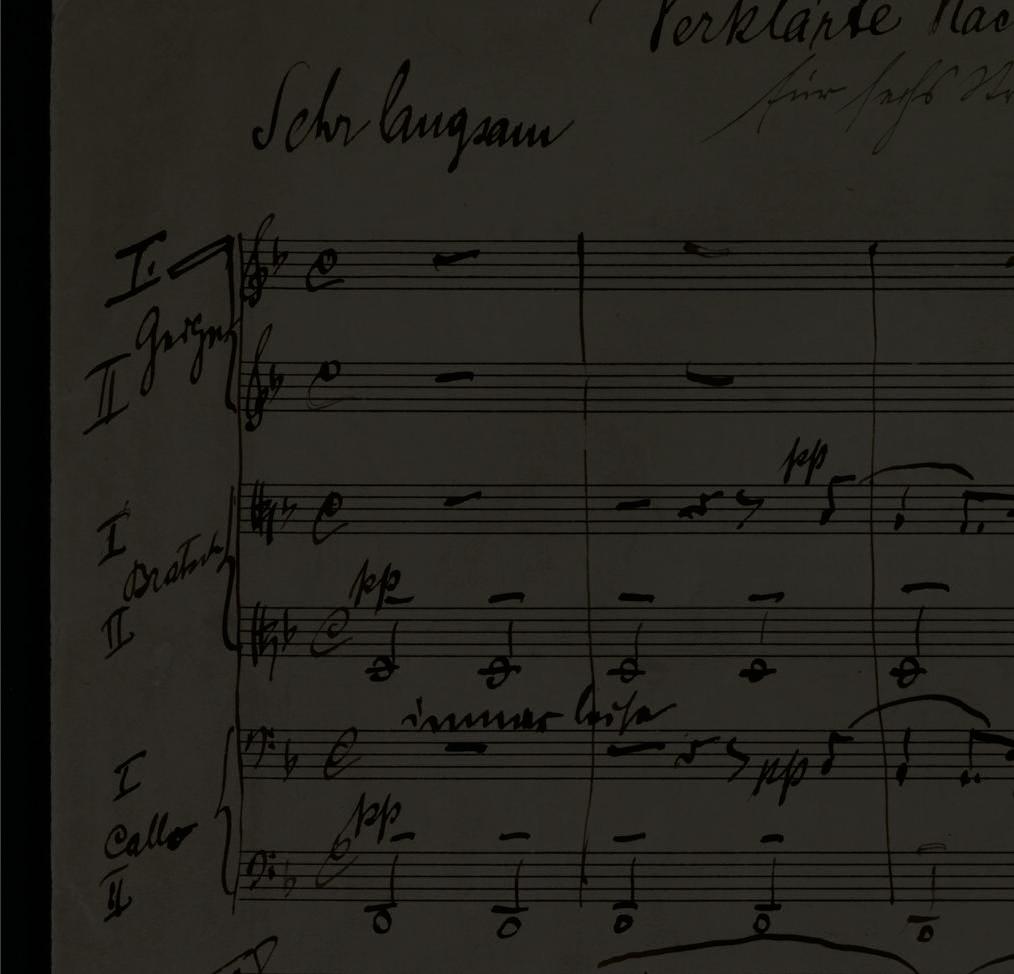
franklymusic.org
MAY 6 MONDAY
7:00 pm Wisconsin Lutheran College
Music of Richard Strauss, Arnold Schoenberg, and Johannes Brahms
Frank Almond, violin
Charlene Kleugel,violin
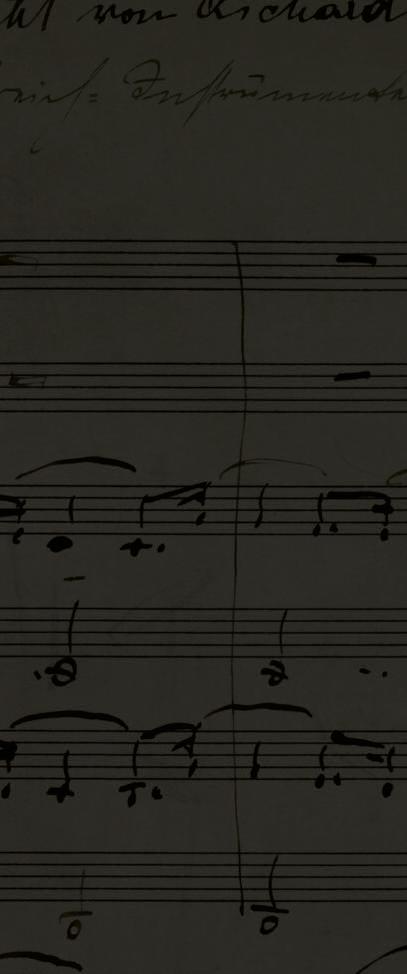
Samantha Rodriguez,viola (Milwaukee Symphony Orchestra)
Alejandro Duque,viola (Milwaukee Symphony Orchestra)

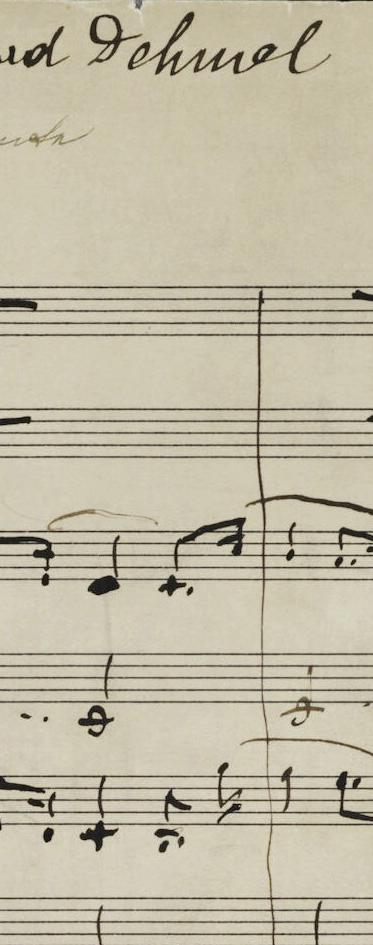
Kenneth Olsen,cello (Assistant Principal, Chicago Symphony Orchestra)
Adrien Zitoun,cello (Milwaukee Symphony Orchestra)

The Milwaukee Symphony Orchestra, led by Music Director Ken-David Masur, is among the finest orchestras in the nation and the largest cultural institution in Wisconsin. Since its inception in 1959, the MSO has found innovative ways to give music a home in the region, develop music appreciation and talent among area youth, and raise the national reputation of Milwaukee.
The MSO’s full-time professional musicians perform over 135 classics, pops, family, education, and community concerts each season in venues throughout the state. A pioneer among American orchestras, the MSO has performed world and American premieres of works by John Adams, Roberto Sierra, Philip Glass, Geoffrey Gordon, Marc Neikrug, and Matthias Pintscher, as well as garnered national recognition as the first American orchestra to offer live recordings on iTunes. Now in its 52nd season, the orchestra’s nationally syndicated radio broadcast series, the longest consecutive-running series of any U.S. orchestra, is heard annually by more than two million listeners on 147 subscriber stations in 38 of the top 100 markets.
In January of 2021, the MSO completed a years-long project to restore and renovate a former movie palace in the heart of downtown Milwaukee. The Bradley Symphony Center officially opened to audiences in October 2021. This project has sparked a renewal on West Wisconsin Avenue and continues to be a catalyst in the community.
The MSO’s standard of excellence extends beyond the concert hall and into the community, reaching more than 30,000 children and their families through its Arts in Community Education (ACE) program, Youth and Teen concerts, Family Series, and Meet the Music pre-concert talks. Celebrating its 34th year, the nationally-recognized ACE program integrates arts education across all subjects and disciplines, providing opportunities for students when budget cuts may eliminate arts programming. The program provides lesson plans and supporting materials, classroom visits from MSO musician ensembles and artists from local organizations, and an MSO concert tailored to each grade level. This season, more than 5,900 students and 500 teachers and faculty are expected to participate in ACE both in person and in a virtual format.
KEN-DAVID MASUR
Music Director
Polly and Bill Van Dyke
Music Director Chair
EDO DE WAART
Music Director Laureate
RYAN TANI
Assistant Conductor
CHERYL FRAZES HILL
Chorus Director
Margaret Hawkins Chorus Director Chair
TIMOTHY J. BENSON
Assistant Chorus Director
FIRST VIOLINS
Jinwoo Lee, Concertmaster, Charles and Marie Caestecker Concertmaster Chair
Ilana Setapen, First Associate Concertmaster
Jeanyi Kim, Associate Concertmaster
Alexander Ayers
Yuka Kadota
Elliot Lee**
Ji-Yeon Lee
Dylana Leung
Kyung Ah Oh
Lijia Phang
Yuanhui Fiona Zheng
SECOND VIOLINS
Jennifer Startt, Principal, Andrea and Woodrow Leung Second Violin Chair
Timothy Klabunde, Assistant Principal
John Bian, Assistant Principal (3rd chair)
Glenn Asch
Lisa Johnson Fuller
Paul Hauer
Hyewon Kim
Alejandra Switala**
Mary Terranova
VIOLAS
Robert Levine, Principal, Richard O. and Judith A. Wagner Family Principal Viola Chair
Georgi Dimitrov, Assistant Principal (2nd chair), Friends of Janet F. Ruggeri Viola Chair
Samantha Rodriguez, Assistant Principal (3rd chair)
Alejandro Duque, Acting Assistant Principal (3rd chair)
Elizabeth Breslin
Nathan Hackett
Erin H. Pipal
Helen Reich
CELLOS
Susan Babini, Principal, Dorothea C. Mayer Cello Chair
Nicholas Mariscal, Assistant Principal*
Shinae Ra, Acting Assistant Principal (2nd chair)
Scott Tisdel, Associate Principal Emeritus
Madeleine Kabat
Peter Szczepanek
Peter J. Thomas
Adrien Zitoun
BASSES
Jon McCullough-Benner, Principal, Donald B. Abert Bass Chair*
Andrew Raciti, Acting Principal
Nash Tomey, Acting Assistant Principal (2nd chair)
Brittany Conrad
Teddy Gabrieledes**
Peter Hatch*
Paris Myers
HARP
Julia Coronelli, Principal, Walter Schroeder Harp Chair
FLUTES
Sonora Slocum, Principal, Margaret and Roy Butter Flute Chair
Heather Zinninger, Assistant Principal
Jennifer Bouton Schaub
PICCOLO
Jennifer Bouton Schaub
OBOES
Katherine Young Steele, Principal, Milwaukee Symphony League Oboe Chair
Kevin Pearl, Assistant Principal
Margaret Butler
ENGLISH HORN
Margaret Butler, Philip and Beatrice Blank English Horn Chair in memoriam to John Martin
CLARINETS
Todd Levy, Principal, Franklyn Esenberg Clarinet Chair
Benjamin Adler, Assistant Principal, Donald and Ruth P. Taylor Assistant Principal Clarinet Chair*
Taylor Eiffert*
Madison Freed**
E-FLAT CLARINET
Benjamin Adler*
BASS CLARINET
Taylor Eiffert*
Madison Freed**
BASSOONS
Catherine Van Handel, Principal, Muriel C. and John D. Silbar Family Bassoon Chair
Rudi Heinrich, Assistant Principal
Beth W. Giacobassi
CONTRABASSOON
Beth W. Giacobassi
HORNS
Matthew Annin, Principal, Krause Family French Horn Chair
Krystof Pipal, Associate Principal
Dietrich Hemann, Andy Nunemaker French Horn Chair
Darcy Hamlin
Kelsey Williams**
TRUMPETS
Matthew Ernst, Principal, Walter L. Robb Family Trumpet Chair
David Cohen, Associate Principal, Martin J. Krebs Associate Principal Trumpet Chair
TROMBONES
Megumi Kanda, Principal, Marjorie Tiefenthaler Trombone Chair
Kirk Ferguson, Assistant Principal
BASS TROMBONE
John Thevenet, Richard M. Kimball Bass Trombone Chair
TUBA
Robyn Black, Principal, John and Judith Simonitsch Tuba Chair
TIMPANI
Dean Borghesani, Principal
Chris Riggs, Assistant Principal
PERCUSSION
Robert Klieger, Principal
Chris Riggs
PIANO
Melitta S. Pick Endowed Piano Chair
PERSONNEL MANAGER
Françoise Moquin, Director of Orchestra Personnel
LIBRARIANS
Paul Beck, Principal Librarian, Anonymous Donor, Principal Librarian Chair
Matthew Geise, Assistant Librarian & Media Archivist
PRODUCTION
Tristan Wallace, Production Manager/ Live Audio
* Leave of Absence 2023.24 Season
** Acting member of the Milwaukee Symphony Orchestra 2023.24 Season
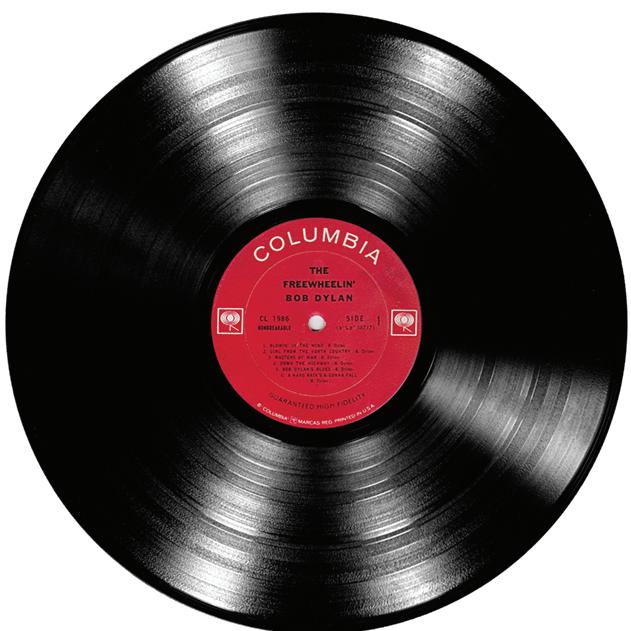
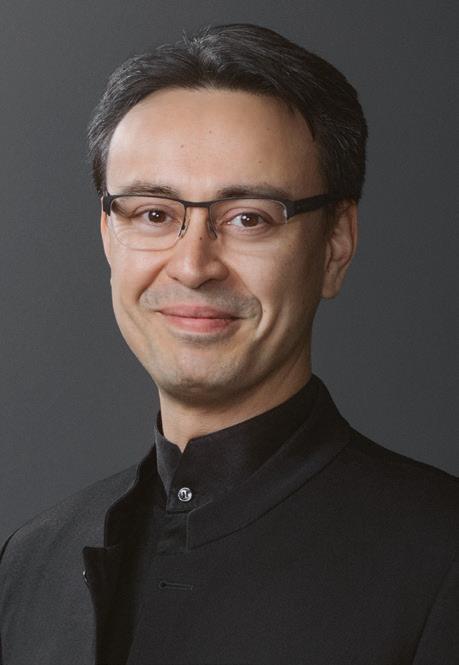
Hailed as “fearless, bold, and a life-force” (San Diego UnionTribune) and “a brilliant and commanding conductor with unmistakable charisma” (Leipzig Volkszeitung), Ken-David Masur is celebrating his fifth season as music director of the Milwaukee Symphony Orchestra and principal conductor of the Chicago Symphony’s Civic Orchestra. He has conducted distinguished orchestras including the Chicago Symphony, the Los Angeles Philharmonic, the San Francisco Symphony, the Minnesota Orchestra, l’Orchestre National de France, the Yomiuri Nippon Symphony, the National Philharmonic of Russia, and others throughout the United States, France, Germany, Korea, Japan, and Scandinavia.
Masur’s tenure in Milwaukee has been marked by innovative thematic programming, including a festival celebrating the music of the 1930s, when the Bradley Symphony Center was built, and the Water Festival, which highlighted local community partners whose work centers on water conservation and education. He has also instituted a multi-season artist-in-residence program, and he has led highly-acclaimed performances of major choral works, including a semi-staged production of Peer Gynt. This season, he begins a residency with bass-baritone Dashon Burton and leads the MSO in an inaugural city-wide Bach Festival, celebrating the diverse and universal appeal of J.S. Bach’s music in an ever-changing world.
Last season, Masur made his New York Philharmonic debut in a gala program featuring John Williams and Steven Spielberg. He also debuted at the Pacific Music Festival in Sapporo, Japan and at Classical Tahoe in three programs that were broadcast on PBS, and he led the Boston Symphony Orchestra, Yo-Yo Ma, Itzhak Perlman, Branford Marsalis, and James Taylor at Tanglewood in a 90th birthday concert for John Williams. The summer of 2023 marked Masur’s debuts with the Grant Park Festival and the National Repertory Orchestra; later this season, he returns to the Baltimore Symphony and the Kristiansand Symphony.
Previously, Masur was associate conductor of the Boston Symphony Orchestra. During his five seasons there, he led numerous concerts at Symphony Hall and at Tanglewood. For eight years, Masur served as principal guest conductor of the Munich Symphony, and he has also served as associate conductor of the San Diego Symphony and as resident conductor of the San Antonio Symphony.
Music education and working with the next generation of young artists are of major importance to Masur. In addition to his work with Civic Orchestra of Chicago, he has conducted orchestras and led masterclasses at the University of Wisconsin-Milwaukee’s Peck School of the Arts, New England Conservatory, Manhattan School of Music, Boston University, Boston Conservatory, Tokyo’s Bunka Kaikan Chamber Orchestra, the Tanglewood Music Center Orchestra, and The Juilliard School, where he leads the Juilliard Orchestra this fall.
Masur is passionate about contemporary music and has conducted and commissioned dozens of new works, many of which have premiered at the Chelsea Music Festival, an annual summer festival in New York City founded and directed by Masur and his wife, pianist Melinda Lee Masur. The Festival, which celebrates its 15th anniversary in 2024, has been praised by The New York Times as a “gem of a series” and by Time Out NY as an “impressive addition to New York’s cultural ecosystem.”
Masur and his family are proud to call Milwaukee their home and enjoy exploring all the riches of the Third Coast.
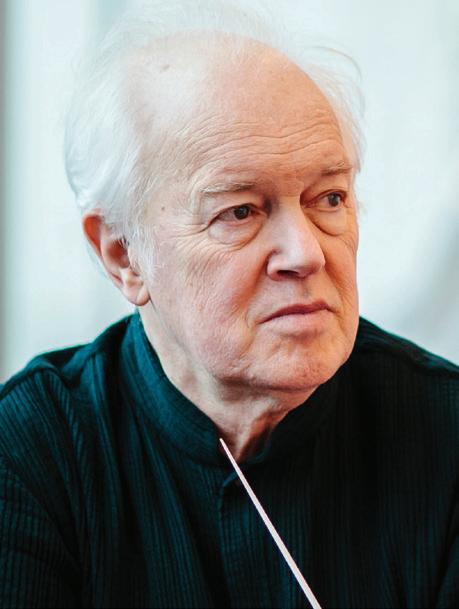
Throughout his long and illustrious career, renowned Dutch conductor Edo de Waart has held a multitude of posts with orchestras around the world, including music directorships with the Rotterdam Philharmonic Orchestra, San Francisco Symphony, Minnesota Orchestra, Netherlands Radio Philharmonic Orchestra, Hong Kong Philharmonic, Milwaukee Symphony Orchestra, Antwerp Symphony, New Zealand Symphony, and Sydney Symphony Orchestra, and a chief conductorship with the De Nederlandse Opera and Santa Fe Opera.
Edo de Waart is principal guest conductor of the San Diego Symphony, conductor laureate of both the Antwerp Symphony Orchestra and Netherlands Radio Philharmonic Orchestra, and music director laureate of the Milwaukee Symphony Orchestra. This season, he returns to Netherlands Radio Philharmonic Orchestra and the Milwaukee, San Diego, and Fort Worth symphony orchestras.
As an opera conductor, de Waart has enjoyed success in a large and varied repertoire in many of the world’s greatest opera houses. He has conducted at Bayreuth, Salzburg Festival, Royal Opera House, Covent Garden, Grand Théâtre de Genève, Opéra Bastille, Santa Fe Opera, and the Metropolitan Opera. With the aim of bringing opera to broader audiences where concert halls prevent full staging, he has, as music director in Milwaukee, Antwerp, and Hong Kong, often conducted semi-staged and opera-in-concert performances.
A renowned orchestral trainer, he has been involved with projects working with talented young players at the Juilliard and Colburn schools and the Music Academy of the West in Santa Barbara.
Edo de Waart’s extensive catalogue encompasses releases for Philips, Virgin, EMI, Telarc, and RCA. Recent recordings include Henderickx’s Symphony No. 1 and Oboe Concerto, Mahler’s Symphony No. 1, and Elgar’s Dream of Gerontius, all with the Royal Flemish Philharmonic.
Beginning his career as an assistant conductor to Leonard Bernstein at the New York Philharmonic, de Waart then returned to Holland, where he was appointed assistant conductor to Bernard Haitink at the Royal Concertgebouw Orchestra.
Edo de Waart has received a number of awards for his musical achievements, including becoming a Knight in the Order of the Netherlands Lion and an Honorary Officer in the General Division of the Order of Australia. He is also an Honorary Fellow of the Hong Kong Academy for Performing Arts.
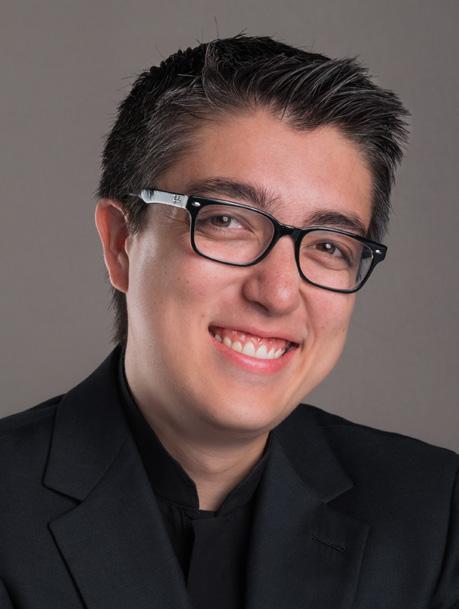
Ryan Tani is in his first season as assistant conductor of the Milwaukee Symphony Orchestra. In 2021, he completed his two-year tenure as the Orchestral Conducting Fellow for the Yale Philharmonia under Music Director Peter Oundjian, where he was the recipient of the Dean’s Prize for artistic excellence in his graduating class. Committed to meaningful community music-making in the state of Montana, Tani has directed the Bozeman Chamber Orchestra, Bozeman Symphonic Choir, Second String Orchestra, and MSU Symphony Orchestras. He frequently serves as cover conductor for the St. Louis, Colorado, and Bozeman symphonies and also recently served on the faculty at the Montana State University School of Music.
Tani recently concluded his tenure as music director of the Occasional Symphony in Baltimore. A fierce advocate of new music, Tani curated over 20 commissions from Baltimore-based composers during his four-year directorship of OS. As resident conductor of the New Music New Haven series, he has collaborated, under the guidance of Aaron Jay Kernis, with Yale University composition students and faculty.
Tani is also a graduate of the Peabody Institute, where he studied conducting with Marin Alsop and Markand Thakar, and of the University of Southern California, where he studied voice with Gary Glaze. In 2015, he was declared the winner of the ACDA Undergraduate Student Conducting Competition at their national conference in Salt Lake City, Utah. In addition to his studies at Yale and Peabody, Tani has also studied conducting with Larry Rachleff, Donald Schleicher, Gerard Schwarz, Grant Cooper, and José-Luis Novo. Tani currently resides in Milwaukee, Wisconsin, where he can be found in the park with his dog, playing board games with friends and family, in the library with a good book, or in the practice room with his violin.
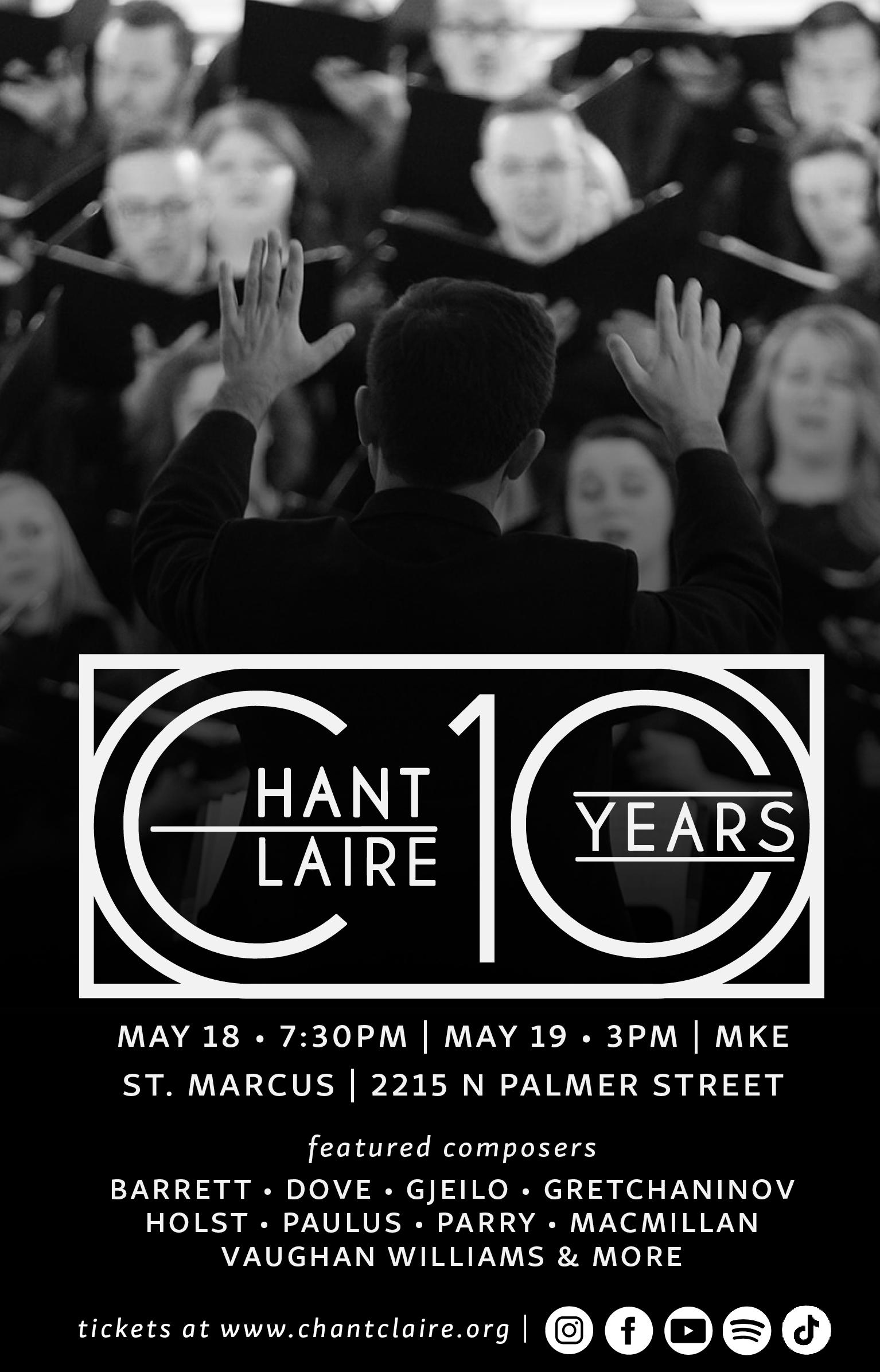
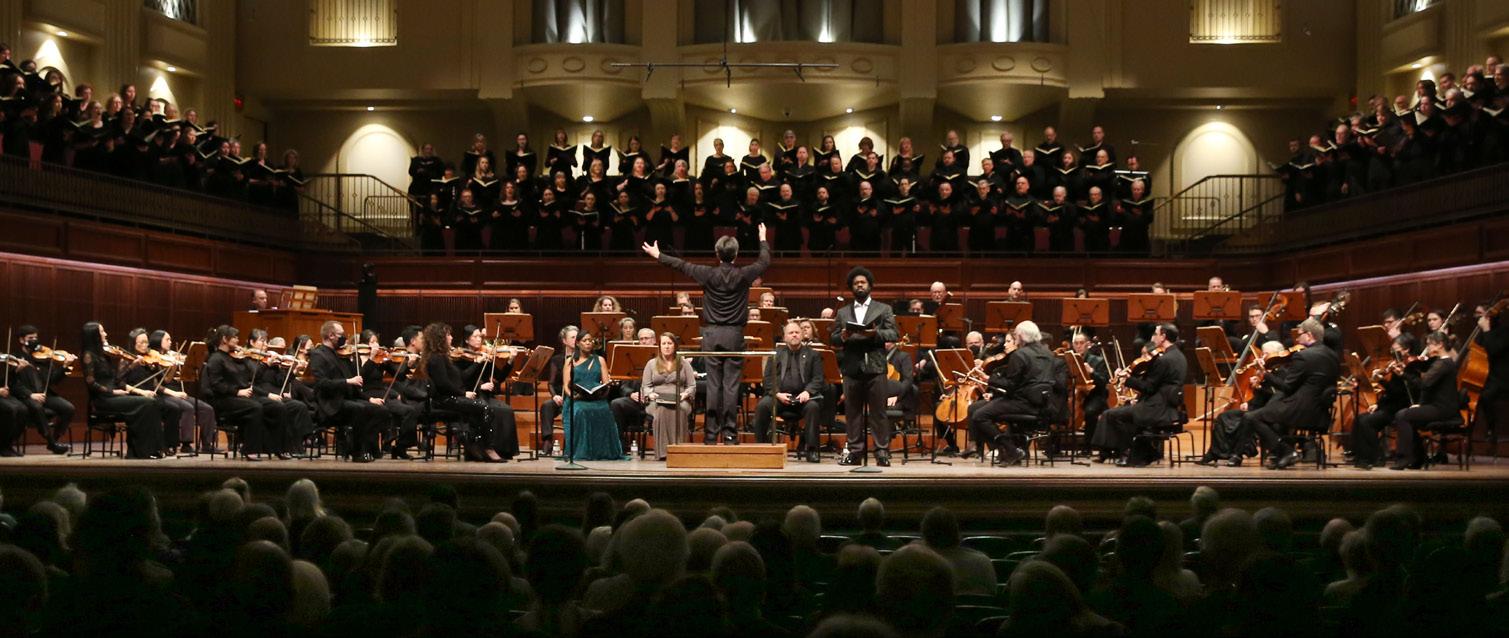
The Milwaukee Symphony Chorus, founded in 1976, is known and respected as one of the finest choruses in the country. Under the direction of Dr. Cheryl Frazes Hill, the 2023.24 chorus season with the MSO includes works by Beethoven, Bach, Debussy, and Orff, as well as Handel’s Messiah and the Holiday Pops performances.
The 150-member chorus has been praised by reviewers for “technical agility,” “remarkable ensemble cohesion,” and “tremendous clarity.” In addition to performances with the MSO, the chorus has appeared on public television and recorded performances for radio stations throughout the country. The chorus has performed a cappella concerts to sold-out audiences and has made guest appearances with other performing arts groups, including Present Music, Milwaukee Ballet, and the Chicago Symphony Orchestra. The chorus has also made appearances at suburban Chicago’s famed Ravinia Festival.
The Margaret Hawkins Chorus Director Chair was funded by a chorus-led campaign during the ensemble’s 30th anniversary season in 2006, in honor of the founding chorus director, Margaret Hawkins.
Comprised of teachers, lawyers, students, doctors, musicians, homemakers, and more, each of its members brings not only musical quality, but a sheer love of music to their task. “We have the best seats in the house,” one member said, a sentiment echoed throughout the membership. Please visit mso.org/chorus for more information on becoming a part of the Milwaukee Symphony Chorus.
Anna Aiuppa
Mia Akers
Laura Albright-Wengler
* James B. Anello
u Thomas R. Bagwell
Barbara Barth
Czarkowski
Scott Bass
Mary Ann Beatty
Marshall Beckman
Zachary Beeksma
Yacob Bennett
* JoAnn Berk
Edward Blumenthal
u Scott Bolens
Madison Bolt
Robert Bortman
Neil R. Brooks
Michelle Budny
Ellen N. Burmeister
Gabrielle Campbell
Gerardo Carcar
Elise Cismesia
Ian Clark
Sarah M. Cook
Amanda Coplan
u Sarah Culhane
Phoebe Dawsey
Colin Destache
Emma DeVries
Becky Diesler
Rebeca Dishaw
Megan Kathleen Dixson
Rachel Dutler
u James Edgar
Joe Ehlinger
Jay Endres
Katelyn Farebrother
Michael Faust
Catherine Fettig
Marty Foral
Robert Friebus
Karen Frink
Maria Fuller
William Gesch
Samantha Gibson
Jessica Golinski
* Mark R. Hagner
Eric W. Hanrehan
Beth Harenda
u Karen Heins
Mary Catherine Helgren
Kurt Hellermann
Martha Hellermann
Sara E. Herrick
Eric Hickson
Michelle Hiebert
Laura Hochmuth
Matthew Hunt
Stan Husi
u
Tina Itson
• Christine Jameson
Paula J. Jeske
Andrew Johnson
John Jorgensen
• Heidi Kastern
Michelle Beschta Klotz
Robert Anton Knier
Jill Kortebein
Kaleigh KozakLichtman
u Joseph M. Krechel
Julia M. Kreitzer
Savannah Grace Kroeger
• Harold Krueger
Benjamin Kulhmann
Pamela Lembke
Cheryl Frazes Hill, chorus director
Timothy J. Benson, assistant director
Kayoko Miyazawa, primary pianist
Alexandra Lerch-Gaggl
Noah Liermann
Nicholas Lin
Robert Lochhead
Kristine Lorbeske
Grace Majewski
Douglas R. Marx
Joy Mast
Justin J. Maurer
Kathryn McGinn
Shannon McMullen
Kathleen Ortman Miller
Megan Miller
Victor Montañez Cruz
Bailey Moorhead
Jennifer Mueller
Lucia Muniagurria
* Matthew Neu
Kristin Nikkel
Jason Niles
Alice Nuteson
Robert Paddock
R. Scott Pierce
u Jessica E. Pihart
Olivia Pogodzinski
Gabriel Poulson
Kaitlin Quigley
Mary E. Rafel
* Jason Reuschlein
Rehanna Rexroat
James Reynolds
Marc Charles Ricard
Amanda Robison
* Bridget Sampson
James Sampson
Darwin J. Sanders
Jenny E. Sanders
Alana Sawall
Autumn Schacherl
John T. Schilling
Terree Shofner-Emrich, Diane Kachelmeier, rehearsal pianists
Darwin J. Sanders, language/diction coach
Christina Williams, chorus manager
Sarah Schmeiser
Rand C. Schmidt
Randy Schmidt
u
Allison Schnier
Andrew T. Schramm
Trinny Schumann
Bob Schuppel
Matthew Seider
Bennett Shebesta
u Hannah Sheppard
David Siegworth
Bruce Soto
Joel P. Spiess
* Todd Stacey
u Donald E. Stettler
Scott Stieg
* Donna Stresing
Ashley Ellen Suresh
Joseph Thiel
Dean-Yar Tigrani
Clare Urbanski
Tess Weinkauf
Emma Mingesz Weiss
Michael Werni
Erin Weyers
Cameron Wilkins
Christina Williams
Emilie Williams
Sally Witte
Kevin R. Woller
Rachel Yap
* Jamie Mae Yu
Michele Zampino
Katarzyna Zawislak
Stephanie Zimmer
u Section Leader
* Mentor
• Librarian
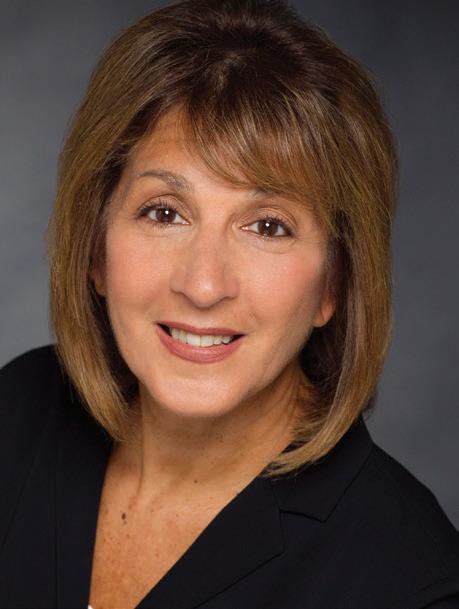
Dr. Cheryl Frazes Hill is now in her seventh season as director of the Milwaukee Symphony Chorus. In addition to her role in Milwaukee, she is the associate conductor of the Chicago Symphony Chorus. Frazes Hill is Professor Emeritus at Roosevelt University’s Chicago College of Performing Arts, where she served for 20 years as director of choral activities. During the 2023.24 season, Frazes Hill will prepare the Milwaukee Symphony Chorus for classical performances of Beethoven’s Meeresstille und glückliche Fahrt and Choral Fantasy, Bach’s Magnificat, Debussy’s Nocturnes, and Orff’s Carmina Burana, as well as for holiday performances of Handel’s Messiah.
In her role as the Chicago Symphony Chorus associate conductor, she has prepared the chorus for Maestros Alsop, Boulez, Barenboim, Conlon, Levine, Mehta, Salonen, Tilson Thomas, and many others. Recordings of Frazes Hill’s chorus preparations on the Chicago Symphony Orchestra label include Beethoven, A Tribute to Daniel Barenboim, and Chicago Symphony Chorus: A 50th Anniversary Celebration.
Under her direction, the Roosevelt University choruses have been featured in prestigious and diverse events, including appearances at national and regional music conferences and performances with professional orchestras, including the Chicago Symphony Orchestra, the Chicago Sinfonietta, the Civic Orchestra of Chicago, and the Illinois Philharmonic. The Roosevelt Conservatory Chorus received enthusiastic reviews for their American premiere of Jacob ter Veldhuis’s Mountain Top. Other recent performances have included the internationally acclaimed production of Defiant Requiem and three appearances with The Rolling Stones during a recent United States concert tour.
Frazes Hill received her Master of Music and Doctorate degrees in conducting from Northwestern University and undergraduate degrees in voice and music education from the University of Illinois. An accomplished vocalist, she is a featured soloist in the Grammynominated CBS Masterworks release Mozart: Music for Basset Horns. An award-winning conductor/educator, Frazes Hill recently received the ACDA Harold Decker Conducting Award, the Mary Hoffman Music Educators Award, and in recent years the Commendation of Excellence in Teaching from the Golden Apple Foundation, the Illinois Governor’s Award, Roosevelt University’s Presidential Award for Social Justice, the Northwestern University Alumni Merit Award, and the Outstanding Teaching Award from the University of Chicago, among many others.
Frazes Hill’s recently released book, Margaret Hillis: Unsung Pioneer, a biography of the famed female conductor, received a commendation from the 2023 Midwest Book Awards. The book is available on Amazon and in bookstores. Frazes Hill is nationally published on topics of her research in music education and choral conducting. A frequent guest conductor and guest speaker, Frazes Hill has recently collaborated with Maestro Marin Alsop at Ravinia Festival’s Breaking Barriers: Women on the Podium.
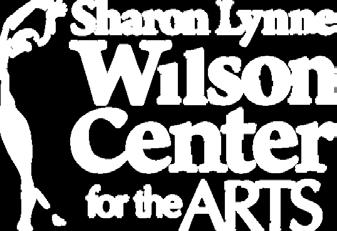
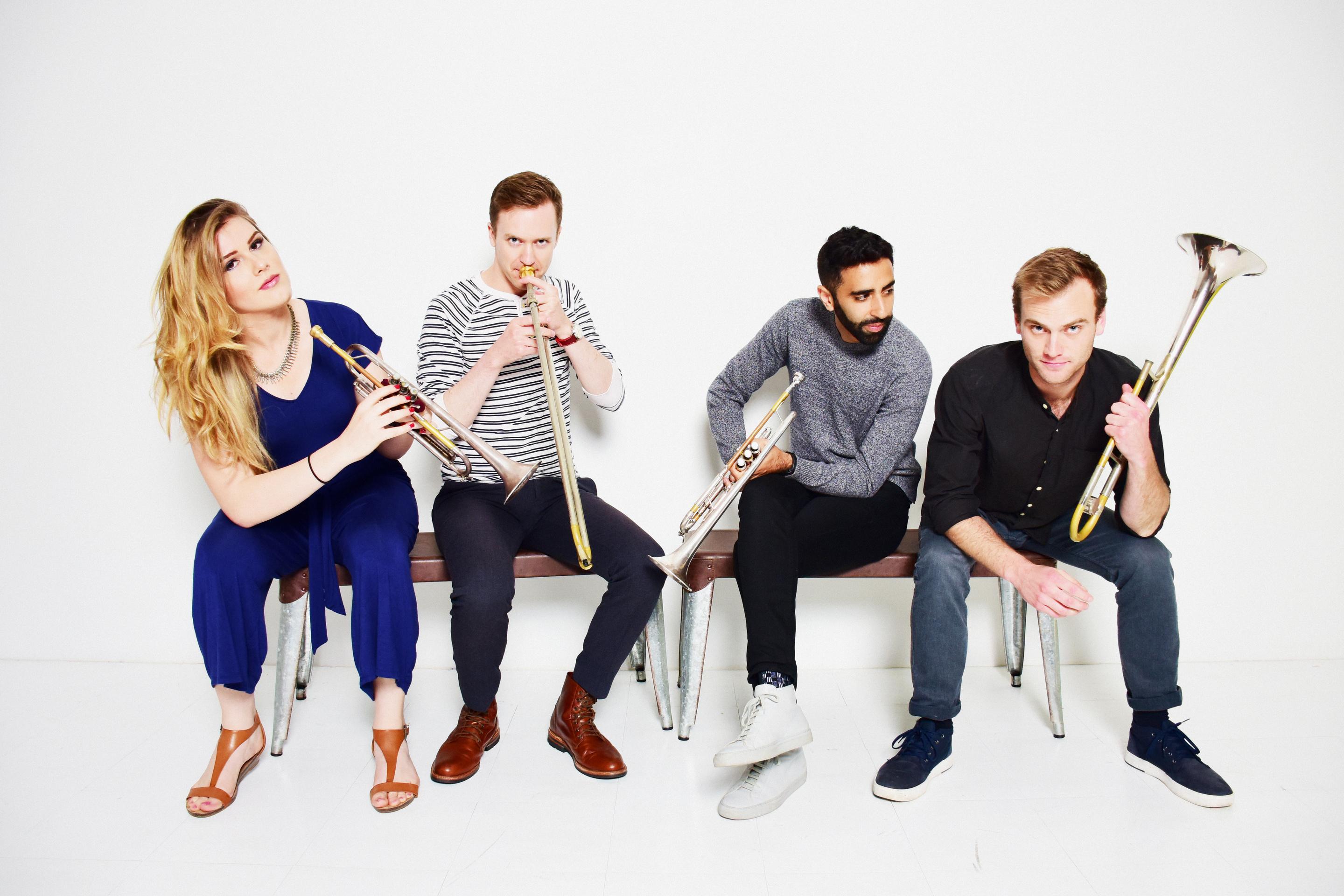
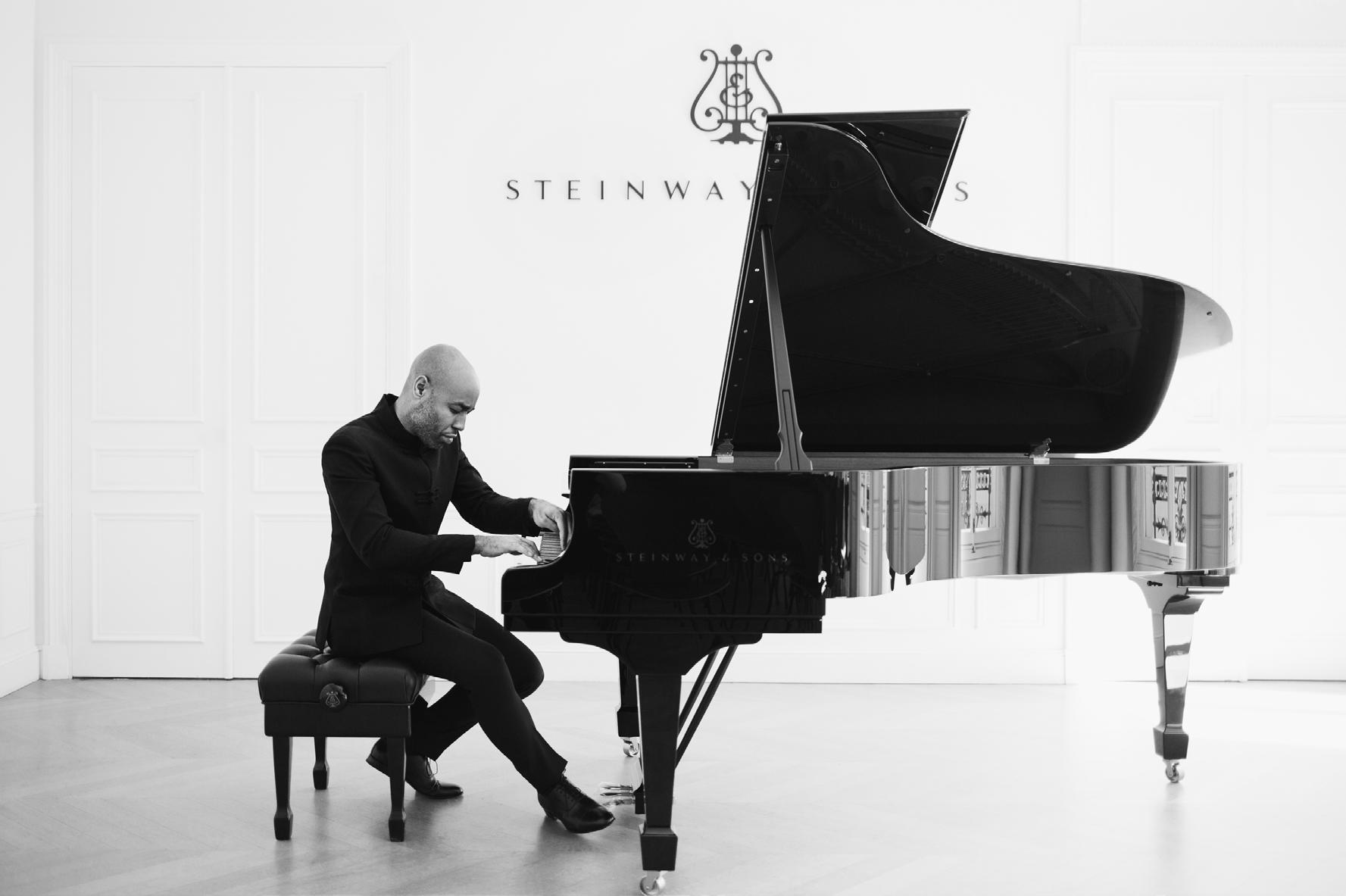


Friday, March 15, 2024 at 7:30 pm
Saturday, March 16, 2024 at 7:30 pm
Sunday, March 17, 2024 at 2:30 pm
ALLEN-BRADLEY HALL
Ryan Tani, conductor
Shayna Steele, vocalist
BILLY MEYERS, JACK PETTIS, AND ELMER SCHOEBEL/arr. Jeff Tyzik
Bugle Call Blues
FERDINAND “JELLY ROLLY” MORTON/arr. Jeff Tyzik
King Porter Stomp
LOVIE AUSTIN AND ALBERTA HUNTER/arr. Jeff Tyzik
Down Hearted Blues
WILLIAM CHRISTOPHER HANDY/arr. Jeff Tyzik
St. Louis Blues
LEW BROWN, BUDDY DESYLVA, AND RAY HENDERSON/arr. Jeff Tyzik
Birth of the Blues
JEFF TYZIK
Blues Train
PORTER GRAINGER AND EVERETT ROBBINS/arr. Jeff Tyzik
Tain’t Nobody’s Biz-ness if I Do
TRADITIONAL/arr. Jeff Tyzik
St. James Infirmary
JEFF TYZIK
Downtown Shuffle
IN TERMISSION
Continued on page 16
Continued From page 15
LOUIS PRIMA/arr. Jeff Tyzik
Swing, Swing, Swing
FERDINAND “JELLY ROLLY” MORTON/arr. Jeff Tyzik
Jelly Roll Jive
BESSIE SMITH/arr. Jeff Tyzik
Backwater Blues
LEMON HENRY “BLIND LEMON” JEFFERSON/arr. Jeff Tyzik
Bad Luck Blues
NEW ORLEANS RHYTHM KINGS/arr. Jeff Tyzik
Tin Roof Blues
JIMMIE COX/arr. Jeff Tyzik
Nobody Knows When You’re Down and Out
WILLIE MAE “BIG MAMA” THORNTON
Life Goes On
DAVID COOK AND SHAYNA STEELE/orch. Jeff Tyzik
Wear Me Down
This weekend’s media sponsor is WISCONSIN PUBLIC RADIO.
The length of this concert is approximately 2 hours. All programs are subject to change.
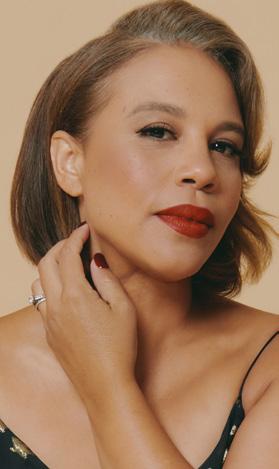
There’s no need to sugarcoat it, since her impressive credits speak for themselves. Her colleagues praise her ability, her dedication, and her drive to perfect her craft as a professional singer and knockout performer. On stage and in the studio, New York City-based vocalist and songwriter Shayna Steele proves she is a vocal force to be reckoned with.
After appearing on Broadway in Rent, Jesus Christ Superstar, and the original cast of Hairspray, Steele started writing music with partner David Cook in 2002. The two quickly developed a creative synergy, collaborating on Steele’s eponymous debut EP in 2004. Though self-released, the album’s breakout soul-funk single “High Yella” achieved the attention she needed to raise her solo profile. She and/or her band have since shared the stage with luminaries including Ledisi, who opened for George Clinton and the Sugar Hill Gang, a featured singer with Björkestra and Grammy-winning conductor, composer, and trumpeter Dave Douglas, featured with Grammy Award-winner Snarky Puppy in 2014 at the Nice Jazz Festival, the Estival Jazz Festival, the North Sea Jazz Festival, Java Jazz Festival, and the Singapore Jazz Festival. Steele is a vocalist with the Grammy-nominated Broadway Inspirational Voices and has worked as a sideman with Lizz Wright, Bette Midler, Natasha Bedingfield, John Legend, Matthew Morrison, Yeah Yeah Yeahs, Queen Latifah, Dolly Parton, Rihanna, and Kelly Clarkson.
“Disco Lies,” the first single off Moby’s 2008 release Last Night, reached #1 on the U.S. Billboard Dance charts and went on to be featured in J.J. Abrams’s summer blockbuster Cloverfield and the movie The Backup Plan starring Jennifer Lopez. Her voice has remained in high demand, with vocals on the Hairspray movie soundtrack, 2012’s The Bourne Legacy, Sex and the City 2, NBC’s Smash, 2008 Summer Olympic highlights on BBC, The Shanghai Restoration Project, and HBO’s The Sopranos. In 2016, Steele reprised her role with the “Dynamites” in NBC’s Hairspray Live. Steele’s sophomore album, RISE (Ropeadope Records), has received rave reviews from both critics and fans alike and reached #4 on the U.S. iTunes jazz charts and #2 on the Italian iTunes Jazz Charts.
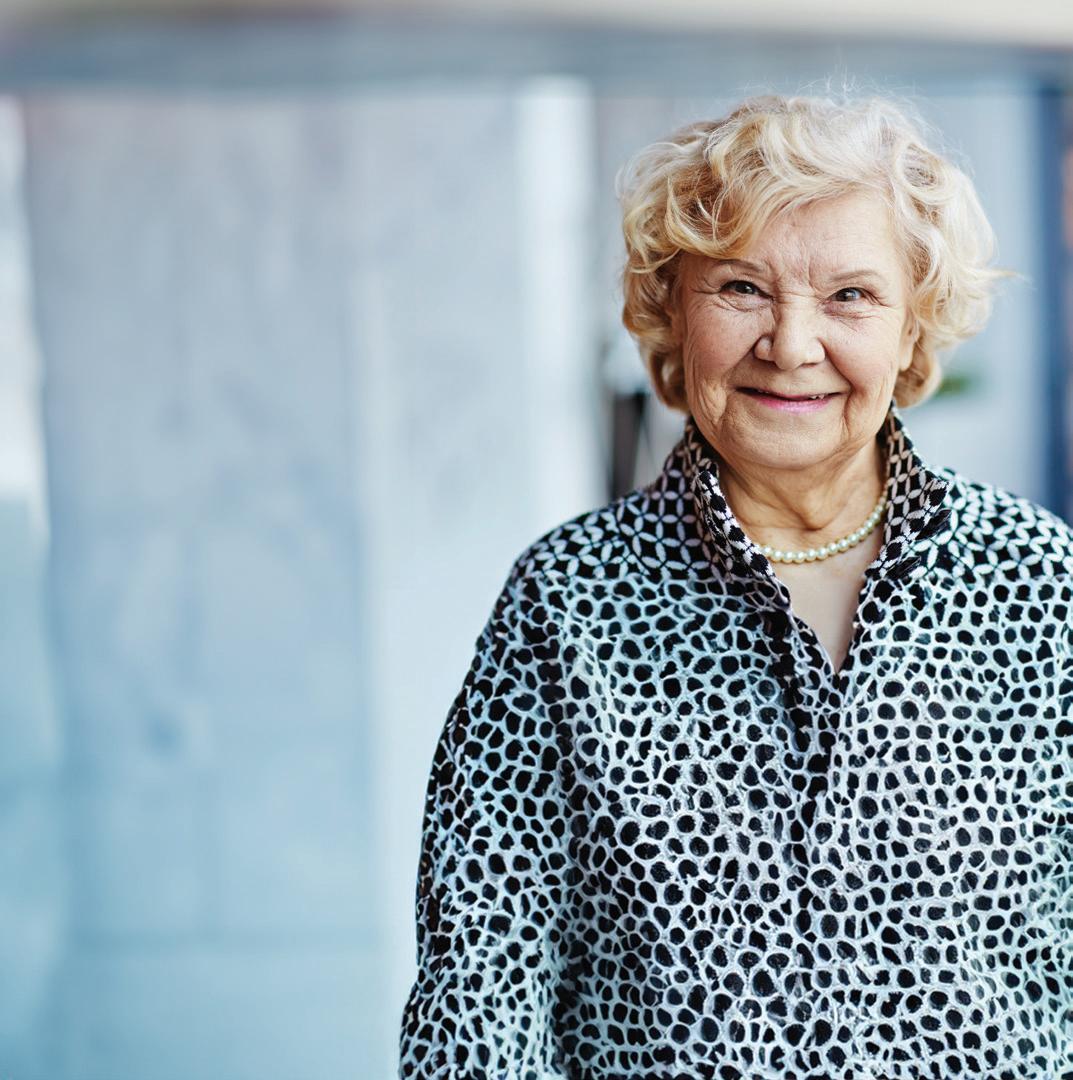


Friday, March 22, 2024 at 7:30 pm
Saturday, March 23, 2024 at 2:30 pm
ALLEN-BRADLEY HALL
Ken-David Masur, conductor
Mahan Esfahani, harpsichord & leader
Rachell Ellen Wong, violin & leader
JOHANN SEBASTIAN BACH
Concerto No. 2 in E major for Violin and String Orchestra, BWV 1042
I. Allegro
II. Adagio
III. Allegro assai
Rachell Ellen Wong, violin & leader
JOHANN SEBASTIAN BACH
Brandenburg Concerto No. 5 in D major, BWV 1050
I. Allegro
II. Affettuoso
III. Allegro
Mahan Esfahani, harpsichord & leader
Rachell Ellen Wong, violin
Sonora Slocum, flute
JOHANN SEBASTIAN BACH
Brandenburg Concerto No. 1 in F major, BWV 1046
I. [No tempo indication]
II. Adagio
III. Allegro
IV. Menuetto
Mahan Esfahani, harpsichord & leader
Ilana Setapen, violin
JOHANN SEBASTIAN BACH
Suite No. 3 in D major for Orchestra, BWV 1068
I. Overture
II. Air
III. Gavotte I — Gavotte II
IV. Bourrée
V. Gigue
Mahan Esfahani, harpsichord & leader
Ilana Setapen, violin
The 2023.24 Classics Series is presented by the UNITED PERFORMING ARTS FUND and ROCKWELL AUTOMATION. The Bach Festival is sponsored by the WE ENERGIES FOUNDATION and the SCHOENLEBER FOUNDATION.
The length of this concert is approximately 1 hour and 45 minutes. Guest artist biographies and program notes begin on page 24.
Every detail has been thoughtfully designed to provide comfort, peace, and spaciousness. Along with a showcase of amazing views—all year round—on 245 wooded acres.
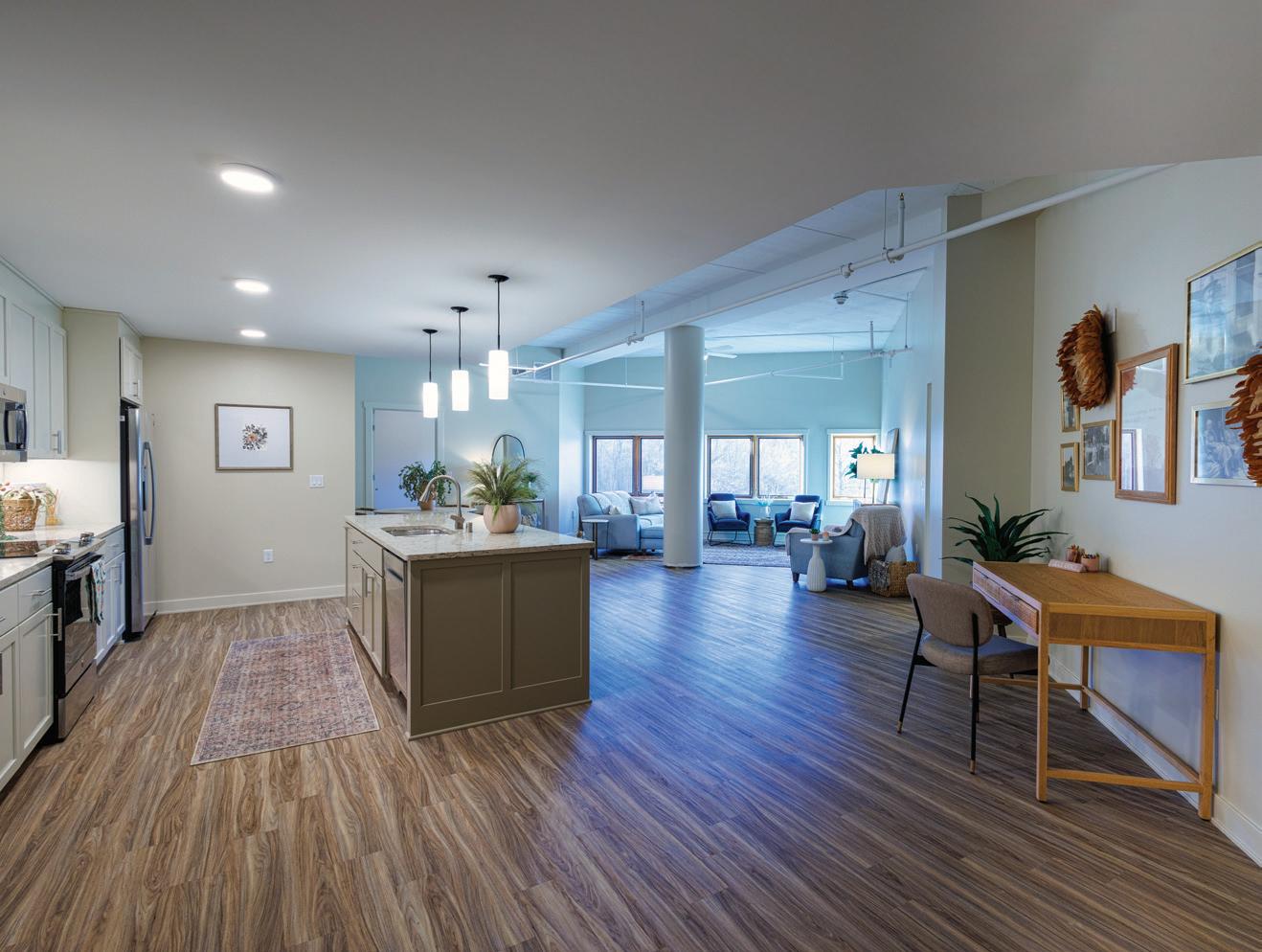
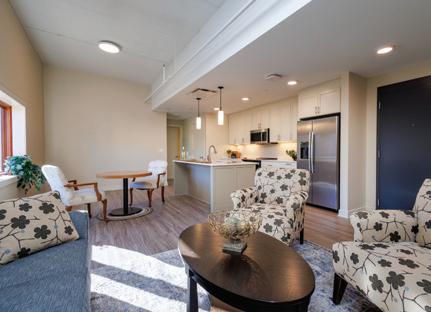

Features
Two bedrooms and two bathrooms
Luxury vinyl plank flooring throughout the kitchen, dining, and family rooms
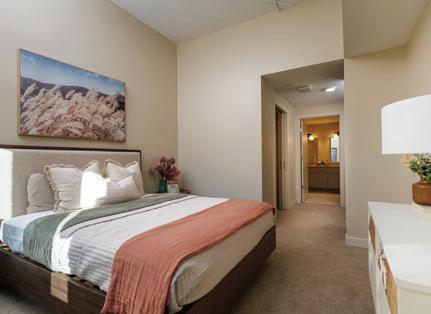

. Tile floor bathrooms
Quartz countertops
Amish custom cabinetry
. Spacious design–most with wooded views
Outdoor green space, trails, and lake access
Intimate courtyard garden
Exercise atrium
. Lounge and gathering spaces
Pet friendly
Spacious private storage
. Indoor parking
Monthly housekeeping
Internet and basic cable included
All utilities included (electric, heat, air conditioning, water, sewer, trash)
We invite you to learn more about this exciting new opportunity!
Contact Abby today at 262.338.4617 or ajonasson@cedarcommunity.org.
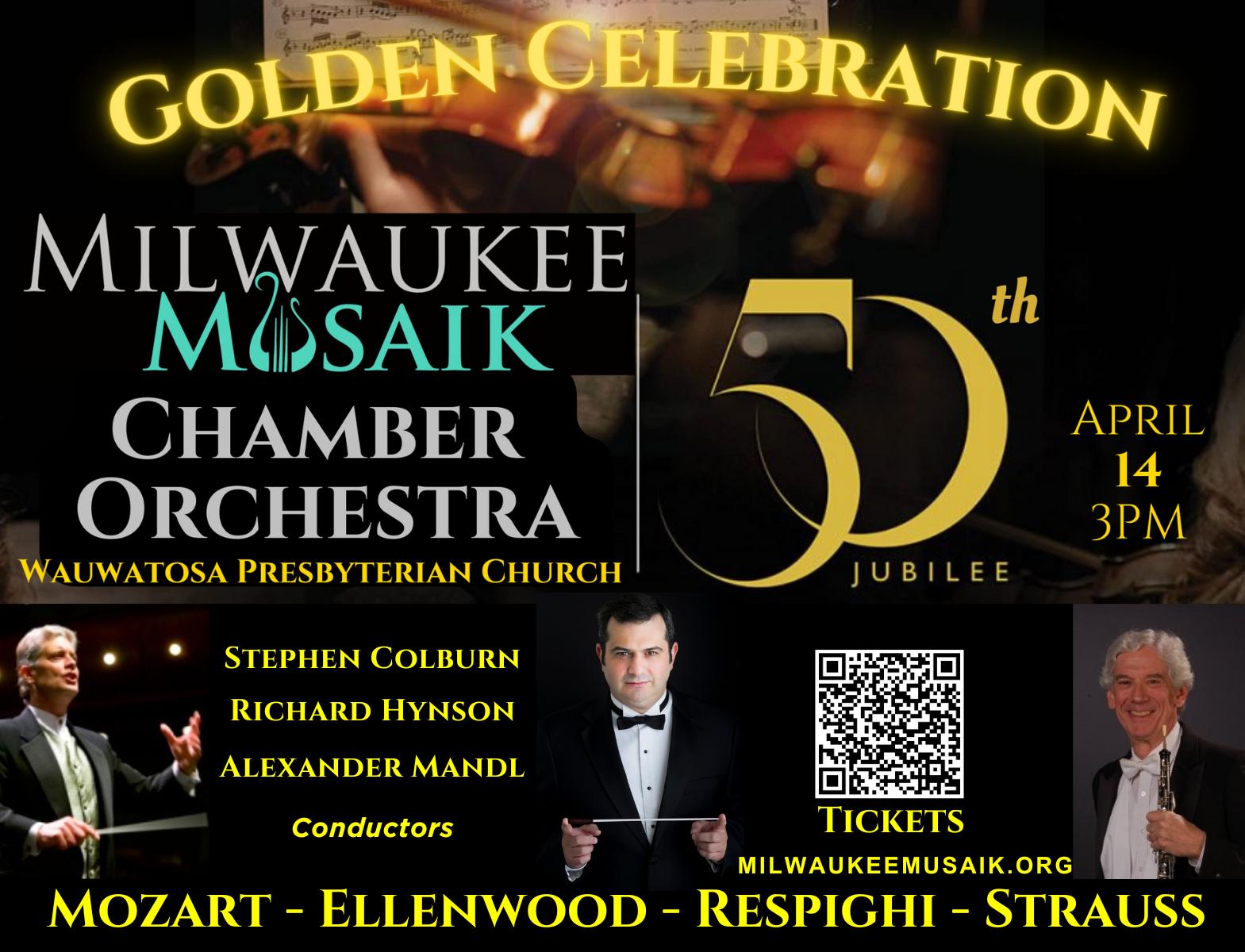



Saturday, March 23, 2024 at 7:30 pm
Sunday, March 24, 2024 at 2:30 pm
ALLEN-BRADLEY HALL
Ken-David Masur, conductor
Mahan Esfahani, harpsichord & leader
Rachell Ellen Wong, violin & leader
Jen Sanders, soprano
Ashley Suresh, soprano
Olivia Pogodzinski, soprano
Mary Rafel, alto
Scott Bass, countertenor
Nicholas Lin, tenor
Darwin Sanders, bass
Milwaukee Symphony Chorus
Cheryl Frazes Hill, director
JOHANN SEBASTIAN BACH
Brandenburg Concerto No. 3 in G major, BWV 1048
I. [No tempo indication]
II. Adagio
III. Allegro
Jinwoo Lee, violin & leader
JOHANN SEBASTIAN BACH
Concerto No. 4 in A major for Harpsichord and String Orchestra, BWV 1055
I. Allegro
II. Larghetto
III. Allegro ma non tanto
Mahan Esfahani, harpsichord & leader
JOHANN SEBASTIAN BACH
Concerto No. 1 in A minor for Violin and String Orchestra, BWV 1041
I. [No tempo indication]
II. Andante
III. Allegro assai
Rachell Ellen Wong, violin & leader
Magnificat in D major, BWV 243
I. Magnificat anima mea Dominum
II. Et exultavit spiritus meus
III. Quia respexit humilitatem
IV. Omnes generationes
V. Quia fecit mihi magna
VI. Et misericordia
VII. Fecit potentiam
VIII. Deposuit potentes
IX. Esurientes implevit bonis
X. Suscepit Israel
XI. Sicut locutus est
XII. Gloria Patri
Ken-David Masur, conductor
Jen Sanders, soprano
Ashley Suresh, soprano
Olivia Pogodzinski, soprano
Mary Rafel, alto
Scott Bass, countertenor
Nicholas Lin, tenor
Darwin Sanders, bass
Milwaukee Symphony Chorus
The 2023.24 Classics Series is presented by the UNITED PERFORMING ARTS FUND and ROCKWELL AUTOMATION. The Bach Festival is sponsored by the WE ENERGIES FOUNDATION and the SCHOENLEBER FOUNDATION.
The length of this concert is approximately 1 hour and 45 minutes.
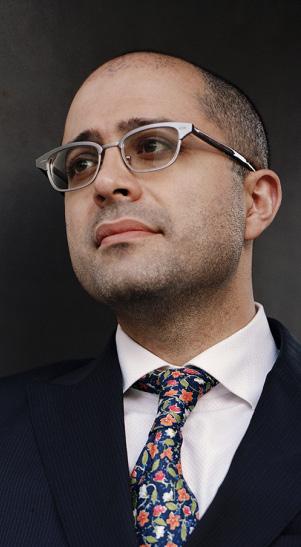
Mahan Esfahani has made it his life’s mission to rehabilitate the harpsichord in the mainstream of concert instruments, and to that end, his creative programming and work in commissioning new works have drawn the attention of critics and audiences across Europe, Asia, and North America. He was the first and only harpsichordist to be a BBC New Generation Artist (2008-2010), a Borletti-Buitoni prize winner (2009), and a nominee for Gramophone’s Artist of the Year (2014, 2015, and 2017). In 2022, he became the youngest recipient of the Wigmore Medal, in recognition of his significant contribution and longstanding relationship with Wigmore Hall.
His work for the harpsichord has resulted in recitals in most of the major series and concert halls, among them London’s Wigmore Hall and Barbican Centre, Oji Hall in Tokyo, the Forbidden City Concert Hall in Beijing, Shanghai Concert Hall, Carnegie Hall in NYC, Sydney Opera House, Melbourne Recital Centre, Los Angeles’s Walt Disney Concert Hall, Lincoln Center’s Mostly Mozart Festival, Berlin Konzerthaus, Zürich Tonhalle, Wiener Konzerthaus, San Francisco Performances, the 92nd Street Y, Schleswig-Holstein Music Festival, Cologne Philharmonie, Edinburgh International Festival, Aspen Music Festival, Aldeburgh Festival, Madrid’s Fundación Juan March, Bergen Festival, Festival Mecklenburg-Vorpommern, Al Bustan Festival in Beirut, Jerusalem Arts Festival, and the Leipzig Bach Festival, and concerto appearances with the Chicago Symphony, Ensemble Modern, BBC Symphony, Royal Liverpool Philharmonic, Seattle Symphony, Melbourne Symphony, Auckland Philharmonia, Czech Radio Symphony, Orquesta Sinfónica de Navarra, Malta Philharmonic, Orchestra La Scintilla, Aarhus Symphony, Montreal’s Les Violons du Roy, Hamburg Symphony, Munich Chamber Orchestra, Britten Sinfonia, the Royal Northern Sinfonia, and Los Angeles Chamber Orchestra, with whom he was an artistic partner for 2016-2018. His richly-varied discography includes seven critically-acclaimed recordings for Hyperion and Deutsche Grammophon — garnering one Gramophone award, two BBC Music Magazine awards, a Diapason d’Or and “Choc de Classica” in France, and two ICMAs.
Esfahani studied musicology and history at Stanford University, where he first came into contact with the harpsichord in the class of Elaine Thornburgh. Following his decision to abandon the law for music, he studied harpsichord privately in Boston with Peter Watchorn before completing his education under the celebrated Czech harpsichordist Zuzana Růžičková. Following a three-year stint as artist-in-residence at New College, Oxford, he continues his academic associations as an honorary member at Keble College, Oxford, and as professor at the Guildhall School of Music and Drama in London. He can be frequently heard as a commentator on BBC Radio 3 and Radio 4 and as a host for such programs as Record Review, Building a Library, and Sunday Feature, as well as in live programs with the popular mathematician and presenter Marcus du Sautoy; for the BBC’s Sunday Feature, he is currently at work on his fourth radio documentary following two popular programs on such subjects as the early history of African-American composers in the classical sphere and the development of orchestral music in Azerbaijan. Born in Tehran in 1984 and raised in the United States, he lived in Milan and then London for several years before taking up residence in Prague.
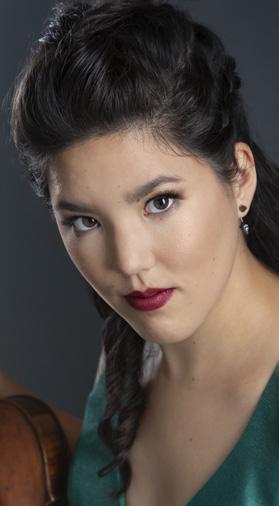
Violinist Rachell Ellen Wong made history in 2020 when she was awarded the prestigious Avery Fisher Career Grant, becoming the only Baroque artist in the program’s history to receive the honor. A star on both the modern and historical performance violin stages, she is also the Grand Prize winner of the inaugural Lillian and Maurice Barbash J.S. Bach Competition. With performances across five continents, Wong has established herself as one of the leading historical performers of her generation, collaborating with esteemed ensembles such as the Academy of Ancient Music, Jupiter Ensemble led by lutenist Thomas Dunford, Bach Collegium Japan, Ruckus Early Music, and Les Arts Florissants, among others. Equally accomplished on the modern violin, Wong made her first public appearance with Philharmonia Northwest at age 11 and has since performed as a soloist with orchestras such as Orquesta Sinfónica Nacional de Panamá, Orquesta Sinfónica de Costa Rica, and the Seattle Symphony. In 2020, Wong made her conducting debut with the Seattle Symphony, leading a performance of Vivaldi’s Four Seasons from the violin. Currently, she serves as concertmaster of the Seattle Baroque Orchestra.
Notable concerto performances from Wong’s 2023.24 season include appearances with the Milwaukee Symphony Orchestra, New World Symphony, Reno Chamber Orchestra, and the Northwest Sinfonietta. Highlights from last season included performances of Mendelssohn’s Violin Concerto with the Auburn Symphony (WA), Beethoven’s Violin Concerto with the Richmond Symphony (IN), Sarasate’s Carmen Fantasy with the American Classical Orchestra (NYC), as well as debuts for UC Berkeley’s Cal Performances, the Edinburgh Music Festival, the Washington Bach Consort in D.C., and a recital for the Starling-DeLay Symposium at The Juilliard School. Additionally, Wong is a faculty member at the Valley of the Moon Music Festival in Sonoma, California, and an American Fellow of The English Concert.
Alongside acclaimed keyboardist David Belkovski, Wong is co-founder of Twelfth Night.
Founded in 2021, Twelfth Night’s notable engagements include Music Before 1800, Reno’s Apex Concert Series, Arizona Early Music, and Chatham Baroque. The ensemble is set to make its Carnegie Hall debut during the 2023.24 season.
Wong holds a Master of Music in historical performance from The Juilliard School, where she was a Kovner Fellowship recipient. She also holds a Master of Music degree from Indiana University and a Bachelor of Music degree from the University of Texas at Austin. Originally from the Pacific Northwest, she divides her time between New York City and Seattle. Wong performs on a baroque violin from the school of Joachim Tielke circa 1700, as well as a violin made by Carlo de March in 1953. Her exceptional blend of technical virtuosity, expressive musicianship, and deep understanding of period performance practices has garnered critical acclaim and a dedicated following.
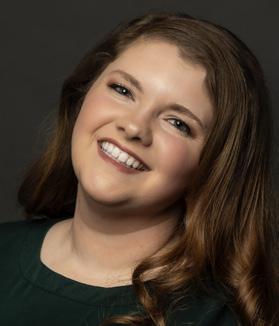
Jenny E. Sanders is a student at Maranatha Baptist Seminary, where she will graduate in May 2024 with a master’s degree in biblical counseling. She earned her bachelor’s degree in music with a vocal proficiency, and during her undergraduate years was immersed in all things music: as a first soprano in the university’s chamber choir and a second violin in the symphony orchestra, participating in choral recording projects and music camps. After teaching elementary music for three years, she pursued a counseling degree to help her interact with students from a more holistic standpoint. She writes, “as a musician, I see that music makes a direct connection to the soul. I have seen so many students helped through difficult situations because of the healing nature of music. I hope to use my counseling tools to help make that connection in the music classroom.” She has continued to be active in music while in graduate school, directing a small community children’s choir, teaching voice at the Maranatha Music Preparatory School, and as a member of the Milwaukee Symphony Chorus.
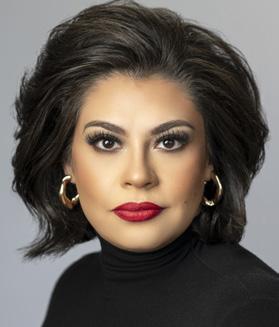
Ashley Suresh, soprano, has performed in numerous operas and musicals from a young age. She recently debuted with the Milwaukee Symphony Orchestra as a soloist in Handel’s Messiah and performed with the Milwaukee Ballet’s production of Dracula with The Florentine Opera Company. As a soloist, she has performed works such as Strauss’s Four Last Songs with the Beloit Symphony Orchestra and Kenneth Frazelle’s The Motion of Stone. While obtaining her Master of Music degree in vocal performance from Northwestern University, she sang the role of Fiordiligi in Così fan tutte with Northwestern Opera Theater and performed in a master class with the renowned Renée Fleming. She has performed with the A.J. Fletcher Opera Institute in productions of La rondine, The Merry Wives of Windsor, and Maria Stuarda. She debuted with Piedmont Opera in 2012 as Bridget Booth in Robert Ward’s The Crucible and is a recipient of the William R. Kenan Jr. Excellence Scholarship Award from University of North Carolina School of the Arts. She currently resides in Wisconsin with her husband and son.
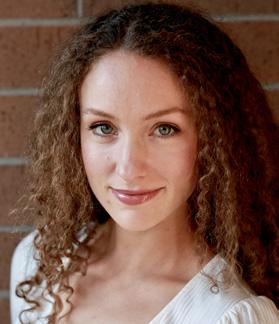
Olivia Pogodzinski is an operatic soprano based in Milwaukee. She has a degree in vocal performance from the University of Wisconsin-Madison, where she studied under Professor James Doing. Notable performances include singing the role of the Queen of the Night in University Opera’s production of The Magic Flute and appearing as the soprano soloist in the University’s performance of Brahms’s German Requiem
She sings with numerous ensembles in the Milwaukee area, including the Milwaukee Symphony Chorus, The Florentine Opera Company, Brew City Opera, and Grace Presbyterian Church.
When she is not performing, Pogodzinski stays busy working as a dentist at her nearby office.
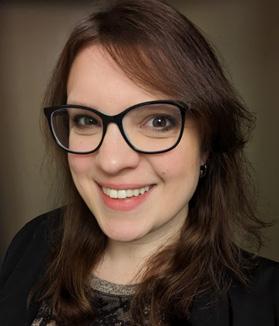
Mary Rafel has over 17 years of experience as a professional musician and choral singer. Having always been passionate about music, Rafel pursued it academically in her undergraduate studies at St. Norbert College in De Pere, Wisconsin, earning her Bachelor of Music degree in voice. She continued her studies at the University of Wisconsin-Milwaukee, where she earned her Master of Music degree with an emphasis in musicology and voice. It was then her journey began as an alto in the Milwaukee Symphony Chorus. Rafel has enjoyed being part of this incredible group for over 12 years. In that time, she has had the opportunity to sing a wide range of repertoire, from the Baroque to the 20th century. She currently studies under the tutelage of Dr. Tanya Kruse-Ruck.
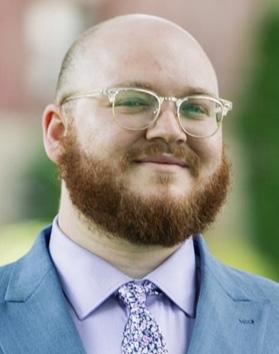
Scott Bass (he/they) is a countertenor, songwriter, and multiinstrumentalist based out of Chicago, Illinois. Receiving a Bachelor of Music degree in vocal performance from the Chicago College of Performing Arts in 2019, Bass has built up a vast portfolio of vocal, instrumental, composition, and production work. Praised for the versatility of a wide-spanning vocal range and performing with ensembles from the secular to the sacred, with multiple albums of original music recorded and released under their name and their solo project, base., Bass takes pride in the diversity of their musical language, taking influence from a vast pool of musical history from the sacred, popular, Baroque, and beyond. This is Bass’s first year singing with the Milwaukee Symphony Chorus, and they were previously featured in the semi-chorus of Beethoven’s Choral Fantasy and as a soloist in Handel’s Messiah. Outside of the MSO, Bass is a featured soloist with Kol Zimrah Jewish Community Singers, performing works by Jewish composers including Bernstein, Janowski, and more. Bass is also the cantorial soloist for Beth Chaverim Humanistic Jewish Community, and has been featured singing with the Evanston Chamber Opera in Humperdinck’s Hänsel und Gretel as the Sandman and leading the tenor section on the album Max Janowski - Great Works for the Max Janowski Society.
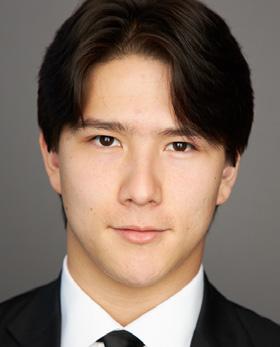
Nicholas Lin is a tenor based out of Milwaukee and the greater Chicagoland area. Groups he has performed with include The Florentine Opera Company (chorus member in Rigoletto, L’enfant et les sortilèges, Il barbiere di Siviglia, and L’elisir d’amore), Music of the Baroque, Opera for the Young (Count Almaviva in Il barbiere di Siviglia), and the Chicago Symphony Chorus. In 2023, he joined the Milwaukee Symphony Chorus as a paid core member. As a soloist, Lin has sung the Mozart Requiem’s tenor solo for the Northwestern Summer Chorus and the role of Colas in South Loop Symphony’s semi-staged production of Bastien und Bastienne. He is a graduate of Northwestern University’s voice and opera program, where he studied under Karen Brunssen. At Northwestern, Lin performed the roles of Orfeo (L’Orfeo), Frank (Die Fledermaus), The Keeper of the Madhouse (The Rake’s Progress), The Lord Chancellor (Iolanthe), the Learned Judge (Trial and Error), and chorus work in Don Giovanni, Theodora, and Béatrice et Bénédict. In the fall of 2019, he directed OPUS’s production of Arthur Honegger’s operetta, Les aventures du roi Pausole at Northwestern. Music Festivals he has performed in include Atlantic Music Festival in Waterville, Maine; Classical Lyrical Arts in Novafeltria, Italy; and International Lyric Academy in Vicenza, Italy. This is his second appearance as a soloist for the MSO, and he is extremely excited to be singing with such a fantastic orchestra and chorus.
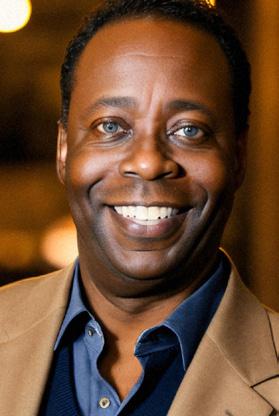
Darwin Sanders has been actively involved in Milwaukee’s classical music scene for over 25 years. He is both a member of the Milwaukee Symphony Chorus and its diction coach. He began working as the diction coach for the Milwaukee Symphony Chorus under the baton of chorus foundress Margaret Hawkins. He has continued in that capacity, coaching the chorus in numerous works in the choral repertoire.
Through private vocal study, he refined his musical and vocal skills and was trained in the bel canto singing technique. Continuing his private vocal study led him to develop operatic singing techniques while completing French, German, Italian, and Russian language studies at Marquette University in Milwaukee, Wisconsin.
Sanders formerly served as a chorister, comprimario role singer, and diction coach for The Florentine Opera Company, where he coached nearly 70 staged operas and three recorded contemporary operas. These include the 2012 two-time Grammy Award-winning recording of Elmer Gantry, the 2013 recording of Rio de Sangre, and the 2021 Grammy Award-nominated recording Prince of Players.
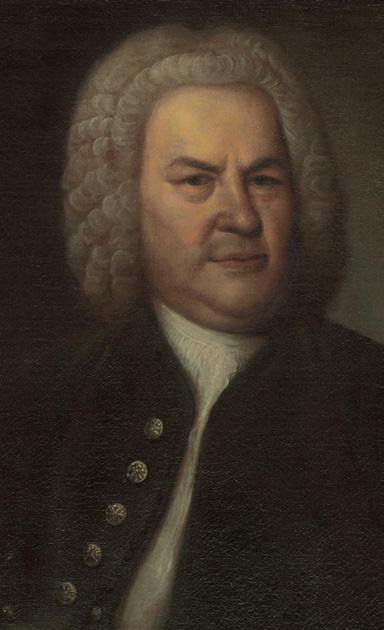
Born 31 March 1685; Eisenach, Germany
Died 28 July 1750; Leipzig, Germany
In 1985, Johann Sebastian Bach’s fame was such that church bells around the world rang at noon on his 300th birthday. But in the years following his death in 1750, most of Bach’s music and even his name were largely forgotten. The vast majority of his music had been written to be played just once, and only a tiny bit of it had been published during his lifetime. In 1823 or 1824, young Felix Mendelssohn’s grandmother gave him a copyist’s version of Bach’s St. Matthew Passion as a birthday gift. Transfixed by the work, he later used it to reintroduce the name and music of Bach to the world.
Thank you, Felix.
Bach’s six Brandenburg concertos were something of a musical resume, or job application of sorts. He sent them to the Margrave of Brandenburg (a title used mostly by princes), in part at the request of the Margrave and in part, or so it seems, in hopes of landing a job. Bach had met the Margrave in 1719 while he was in Berlin to purchase a harpsichord on behalf of his employer at the time, the Prince of Anhalt-Köthen. He apparently played for the Margrave on this trip. The Margrave, impressed by Bach, asked him to send some music. About two years later, Bach got around to honoring that request. Bach was looking for a new position, so sending music to a member of the nobility who had been impressed when he heard his playing must have seemed like a good idea.
Unfortunately, it would seem that Bach did not think the situation all the way through. He sent the Margrave a newly reworked version of what we now call the Brandenburg Concertos. Each piece was actually a concerto grosso, meaning a concerto that featured a group of soloists instead of a single player. The flaw in this plan lay in the fact that over the course of the six pieces, Bach included a violino piccolo, which was a bit of an oddity, even in 1719, wrote some virtuoso horn parts at a time when horns were rather new in orchestras, wrote a terrifically difficult trumpet solo, and made other instrumental requirements the Margrave would be hard-pressed to meet in order to have the pieces performed. Bach included a note asking for employment.
The Margrave never acknowledged receiving pieces or the note and never heard the concertos performed. The pieces may not have landed Bach a new gig, but they did advance the development of the concerto significantly, in part through the creative instrumentation and variety of different sounds Bach created in them, and in part through the inventive structures of the six pieces — no two are alike. Although the pieces failed to land Bach a new job, they are widely regarded today at some of the finest concertos of the Baroque era. The autograph copy of the six Brandenburg concertos was very nearly lost to the world during World War II. The concertos were on a train, having been removed from the Berlin library where they were housed to keep them safe from Allied bombing raids. When the train itself came under aerial attack, a librarian fled into the nearby woods, clutching the manuscript under his coat.
Brandenburg Concerto No. 5 in D major, BWV 1050 (Friday evening/Saturday afternoon)
Composed: Unknown; earliest arrangement dates from 1720-1721
First performance: Unknown; collection dedicated on 24 March 1721
Last MSO performance: 24 October 1982; Lukas Foss, conductor and piano; Edward Mumm, violin; Glenda Lathrop, flute
Instrumentation: flute; harpsichord; strings
Approximate duration: 21 minutes
The fifth of Bach’s six Brandenburg concertos stands out for its virtuosic use of the harpsichord. History tells us that Bach was a phenomenal improviser at the keyboard. In Bach’s day, a musician was not considered complete, or “finished,” without being able to improvise fluidly. Even in a time when improvising skills were a given, Bach’s improvising was astonishing. Legendary jazz pianist George Shearing, who improvised on themes by Bach at a concert in New York City celebrating the composer’s 300th birthday in 1985, commented afterwards that if Bach had been alive in modern times, he would have been “one hell of a jazzer.”
Most historians believe the harpsichord writing in the fifth Brandenburg is a transcription of an improvisation by Bach. Some add that it is likely very similar to what he played for the Margrave two years prior to sending him the six Brandenburg concertos, and that he included it to remind the Margrave how impressed he had been with Bach at that encounter. Bach was hoping for a job, after all. Whatever the case, the harpsichord writing in this piece certainly gives us a glimpse of Bach’s incredible keyboard prowess.
Composed: Unknown; possibly as early as 1713
First performance: Unknown; collection dedicated on 24 March 1721
Last MSO performance: 2 April 2000; Nicholas McGegan, conductor; Frank Almond, violin
Instrumentation: 3 oboes; bassoon; 2 horns; harpsichord; strings
Approximate duration: 21 minutes
The first of Bach’s Brandenburg concertos, and the only one of the set of six concertos that is built of four movements, features a solo violin, two horns, three oboes, and a bassoon, along with strings and harpsichord. The piece has its roots in the opening section of Bach’s “Hunt” cantata. Written in 1713, the cantata is quite famous today for the aria “Sheep May Safely Graze,” which has taken on a life of its own as a wedding processional.
The first movement presents what might be a conversation, or perhaps an argument, between sections of instruments. The second movement finds the oboe playing a melody that unfolds like an engrossing story. The third movement places the solo violin in the spotlight, while the final movement is built of what amount to dance vignettes.
Brandenburg Concerto No. 3 in G major, BWV 1048 (Saturday evening/Sunday afternoon)
Composed: Unknown; autograph score dates from 1718
First performance: Unknown; collection dedicated on 24 March 1721
Last MSO performance: 10 February 2007; William Eddins, conductor
Instrumentation: harpsichord; strings
Approximate duration: 10 minutes
Bach’s third Brandenburg concerto owes some credit to the four concertos for four violins found in Antonio Vivaldi’s first published collection of concertos. The collection of 12 concertos, entitled L’estro armonico (“The Harmonic Inspiration”), was published in 1711. Bach borrows a page from Vivaldi’s playbook, writing the third of his Brandenburg concertos for sections of three violins, three violas, and three cellos, plus bass and harpsichord continuo.
Throughout the two fully notated movements of the concerto, Bach alternately treats the soloists as members of the orchestra, or treats the members of the orchestra as soloists, a sort of glass-half-full or glass-half-empty scenario. Over the course of the piece, the players function as sections, with each section made up of three players. The sections seem to converse at times. But the players also function as individual soloists, breaking out of their sections occasionally. Eventually, all of the players come together as a unified orchestra as well.
In place of a fully notated middle movement, Bach merely included two chords. Some modern performances play the two chords as connections between the two outer movements, while others turn the two chords into an improvised center movement.
Composed: 1723; revised 1733
First performance: 25 December 1723; Leipzig, Germany
Last MSO performance: 5 November 2017; Yaniv Dinur, conductor; Sherezade Panthaki, soprano; Yulia Van Doren, soprano; Daniel Taylor, countertenor; Dominic Armstrong, tenor; Alexander Dobson, baritone
Instrumentation: 2 flutes; 2 oboes (both doubling on oboe d’amore); bassoon; 3 trumpets; timpani; organ; strings
Approximate duration: 16 minutes
Bach was a Lutheran, who signed his church music and some other pieces with the initials S.D.G. accompanying his name. The initials stand for the words Soli Deo gloria (“Glory to God alone”). Several other composers of his era, including George Frideric Handel, used the same words with their signatures on at least some of their music. But it was Bach who wrote more than 300 cantatas — 150 of them in his first four years in Leipzig.
Bach and his family arrived in Leipzig in July of 1723. He, his second wife, Anna Magdalena, and their children moved into an apartment in the Saint Thomas School, where he would be teaching. The school was beside the Saint Thomas Church, where he would play the organ, write music for services, and prepare and conduct the choir and orchestra. A Leipzig newspaper reported on the Bach family’s arrival, saying that four wagonloads of household goods arrived, followed by two wagonloads of Bachs. It was very shortly after his arrival that Bach began writing his Magnificat.
About 200 years before the Bach family arrived in Leipzig, the Protestant Reformation resulted in a ban on the use of Latin in Protestant liturgy, but the text of the Magnificat was exempt from that ban. The Magnificat relates what Mary said to her cousin Elizabeth when telling her that her unborn child was the son of God. Meanwhile, Elizabeth had her own miraculous-pregnancy story to relate, as she was long past child-bearing age but was pregnant herself. Elizabeth was carrying John the Baptist. The Magnificat is based on the Gospel of Luke, 1:46–55, with the title of the piece coming from Mary’s statement, “My soul magnifies the Lord.”
Lutheran churches in Germany sang the Magnificat in German fairly often during the church year in Bach’s time, but reserved the Latin text for high holidays. We know that Bach used his 12-movement, Latin-language Magnificat at Christmas in 1723, with the insertion of four German Christmas hymns. A decade later, he reworked it, possibly for the Feast of the Visitation, which commemorates Mary’s visit to Elizabeth and is celebrated in July in Germany. He removed the Christmas hymns and changed the key signature from E-flat major to D major to suit the trumpets that he also added at this point.
Concerto No. 2 in E major for Violin and String Orchestra, BWV 1042 (Friday evening/Saturday afternoon)
Composed: Unknown; possibly between 1717-23 in Köthen
First performance: Unknown
Last MSO performance: 22 September 2002; Andreas Delfs, conductor; Hilary Hahn, violin
Instrumentation: harpsichord; strings
Approximate duration: 19 minutes
Concerto No. 1 in A minor for Violin and String Orchestra, BWV 1041 (Saturday evening/Sunday afternoon)
Composed: Unknown; possibly between 1717-23 in Köthen
First performance: Unknown
Last MSO performance: 27 January 1996; Neal Gittleman, conductor; Pinchas Zukerman, violin
Instrumentation: harpsichord; strings
Approximate duration: 16 minutes
We know very little about the history of Bach’s Violin Concertos No. 1 and No. 2. We know Bach wrote out the parts for the first concerto after moving to Leipzig, but we do not know where, when, or why he wrote the two concertos. Bach was a fine violinist and often conducted while playing violin. He owned a Stainer violin — a brand more popular than Stradivarius violins at the time. We don’t even know which concerto he wrote first. The numbers are perfectly arbitrary.
We do know that while Bach was in Leipzig, he made new versions of both of the violin concertos, changing the solo instrument to harpsichord. He did this in 1730 for the Collegium Musicum he led at the St. Thomas School. But this tells us nothing other than that the violin concertos were written before 1730. Some historians think that the second of the concertos, or at least the one that is called No. 2, bears a resemblance in tone and energy to the Brandenburg Concertos that Bach wrote in Köthen. Unfortunately, there is nothing conclusive there either. Happily, we do know that Bach wrote both concertos. So there’s really only one thing to do now: sit back, enjoy the music, and relish the fact that both concertos have survived the 300-odd years since Bach wrote them.
Suite No. 3 in D major for Orchestra, BWV 1068 (Friday evening/Saturday afternoon)
Composed: Unknown; earliest known autograph score dates from 1730
First performance: Unknown
Last MSO performance: 10 April 2004; Nicholas McGegan, conductor
Instrumentation: 2 oboes; 3 trumpets; timpani; harpsichord; strings
Approximate duration: 20 minutes
One of the most interesting things about Bach’s orchestral suites is the small number of them that he is known to have composed. He wrote four suites over the course of several years, numbering them 1– 4 at some point. Historians do not believe they were written as a set or ever intended as a set. Bach wrote a handful of other suites as well, but that’s the interesting thing — he wrote just a handful of suites, while other composers were churning out copious numbers of them. The 135 of Georg Philipp Telemann’s suites that have survived to the present day are just the tip of the iceberg for him. He is known to have written many more than that. Many
composers of the era wrote dozens, in some cases hundreds, of such suites. But Bach wrote just a handful beyond the four previously mentioned.
Bach referred to his orchestral suites as “Ouvertures,” the term many musicians used for such pieces in his day. The word comes from the fact that the suites all began with a French overture, which was really a style of overture borrowed from French opera. A French overture opens with a slow section, built of dotted rhythms, before moving to a fast section, after which the slow opening material returns. The rest of the suite, or “ouverture,” consists of dance movements. The small number of orchestral suites written by Bach may be one of the most interesting things about this suite, written in D major, but the hands-down, most interesting thing about it is that it contains what may well be the most famous 18 measures of Baroque-era music: Bach’s “Air on the G String.” Although the term “G string” has taken on a rather different meaning in the modern era than it had in the Baroque era, back then the term referred simply to the string on the violin that was tuned to G. The English term “air” is related to the Italian term “aria.” An air is a song, or a very lyrical piece of instrumental music. Nested in the dance movements of an orchestral suite, the lyrical air is a delightful, transporting surprise.
Concerto No. 4 in A major for Harpsichord and String Orchestra, BWV 1055
(Saturday evening/Sunday afternoon)
Composed: 1838 – 1844
First performance: Unknown
Last MSO performance: MSO Premiere
Instrumentation: strings
Approximate duration: 14 minutes
Bach was not only a composer of keyboard concertos — he is actually credited with inventing the genre of the keyboard concerto. When Bach began his career, the harpsichord in an instrumental ensemble was largely relegated to the role of continuo playing, basically accompanying, joined by a low string instrument. Bach changed the role of the harpsichord with his Brandenburg Concerto No. 5, which can be heard on the other Bach Festival concert this weekend, in which he gave the harpsichord a wonderfully virtuosic solo role. The harpsichord was not the single solo instrument in that piece, but was one of three solo instruments. It was not long after he wrote the Brandenburgs that Bach began reworking concertos he had written for other instruments to create keyboard concertos.
Many music historians believe that Bach’s Keyboard Concerto No. 4 in A major began its life as a concerto for oboe, or oboe d’amore (a member of the oboe family, slightly larger than the oboe, and somewhat mellower in sound). The problem with that theory is that we do not have an oboe concerto that corresponds to the A major keyboard concerto. Historians believe the oboe or oboe d’amore concerto upon which the keyboard concerto was based has been lost over the course of history. One the reasons that theory works is that Bach essentially taught himself to write keyboard concertos by making organ transcriptions of concertos from Vivaldi’s L’estro armonico collection of string concertos.
Bach eventually turned to his own concertos for other instruments and began transcribing them for keyboard and orchestra. Like many composers of his era, Bach recycled his music quite often — sometimes a phrase or two, sometimes entire movements or works. In 1729, six years after he took the post at the Saint Thomas Church and School in Leipzig, Bach also became the conductor of Leipzig’s Collegium Musicum, a group of amateur and professional musicians that Georg Philipp Telemann had founded 25 years earlier. Many of the concertos Bach transcribed and composed after he took over the Collegium Musicum were written for that group, and by extension for his sons, who were still students and played in the group. So, although the Brandenburg Concerto No. 5 was not technically a keyboard concerto, it was the jumping-off point from which Bach began his invention of the genre.
It’s important to choose a physician who will listen closely to your needs and respond genuinely to your concerns. Fortunately for you and your family, our physicians have been providing exceptional care in Milwaukee and Ozaukee for over 120 years.
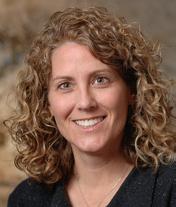
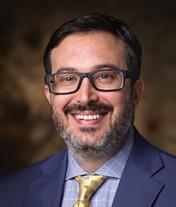
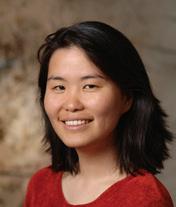
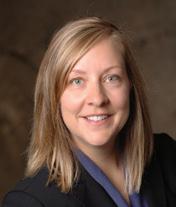
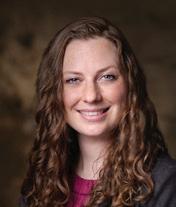
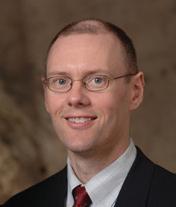
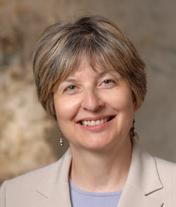
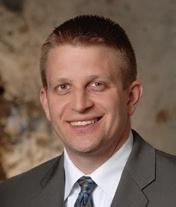
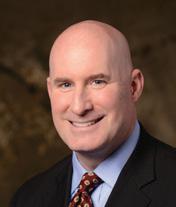
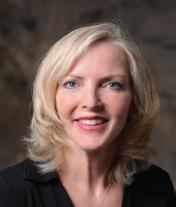
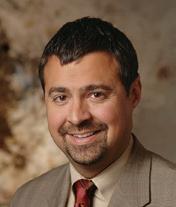
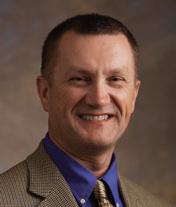
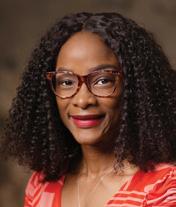
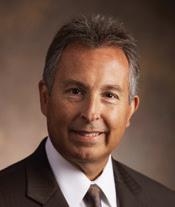
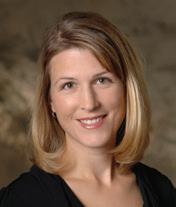
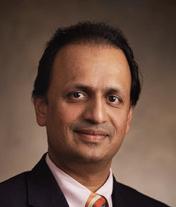
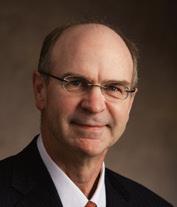

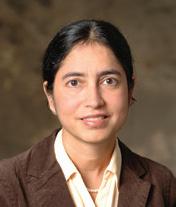
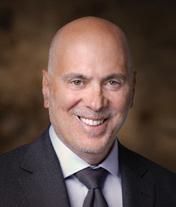
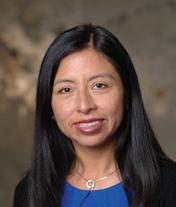
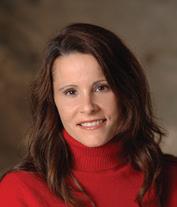
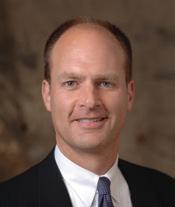
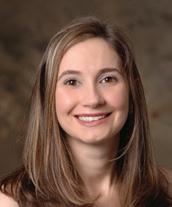
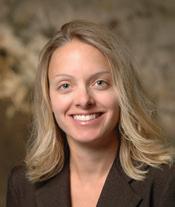
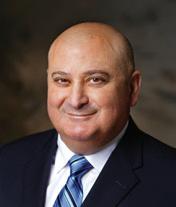
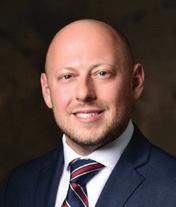
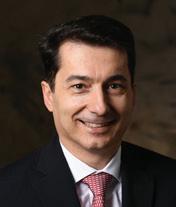
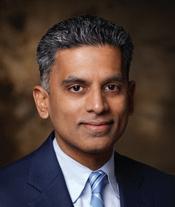
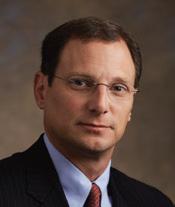

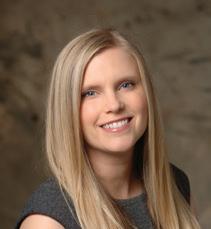
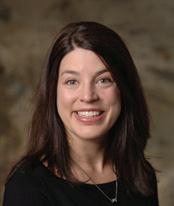
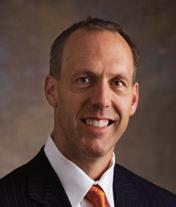
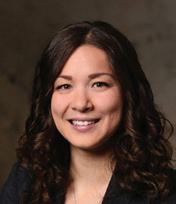
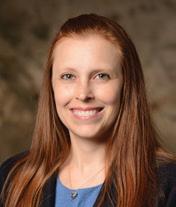
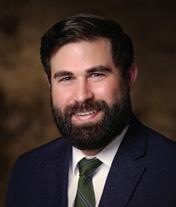
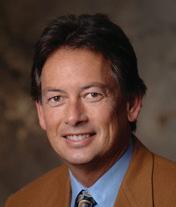
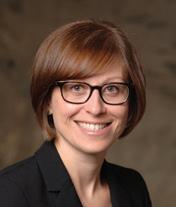
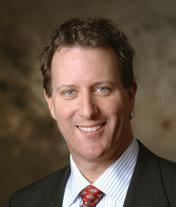
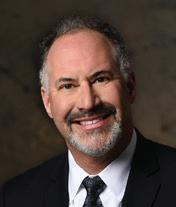
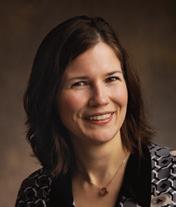
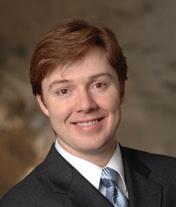
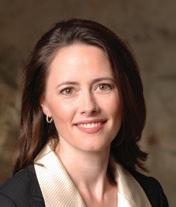
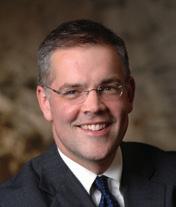
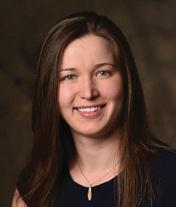
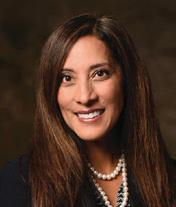
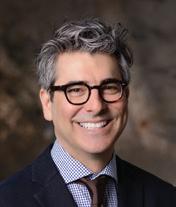
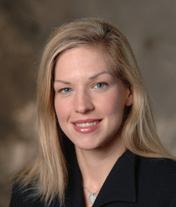
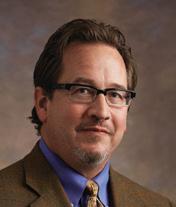
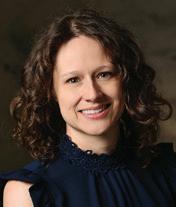
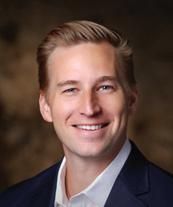
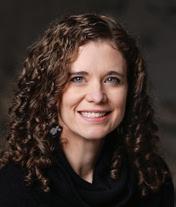
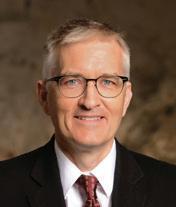

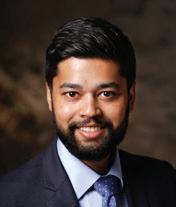
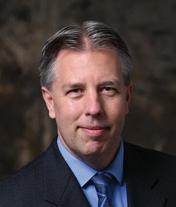
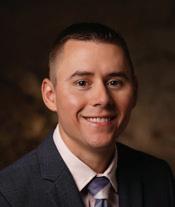
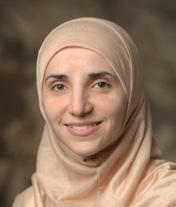
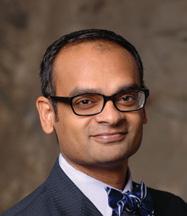
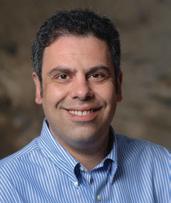
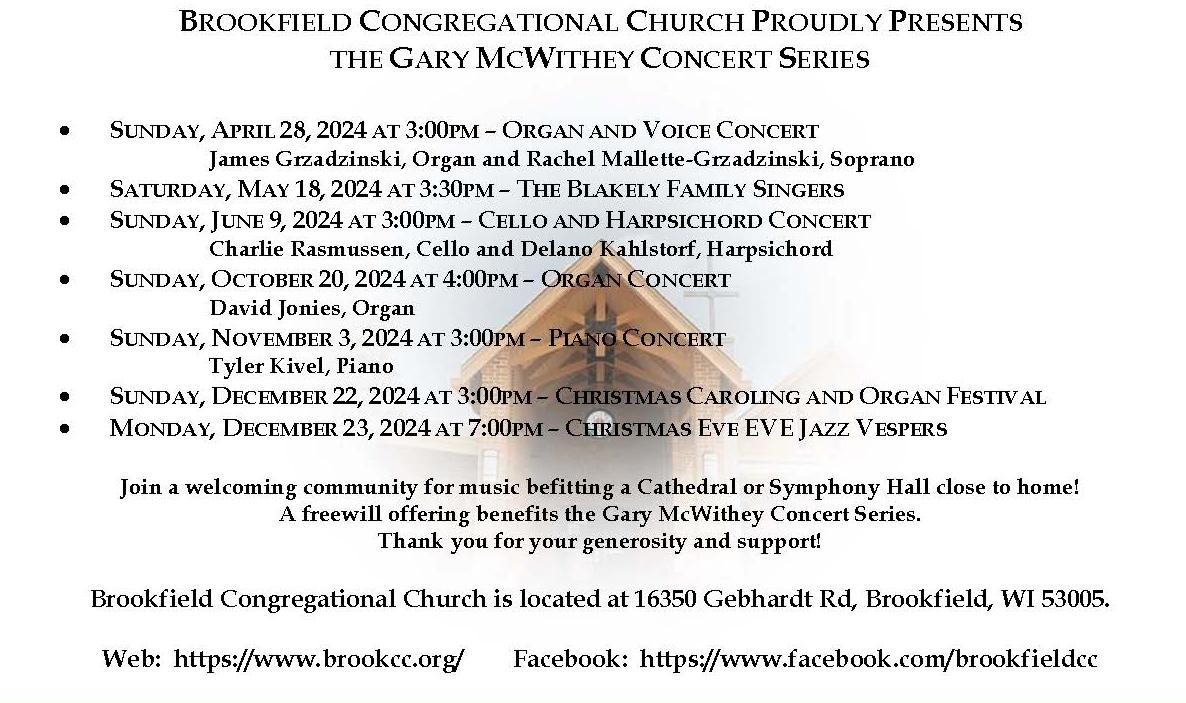
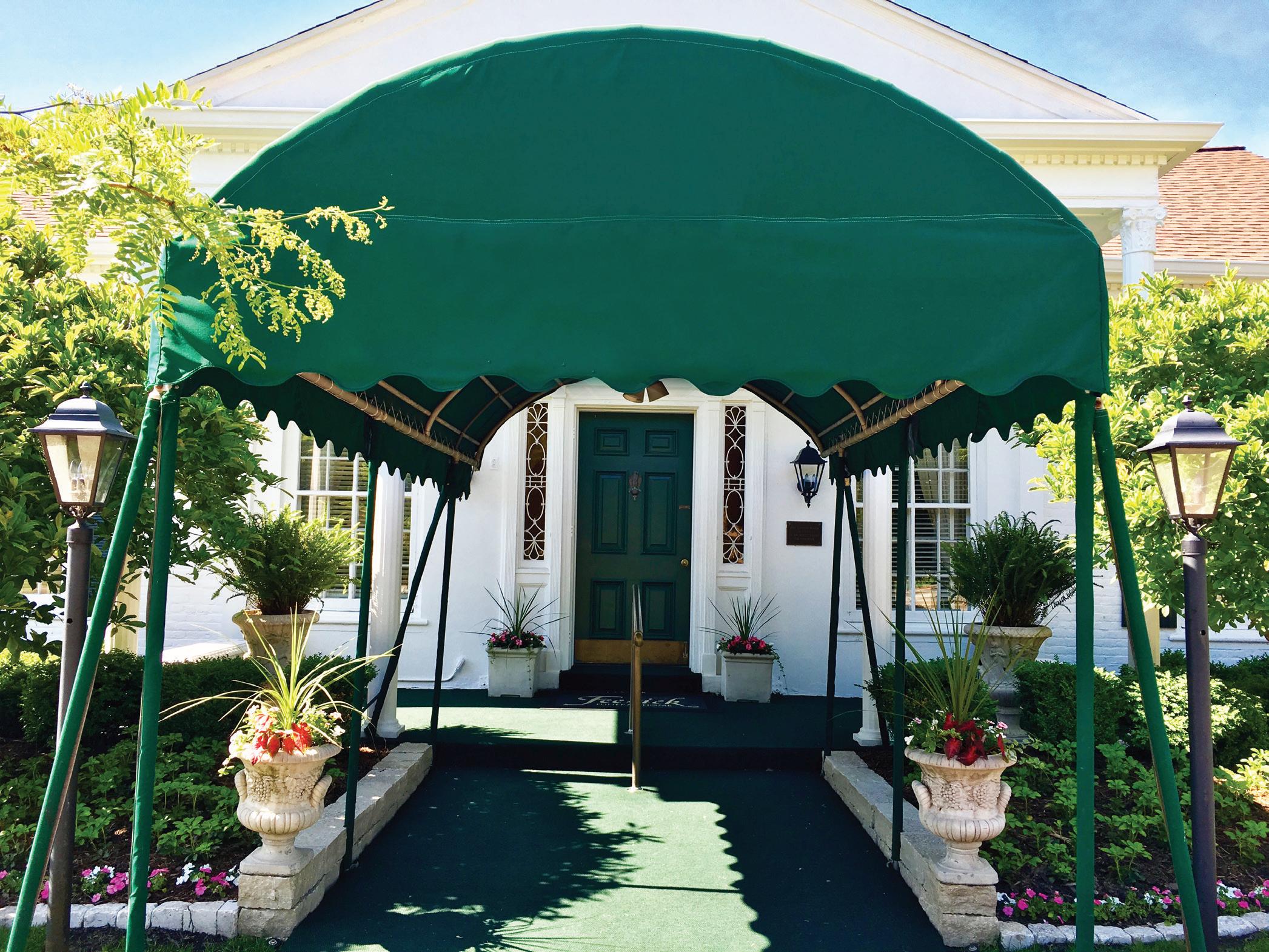


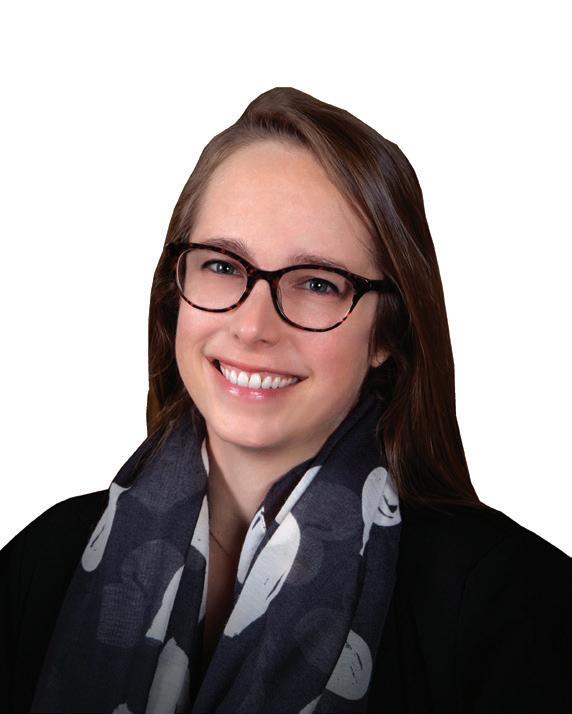

Saturday, April 6, 2024 at 7:30 pm
Sunday, April 7, 2024 at 2:30 pm
ALLEN-BRADLEY HALL
Ryan Tani, conductor
Blaze Collard, drums
Ardrienne Cowan, lead vocals
Derek Dupuis, keyboard & background vocals
Shota Nakama, guitar, background vocals, & producer
Louis A. Ochoa, bass & background vocals

Sonic the Hedgehog Medley
Sonic the Hedgehog 2 Medley
Sky Sanctuary
Sonic Mania Medley
Believe in Myself – It Doesn’t Matter
Chao Medley
Rooftop Run
Aquarium Park – Planet Wisp
Sonic Frontiers Medley
INT ERMISSION
I

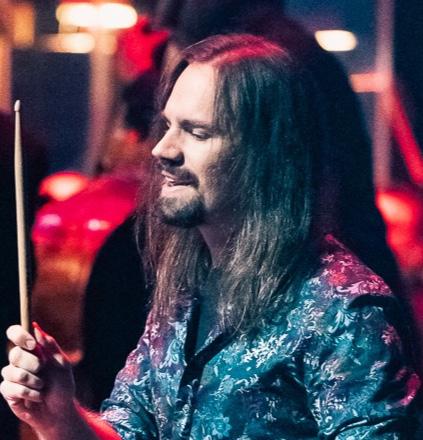
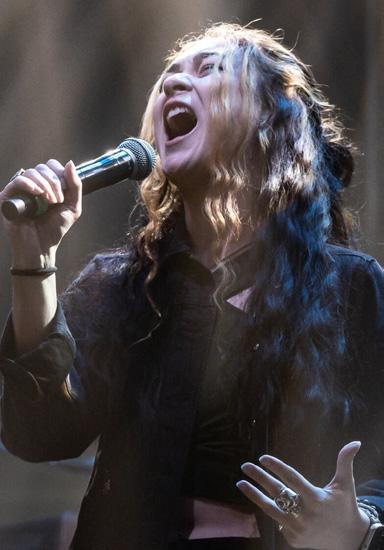
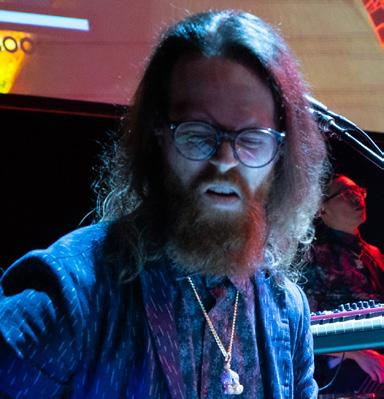
Sonic Symphony is an immersive live experience that celebrates more than three decades of music from SEGA’s iconic mascot. From the classic 8-bit and 16-bit tunes to rock and EDM songs, this concert will take you on a musical journey through the colorful world of Sonic the Hedgehog. Prepare to relive your favorite Sonic moments, brought to life by a full symphony orchestra. Sonic Symphony is an electrifying tribute to the music that has defined generations of gamers, old and new.
Born in England and raised in the U.S., Blaize Collard is a drummer specializing in rock and modern metal styles. In addition to touring with Sonic Symphony, he performs with several Boston-based metal bands. Collard is also an avid music educator and an assistant professor at the prestigious Berklee College of Music, growing the future generation of drummers.
Credits include: G5, Chuggernaut, Final Fantasy XV
Adrienne Cowan is a metal vocalist, songwriter, and orchestrator, known for her versatility, technical ability, and emotionally-charged art. With a passion for catharsis, she has captivated dark hearts around the world with Seven Spires’s’ bittersweet melodies and soulbaring stories. She is a touring member of the supergroup metal opera project, Avantasia. Outside of the metal world, she is the voice actor behind Mikaela Reid (Dead By Daylight) and has appeared on soundtracks of games and anime including RWBY, Guilty Gear Strive, and Arknights.
Credits include: Avantasia, Seven Spires, RWBY, Guilty Gear, Arknights
Derek Dupuis is a multi-instrumentalist from Salem, Massachusetts, specializing in keyboard and vocal performance. Dupuis can be seen frequently performing in the New York and Boston area. He is actively releasing his original music online while continuing his performance career throughout the U.S.
Credits include: Autumn Jones, Sarah and the Wild Versatile, Steve Burke
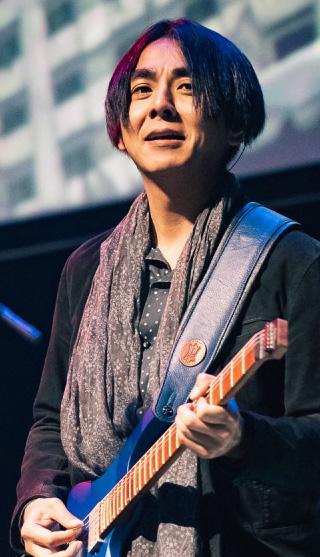

Born and raised in Okinawa, Shota Nakama is a renowned music producer in Boston, Massachusetts. Nakama leads the Sonic Symphony team as the producer and performs with the band on stage as the guitarist. Having worked on many successful international video game and anime concerts, Nakama was appointed by SEGA to produce the tour. Specializing in the epic collaboration of rock and orchestral music, Nakama is the lead arranger of Sonic Symphony.
Credits include: Lightning Returns: Final Fantasy XIII, Kingdom Hearts
HD 2.5 ReMIX, Distant Worlds: Music from Final Fantasy, Final Fantasy
XV, Final Fantasy XII, Eorzean Symphony: Final Fantasy XIV, No Straight Roads, Bayonetta 3
Louis Andre Ochoa is a versatile bassist residing in the Boston area. Ochoa was raised in the Philippines and started performing in local clubs as a teenager. After relocating to the U.S. to pursue his musical career, he quickly gained attention from the local scene and began working as a session and live music performer. Ochoa plays bass, sings background vocals, and raps for Sonic Symphony.
Credits include: G5, God Eater 2: Rage Burst, Final Fantasy XV, RWBY, Dragon Marked for Death, Dr. Stone, Bayonetta 3
MGP Live is an international entertainment company based in New York City specializing in producing concerts and a variety of other special events. For over 40 years, Massimo Gallotta, Founder and President of MGP Live, has been a leading promoter in the international music scene. With an eclectic roster of clients, MGP Live has also championed the niche world of the multimedia symphonic experience, producing and promoting symphony tours worldwide such as: Nintendo’s The Legend of Zelda: Symphony of the Goddesses, Square Enix’s Distant Worlds: Music from Final Fantasy, Ubisoft’s Assassin’s Creed Symphony, Warner Bros/DC Comics The Batman Live in Concert and Batman 1989 – 35th Anniversary Concert www.mgplive.com


Saturday, April 20, 2024 at 7:30 pm
ALLEN-BRADLEY HALL
Ryan Tani, conductor
Indigo Girls
Amy Ray, guitar and vocals
Emily Saliers, guitar and vocals
EMILY SALIERS/arr. Stephen Barber and Sean O’Loughlin
Feed and Water the Horses
Able to Sing
Galileo
Come on Home
Mystery
Love of Our Lives
The Wood Song
Ghost
AMY RAY/arr. Stephen Barber and Sean O’Loughlin
Damo
Mariner Moonlighting
INTERMISSION
AMY RAY/arr. Stephen Barber and Sean O’Loughlin
War Rugs
Sugar Tongue
Become You
Fugitive
Chickenman
World Falls
Kid Fears
Shed Your Skin
Scooter Boys
EMILY SALIERS/arr. Stephen Barber and Sean O’Loughlin
Closer to Fine Power of Two
The length of this concert is approximately 1 hour and 30 minutes. All programs are subject to change.


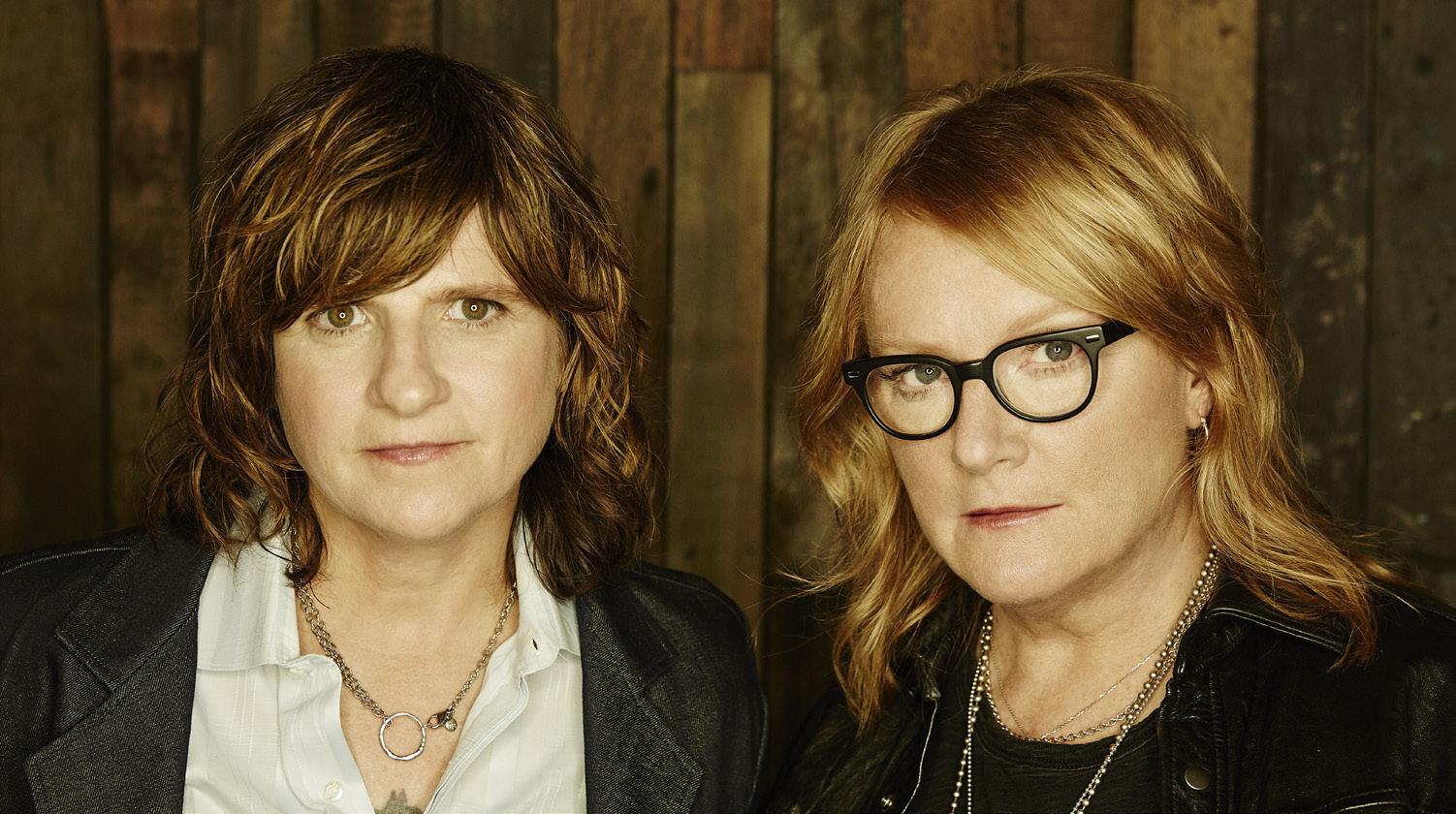
Twenty years after they began releasing records as the Indigo Girls, Amy Ray and Emily Saliers have politely declined the opportunity to slow down with age. With a legacy of releases and countless U.S. and international tours behind them, the Indigo Girls have forged their own way in the music business. Selling over 14 million records, they are still going strong. Amy and Emily are the only duo with top 40 titles on the Billboard 200 in the ‘80s, ‘90s, ‘00s and ‘10s.
In 2012, Saliers and her Indigo Girls partner Amy Ray embarked on a bold new chapter, collaborating with a pair of orchestrators to prepare larger-than-life arrangements of their songs to perform with symphony orchestras around the country. The duo found an elusive sonic sweet spot with the project, creating a seamless blend of folk, rock, pop, and classical that elevated their songs to new heights without scarifying any of the emotional intimacy and honesty that have defined their music for decades. Now, after more than 50 performances with orchestras across America, the experience has finally been captured in all its grandeur on the band’s stunning new album, Indigo Girls Live with the University of Colorado Symphony Orchestra. The power of unity, both in music and in life, has been an Indigo Girls calling card ever since they burst into the spotlight with their 1989 self-titled breakout album. Since then, the band has racked up a slew of Gold and Platinum records, taken home a coveted GRAMMY Award, and earned the respect of high-profile peers and collaborated with artists ranging from Michael Stipe to Joan Baez. NPR’s Mountain Stage called the group “one of the finest folk duos of all time” while Rolling Stone said, “they personify what happens when two distinct sensibilities, voices, and worldviews come together to create something transcendentally its own.”
The duo has balanced their long, successful musical career by supporting numerous social causes — the Indigo Girls don’t just talk the talk; they walk the walk. Both on and off the stage, Emily Saliers and Amy Ray have secured their spot as one of the most legendary musical acts of this generation.
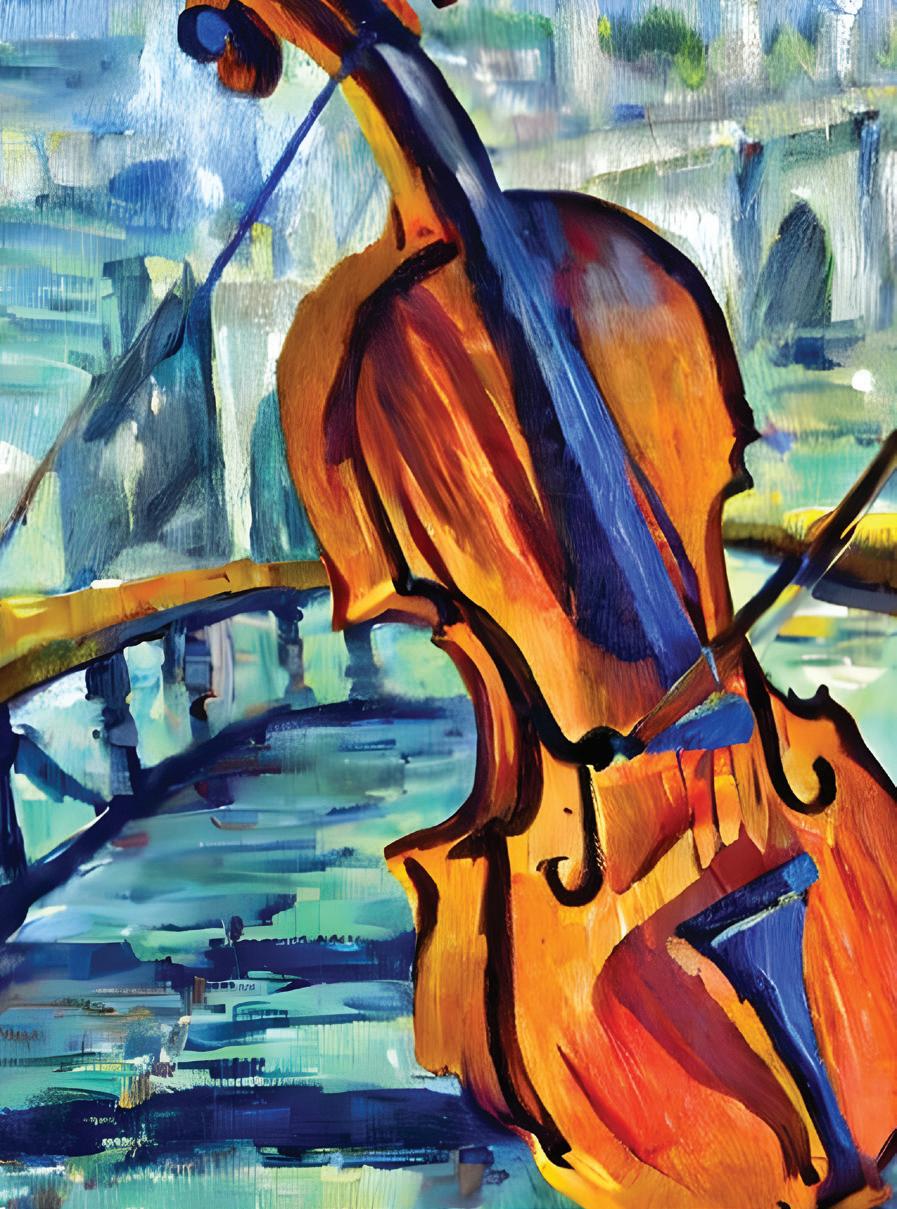
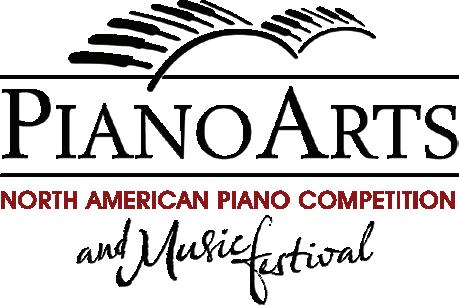
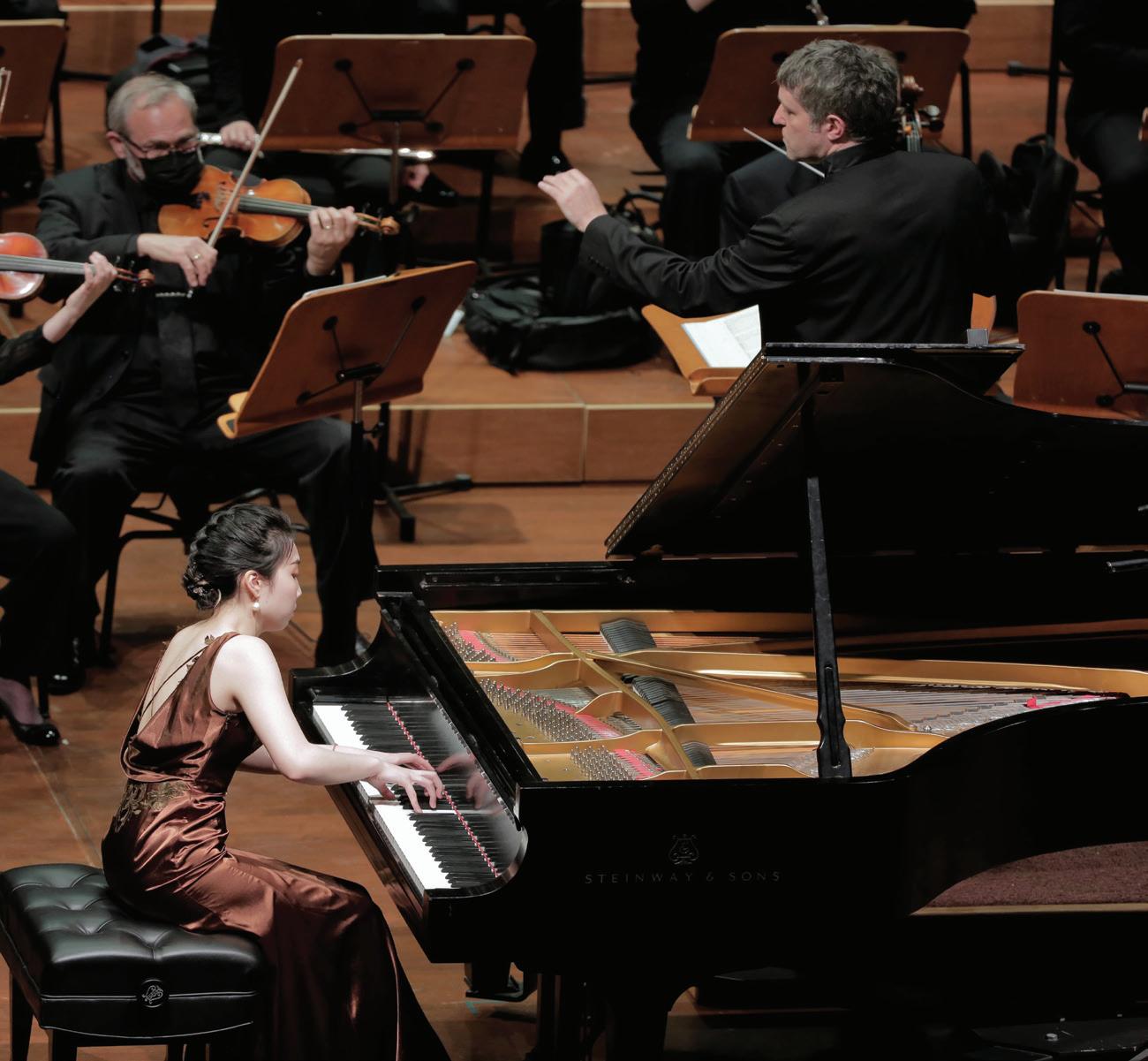

Friday, April 26, 2024 at 11:15 am
Saturday, April 27, 2024 at 7:30 pm
Sunday, April 28, 2024 at 2:30 pm
ALLEN-BRADLEY HALL
Ken-David Masur, conductor
Stewart Goodyear, piano
FRANZ LISZT
Concerto No. 1 in E-flat major for Piano and Orchestra, S. 124
I. Allegro maestoso
II. Quasi adagio — Allegretto vivace
III. Allegro marziale animato
Stewart Goodyear, piano
FRANZ LISZT
Totentanz for Piano and Orchestra, S. 126
Stewart Goodyear, piano
IN TERMISSION
HECTOR BERLIOZ
Symphonie fantastique, Opus 14
I. Daydreams and Passions: Largo — Allegro agitato e appassionato assai
II. A Ball: Allegro non troppo
III. In the Country: Adagio
IV. March to the Scaffold: Allegretto non troppo
V. Dream of the Witches’ Sabbath: Larghetto — Allegro
The 2023.24 Classics Series is presented by the UNITED PERFORMING ARTS FUND and ROCKWELL AUTOMATION. The MSO Steinway Piano was made possible through a generous gift from MICHAEL AND JEANNE SCHMITZ.
The length of this concert is approximately 1 hour and 45 minutes.
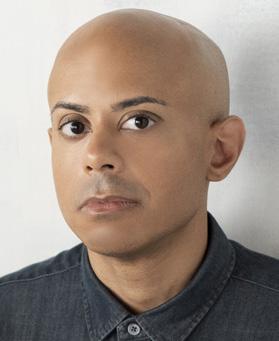
Proclaimed “a phenomenon” by the Los Angeles Times and “one of the best pianists of his generation” by the Philadelphia Inquirer, Stewart Goodyear is an accomplished concert pianist, improviser, and composer. Goodyear has performed with, and has been commissioned by, many of the major orchestras and chamber music organizations around the world.
Last year, Orchid Classics released Goodyear’s recording of his suite for piano and orchestra, Callaloo, and his piano sonata. His recent commissions include a piano quintet for the Penderecki String Quartet and a piano work for the Honens Piano Competition. Goodyear’s discography includes the complete sonatas and piano concertos of Beethoven, as well as concertos by Tchaikovsky, Grieg, and Rachmaninoff, an album of Ravel’s piano works, and an album, entitled For Glenn Gould, which combines repertoire from Mr. Gould’s U.S. and Montreal debuts. His Rachmaninoff recording received a Juno nomination for Best Classical Album for Soloist and Large Ensemble Accompaniment. Goodyear’s recording of his own transcription of Tchaikovsky’s The Nutcracker was chosen by The New York Times as one of the best classical music recordings of 2015. His discography is released on the Marquis Classics, Orchid Classics, Bright Shiny Things, and Steinway and Sons labels. His newest recording, Adolphus Hailstork’s Piano Concerto with the Buffalo Philharmonic under JoAnn Falletta, was released in March 2023 on the Naxos label. His composition for solo cello and piano, The Kapok, was recorded by Inbal Negev and Goodyear on Avie Records, and his suite for solo violin, Solo, was commissioned and recorded by Miranda Cuskson for the Urlicht Audiovisual label.
Highlights for the 2023.24 season are his performances at Summer for the City (Lincoln Center, New York), Southbank Centre (U.K.), Schleswig-Holstein Festival, his recital debut at Wigmore Hall, his debut with the City of Birmingham Symphony Orchestra, and his return to the Milwaukee Symphony, Buffalo Philharmonic, the Philadelphia Chamber Music Society, and his Carnegie Hall debut with the Royal Conservatory Orchestra.
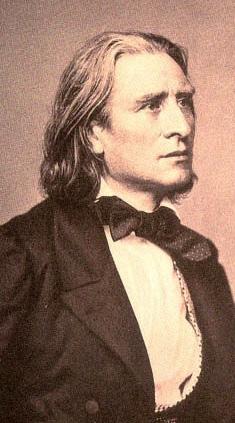
Born 22 October 1811; Doborján, Kingdom of Hungary, Austrian Empire (now Raiding, Austria)
Died 31 July 1886; Bayreuth, Germany
Concerto No. 1 in E-flat major for Piano and Orchestra, S. 124
Composed: 1830 – 1849; revised prior to publication in 1857
First performance: 17 February 1855; Weimar, Germany
Last MSO performance: 22 September 2013; Andreas Delfs, conductor; Jeremy Denk, piano
Instrumentation: 2 flutes; piccolo; 2 oboes; 2 clarinets; 2 bassoons; 2 horns; 2 trumpets; 3 trombones; timpani; percussion (cymbals, triangle); strings
Approximate duration: 19 minutes
Romantic-era Hungarian piano virtuoso, composer, and conductor Franz Liszt could improvise impossibly complex, wildly technical piano music at the drop of hat. But when he had to commit his ideas to paper, he would waffle over details, work, and then re-work sections again and again, and generally tinker with the music, sometimes for years, before calling it finished and ready to publish. He began his Piano Concerto No. 1 in the early 1830s, tweaking and rewriting it for 25 years before calling it finished. He performed as the soloist in the world premiere of the piece in 1855, and then worked on it for more than a year before deciding it was ready for publication.
Liszt wrote his second piano concerto, a one-movement piece, at about the same time as the first. It was premiered in 1857, with Liszt conducting the performance. He worked on that concerto for another four years before deciding it was finished.
Musicologists joke about how amazing it would be to find an unknown piece of music by a great composer in the attic of a castle, where it had been languishing for many years. That’s what happened with Liszt’s third piano concerto, although pieces of it were found in three different European libraries instead of a castle attic. Like Liszt’s second concerto, it is written as a single movement. Like his Concerto No. 1, the one on this program, it is written in E-flat major.
In the years of working on his Concerto No. 1, Liszt started out writing it as a standard threemovement concerto. But a single musical theme runs throughout the piece, which led him to fuse the three movements together into a single movement. But by the time Liszt finally published the piece, it was divided into four movements. Today, most performances honor a long tradition of following Liszt’s intentions for a single movement (as well as his final version of the piece) by presenting it in four movements, but with just the briefest of pauses between the movements.
Totentanz for Piano and Orchestra, S. 126
Composed: 1847 – 1849; revised in 1853 and 1859
First performance: 15 April 1865; The Hague, Netherlands
Last MSO performance: 25 February 1991; Harvey Felder, conductor; Jeffrey Siegel, piano
Instrumentation: 2 flutes; piccolo; 2 oboes; 2 clarinets; 2 bassoons; 2 horns; 2 trumpets; 3 trombones; tuba; timpani; percussion (cymbals, tam-tam, triangle); strings
Approximate duration: 15 minutes
Franz Liszt performed with such virtuosity and personal charisma that he developed a frantically ardent following — particularly among women. They would mob him at stage doors, tearing at his clothing, hoping to take home a scrap of fabric that he had worn. If this reminds you of the reaction fans had to the likes of Elvis Presley, you’re correct. Musicologists often refer to Liszt as the “first rock star,” even though rock music wouldn’t hit the airwaves for more than a century after his experiences with fans.
Like Mozart, some 50 years before him, Franz Liszt toured Europe as a child, with his father as his chaperone and tour manager. Also, like Mozart, he lost a parent while touring. Mozart lost his mother in Paris, far from his Salzburg home. Liszt also lost his father while on the road. The 15-year-old pianist was suffering from nervous exhaustion and was recuperating on the French Coast of the English Channel when his father contracted typhoid and died.
Liszt’s father, an avid amateur musician, had been his son’s principal musical influence up until his death. After that time, virtuoso violinist Niccolò Paganini became Liszt’s musical mentor. Losing him left the young Liszt obsessed with death — images of death in artworks in particular — and wrote several pieces inspired by death or by artworks depicting death.
Totentanz (“Dance of Death”), which is highly dramatic and virtuosic, is often referred to informally as Liszt’s third piano concerto for its intense piano part. It opens with the ominous “Dies irae” plainchant, which you will also hear on this program in the fifth movement of Berlioz’s 1830 Symphonie fantastique. Liszt began his Totentanz in the late 1830s, completing in 1849 and revising it in 1853 and 1857.
Some historians think Liszt based the piece on one or another artistic depiction of death, but Liszt did not leave any clear indication of that. Curiously, ten days after the premiere of Totentanz, Liszt began the process of becoming a Catholic priest. He only got as far as taking minor orders, but was known for the rest of his life as Abbé Liszt.
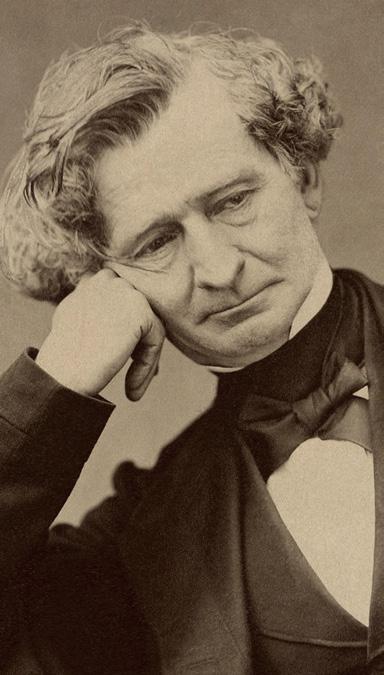
Born 11 December 1803; La Côte-Saint-André, France
Died 8 March 1869; Paris, France
Composed: 1830
First performance: 5 December 1830; Paris, France
Last MSO performance: 4 March 2018; Joshua Weilerstein, conductor
Instrumentation: 2 flutes (2nd doubles on piccolo); 3 oboes (2nd doubles on English horn, 3rd off-stage); 2 clarinets (2nd doubles on E-flat clarinet); 4 bassoons; 4 horns; 2 trumpets; 2 cornets; 3 trombones; 2 tubas; 2 timpani; percussion (bass drum, cymbals, off-stage chimes, tam-tam); strings
Approximate duration: 49 minutes
French composer Hector Berlioz created his own musical language, largely because he had little training in music. He took some lessons on flute and banjo as a youth and learned to play a few chords on the piano. Expected to follow in his father’s footsteps and become a doctor, he began medical training, but quit to take up music. He studied for a time at the Conservatoire de Paris, but took very little away from those studies. For many years, the music world debated whether his compositional style was based on creative genius or was simply a mess.
Symphonie fantastique, Berlioz’s first symphony, was popularized in the 20th century through Disney’s animated film Fantasia. With it, he wanted to create “something new.” He succeeded, creating an early example of “program music,” a piece based on a non-musical idea or story. Composer Franz Liszt, who would later coin the phrase “tone poem” for symphonic program music, heard the piece’s premiere and struck up a friendship with Berlioz afterward. The two remained friends for many years. Liszt wrote a piano transcription of the Symphonie fantastique about three years after its premiere so that people who didn’t have an opportunity to hear an orchestra play the piece could still get to know it.
The story on which Berlioz based Symphonie fantastique was highly autobiographical, telling of his obsessive love-at-first-sight for an actress named Harriett Smithson. He wrote a couple of program notes for the piece, each describing his inspiration and intentions for each section of it. Berlioz eventually married Smithson. But without having a language in common, the two could barely communicate and did not stay married long.
If you listen closely to the end of the final movement, you will hear the “Dies irae” plainchant, which you heard in Liszt’s Totentanz earlier on the program.
Movement I: Rêveries – Passions (Daydreams and Passions)
An artist sees a young woman and falls in love with her, which plants a haunting musical image in his mind.
Movement II: Un bal (A Ball)
Finding himself at a festive ball and then in a scene of great natural tranquility, he is haunted by images of Harriet.
Movement III: Scène aux champs (In the Country)
The artist is in a field, where he hears two sheepherders conversing. He keeps thinking of his beloved, but suffers disturbing premonitions.
Movement IV: Marche au supplice (March to the Scaffold)
Thinking his love is lost to him, the artist poisons himself with opium. Having taken too small a dose, he simply sleeps, but is tortured by vivid dreams of his own execution.
Movement V: Songe d’une nuit du sabbat (Dream of the Witches’ Sabbath)
The artist imagines his own funeral — a nightmarish scene full of witches, sorcerers, and other hideous figures. His beloved appears but is swept up into the orgy of horrible creatures. The dance of the witches mingles with the “Dies irae.”
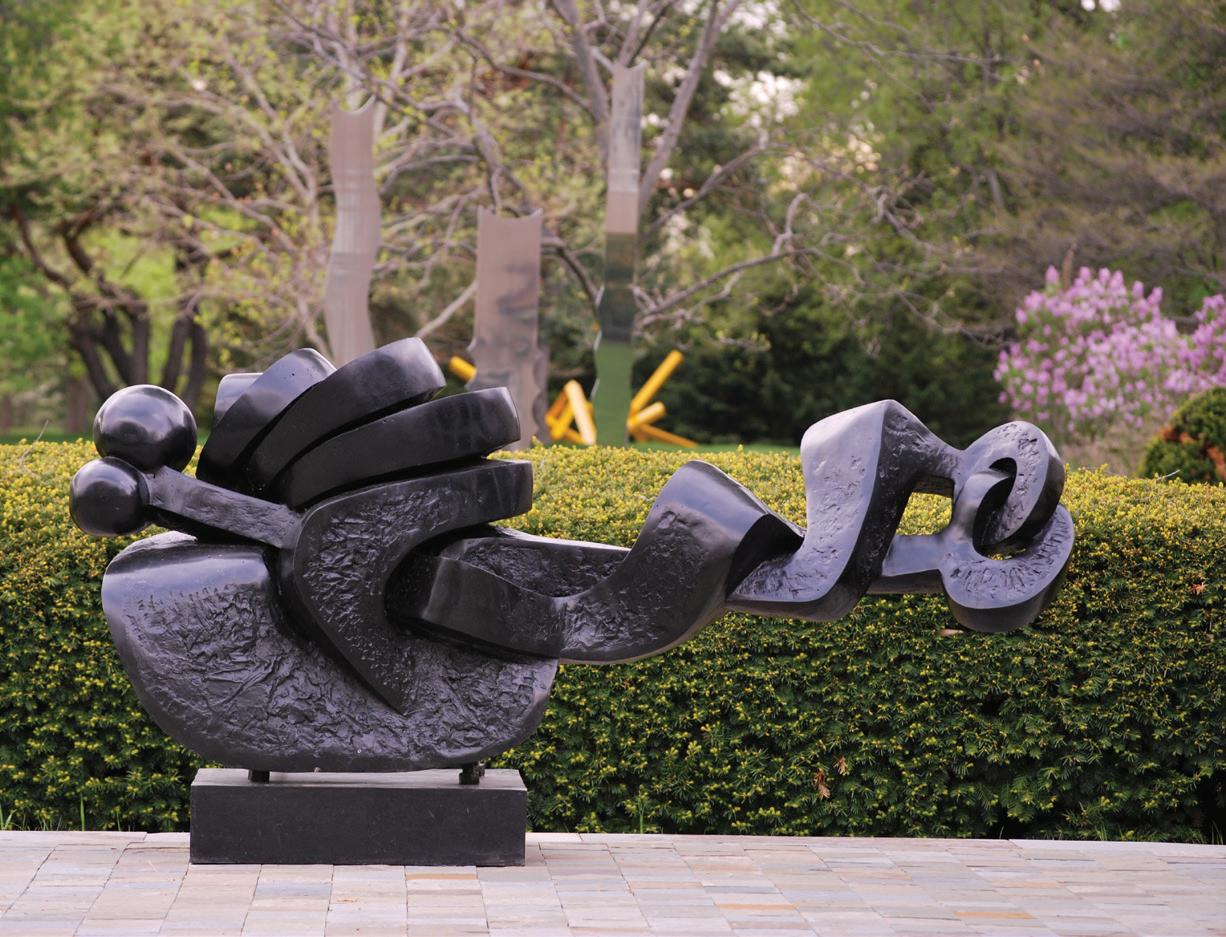
The Lynden Sculpture Garden works with artists, educators, students, and our community to create, support, and share experiences at the intersection of art, nature, and culture. Lynden


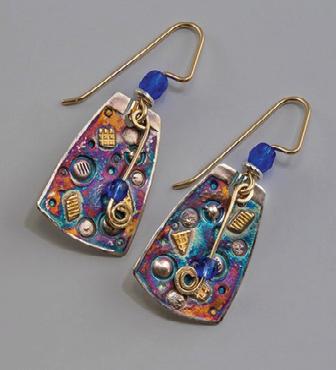



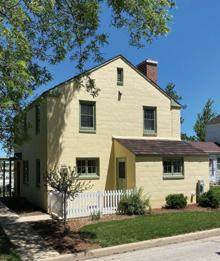









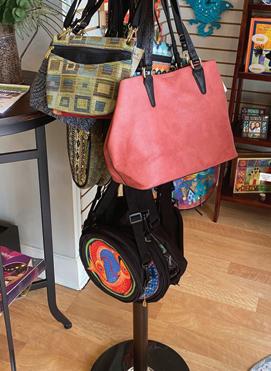





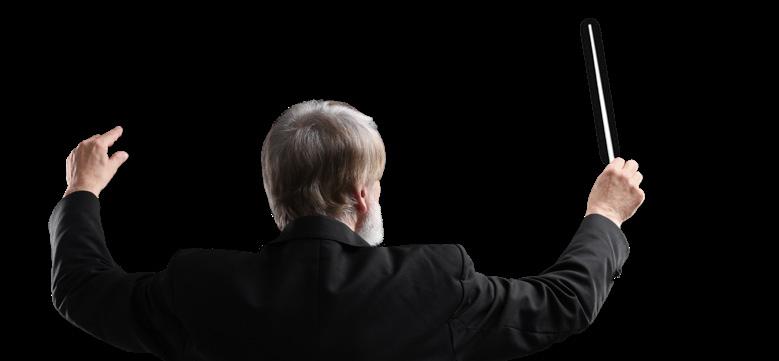


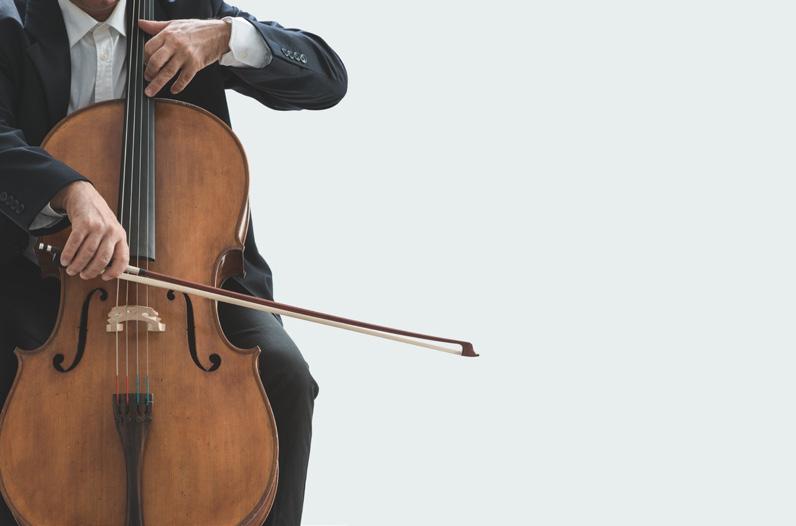





414.469.7779
scott.encore@att.net
As an advocate for the arts in and around Milwaukee, I am proud to see the theatre community thriving like never before. Ours features a constant flow of options in magnificent entertainment and thrills. The sheer variety of choices among live stage events (from Broadway tours to ballet, concert tours to pro and indie theatre companies, illusionists, comedians, the symphony, and more…), the diversity in offerings here are greater than many Midwestern locales. It is a labor of love (and my actual career) to attend, celebrate, and critique many of them; and with this new, ongoing column in your Encore playbills, I look forward to sharing the incredible talent in our hometown. Peeling back the curtain, this space will showcase the fascinating people and goings-on that make the magic come alive for audiences.
Whether through a song, a dance, or the spoken word, storytelling is what drives our collective desire to be entertained. And while it may sound, look, and often literally be amazing, it is ultimately the stories which provide a unique potential to build empathy and connection. Further, entertainment is one of the most gratifying and healthy ways to decompress. It is an example why experiences make more meaningful impressions on us than material items. As a culture, the arts feed our soul and your patronage supports an important industry.
Live events are popular year round. But the escapism is especially welcomed during the winter months. When perennial summer activities are hibernating, doors to the arts remain open. The ongoing programming at the Marcus Performing Arts Center is peppered with various genres. I hope you enjoy the show tonight. And the next time you’re looking for something to do, I tempt you to return… you’ll enjoy that experience, too.
Ryan Jay is an entertainment journalist, critic, and member of the Critics Choice Association. His movie and TV reviews can be seen Fridays on TMJ4’s “The Morning Blend,” where he additionally hosts the show’s “Art Beat” series. His local theatre coverage also appears on Facebook and Instagram @RyanJayReviews and at RyanJayReviews.com.
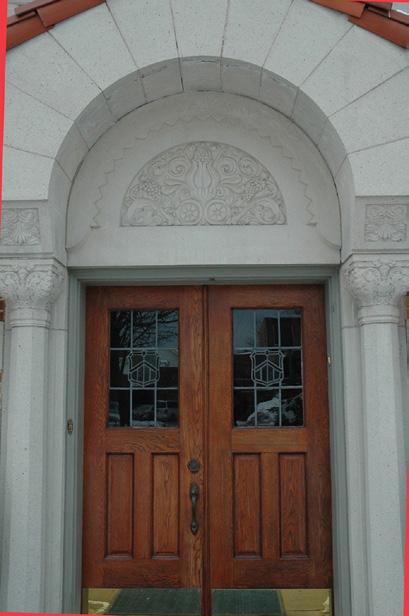
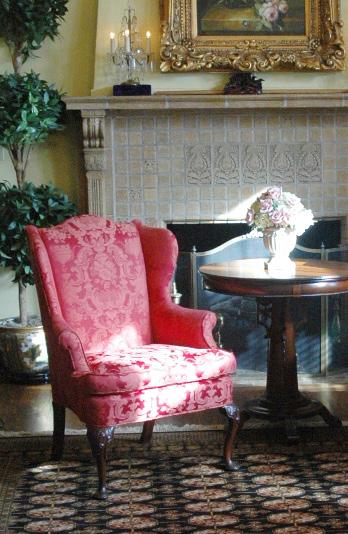
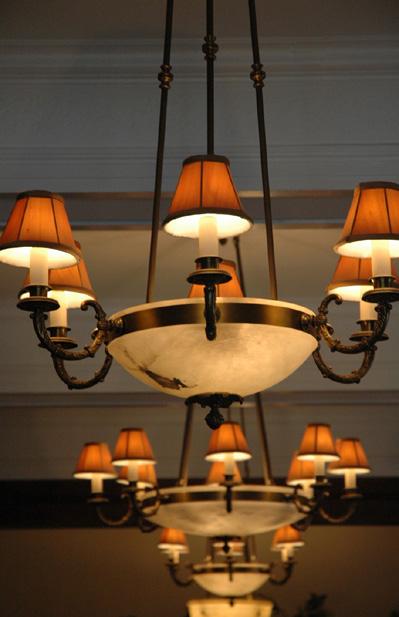
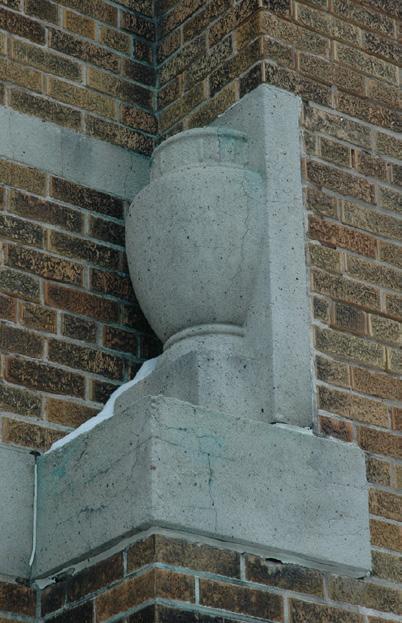
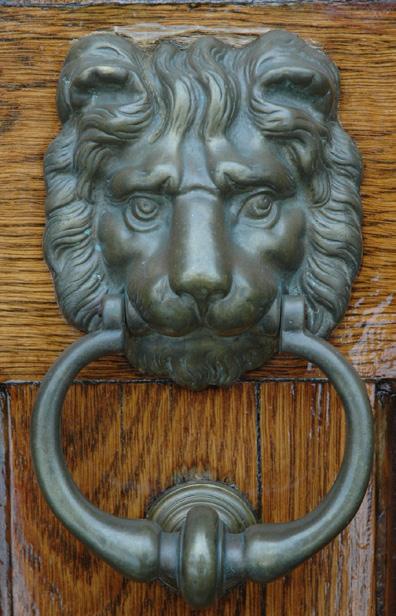
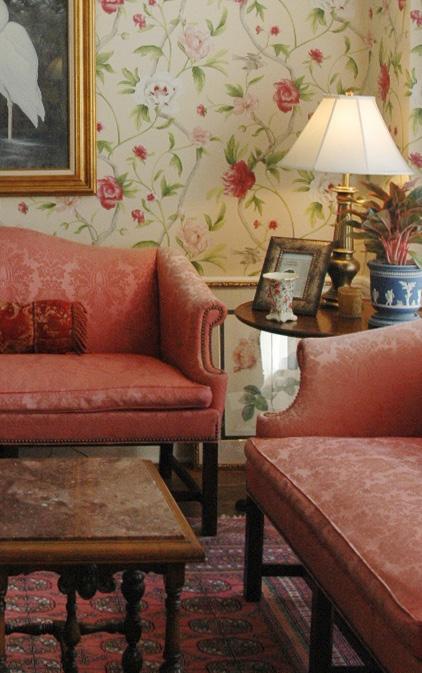
For over 45 years, families have trusted Jody to take care of the many details involved in pre-need planning, cremation or a traditional funeral service. Jody has the compassion, answers and experience to guide you every step of the way.
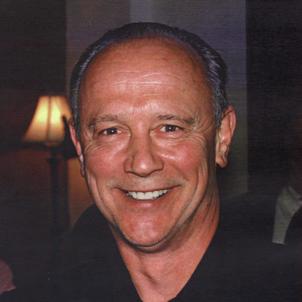
Jody Michael Armata, Resident Owner
3601 North Oakland Avenue • Milwaukee • 414-961-1812
NorthshoreFuneral.com
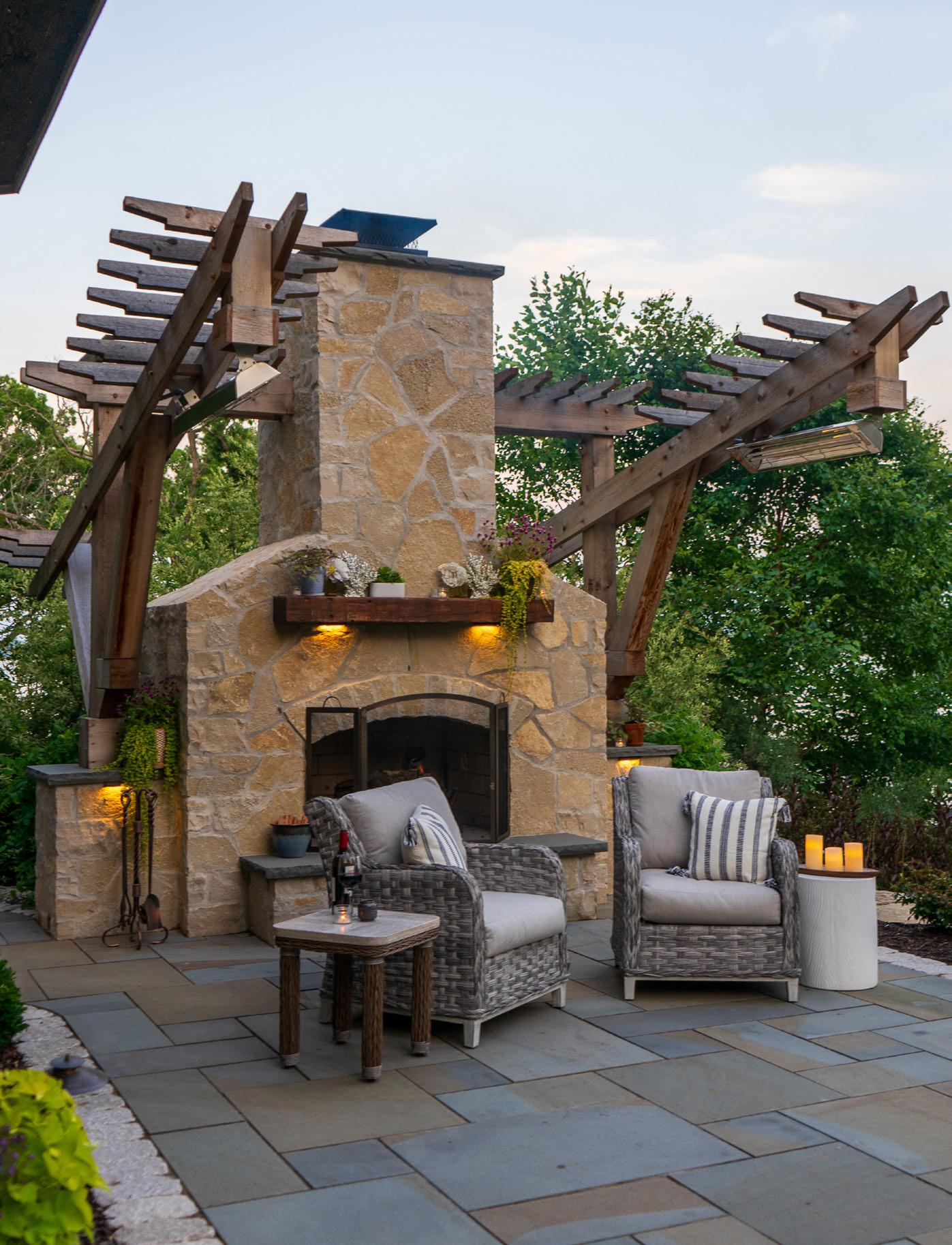

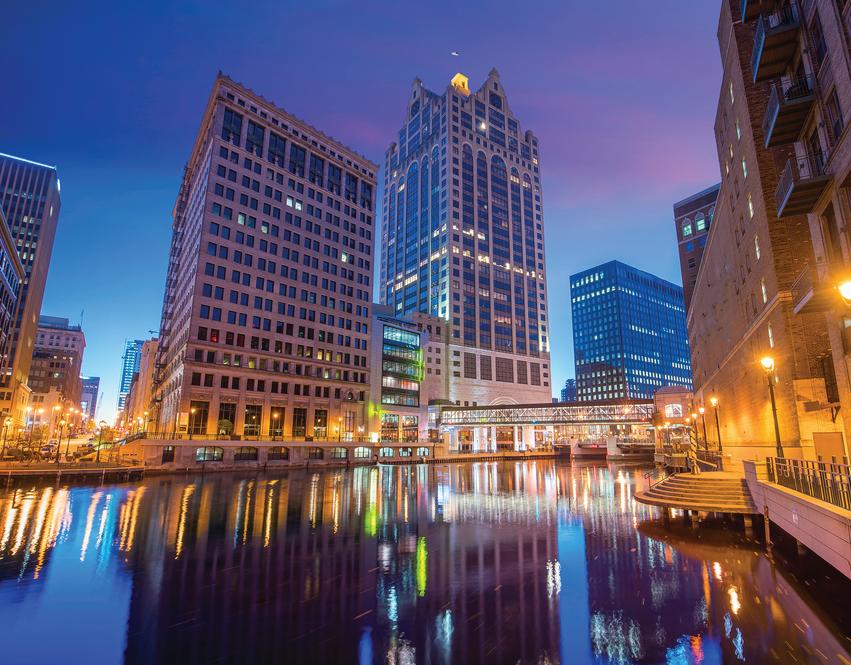







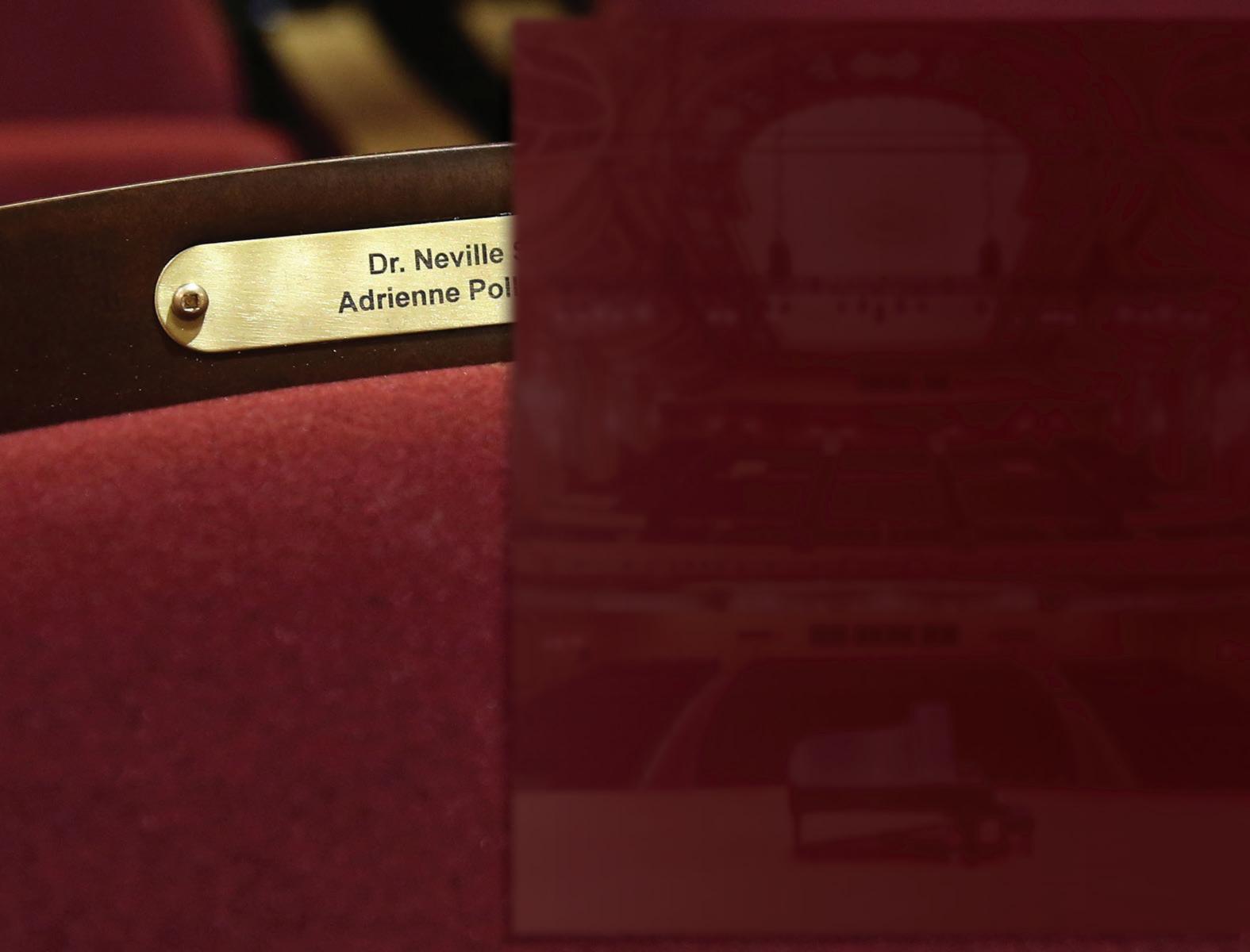





Visit Saint Kate for a pre-show dinner at ARIA, then come back for drinks and a stroll through our art galleries. Or, just stay the night. Either way, the fun doesn't have to end after curtain close.


Visionaries
Commitments of $1,000,000 and above
Jane Bradley Pettit
Charles and Marie Caestecker Concertmaster Chair
Herzfeld Foundation
Krause Family Principal Horn Chair
Dr. Keith Austin Larson
Principal Organ Chair
Phyllis and Harleth Pubanz
Gertrude M. Puelicher Education Fund
John and Judith Simonitsch Tuba Chair
Stein Family Foundation Principal Pops Conductor Chair
Polly and Bill Van Dyke Music Director Chair
Evonne Winston
Philanthropists
Commitments of $500,000 and above
Donald B. Abert Principal Bass Chair
Mr. Richard Blomquist
Patrice L. (Patti) Bringe
Margaret and Roy Butter
Principal Flute Chair
Donald and Judy Christl
Fred Fuller Trumpet Chair
Andrea and Woodrow Leung Principal
Second Violin Chair and Fred Fuller
Dorothea C. Mayer Principal Cello Chair
Milwaukee Symphony Orchestra League Principal Oboe Chair
Northwestern Mutual Foundation
Melitta S. Pick Endowed Piano Chair
Walter L. Robb Family
Principal Trumpet Chair
Robert T. Rolfs Foundation
Michael and Jeanne Schmitz President and Executive Director Chair
Gertrude Elser and John Edward Schroeder Guest Artist Fund
Walter Schroeder Foundation
Principal Harp Chair
Muriel C. and John D. Silbar Family
Principal Bassoon Chair
Marjorie Tiefenthaler
Principal Trombone Chair
Richard O. and Judith A. Wagner Family
Principal Viola Chair
Benefactors
Commitments of $100,000 and above
Four Anonymous Donors
Patty and Jay Baker Fund for Guest Artists
Mr. and Mrs. Frederick J.O. Blachly
Philip Blank English Horn Chair in memoriam to John Martin and his favorite cousin, Beatrice Blank
Judith and Stanton Bluestone
Estate of Lloyd Broehm
Louise Cattoi, in memory of David and Angela Cattoi
Lynn Chappy Salon Series
Terry J. Dorr and Michael Holloway
Elizabeth Elser Doolittle
Charitable Trust
Franklyn Esenberg
Principal Clarinet Chair
David L. Harrison Endowment for Music Education
Estate of Sally Hennen
Karen Hung and Robert Coletti
Richard M. Kimball
Bass Trombone Chair
William Randolph Hearst Foundation
Judith A. Keyes MSOL Docent Fund
Charles A. Krause
Donald and JoAnne Krause Music Education Endowment Fund
Martin J. Krebs
Co-Principal Trumpet Chair
Laskin Family Foundation
Charles and Barbara Lund
Marcus Corporation Foundation Guest Artist Fund
Andy Nunemaker French Horn Chair
John and Elizabeth Ogden
Gordana and Milan Racic
The Erika Richman MSO-MYSO Reading Workshop Fund
Pat and Allen Rieselbach
Friends of Janet F. Ruggeri
Assistant Principal Viola Chair
Allison M. & Dale R. Smith
Percussion Fund
Estate of Walter S. Smolenski, Jr.
Bert L. & Patricia S. Steigleder Charitable Trust
Donald B. and Ruth P. Taylor
Assistant Principal Clarinet Chair
Mrs. William D. Vogel
Barbara and Ted Wiley
Jack Winter Guest Artist Fund
Fern L. Young Endowment Fund for Guest Artists
The Musical Legacy Society recognizes and appreciates the individuals who have made a planned gift to the MSO. The MSO invites you to join these generous donors who have remembered the Orchestra in their estate plans.
Nine Anonymous Donors
George R. Affeldt
Mr. and Mrs. Charles W. Aring, Jr.
Dana and Gail Atkins
Robert Balderson
Adam Bauman
Priscilla and Anthony Beadell
Mr. F. L. Bidinger
Dr. Philip and Beatrice Blank
Mr. Richard Blomquist
Judith and Stanton Bluestone
Patrice L. (Patti) Bringe
Jean S. Britt
Laurette Broehm
Neil Brooks
Anthony and Vicki Cecalupo
Lynn Chappy
Ellen and Joe Checota
Donald and Judy Christl
Mary E. and James M. Connelly
Jo Ann Corrao
Lois Ellen Debbink
Mary Ann Delzer
Julie Doneis
Terry Dorr
Donn Dresselhuys
Beth and Ted Durant
Rosemarie Eierman
Franklyn Esenberg
John and Sue Esser
JoAnn Falletta
Donald L. Feinsilver, M.D.
Frank and Pauline Fichtner
Susie and Robert Fono
Ruth and John Fredericks
Mr. and Mrs. E. G. Goldsmith
Brett Goodman
Roberta Gordon
Marta P. and Doyne M. Haas
Ms. Jean I. Hamann
Ms. Sybille Hamilton
Kristin A. Hansen
David L. Harrison
Judy Harrison
Cheryl H. and Roy L. Hauswirth
Harold W. Heard
Cliff Heise
Sidney and Suzanne Herszenson
Dr. and Mrs. Samuel Hoke
Glenda Holm
Jean and Charles Holmburg
Karen Hung and Robert Coletti
Myra Huth
William and Janet Isbister
Lee and Barbara Jacobi
Leon and Betsy Janssen
Marilyn W. John
Faith L. Johnson
Mary G. Johnson
Bill and Char Johnson
Jayne J. Jordan
Judy and Gary Jorgensen
Debra Jupka
James A. and Robin S. Kasch
Howard Kaspin
James H. Keyes
Judith A. Keyes
Richard and Sarah Kimball
Ronald J. and Catherine Klokner
Mary Krall
JoAnne and Donald Krause
Martin J. and Alice Krebs
Ronald and Vicki Krizek
Cynthia Krueger-Prost
Susan Kurtz
Steven E. Landfried
Mr. Bruce R. Laning
Victor Larson
Arthur and Nancy Laskin
Tom and Lise Lawson
Andrea and Woodrow Leung
Mr. Robert D. Lidicker
Mr. and Mrs. John B. Liebenstein
Drs. John and Theresa Liu
Dr. John and Kristie Malone
Dana and Jeff Marks
Steven and Mary Rose Marinkovich
Ms. Kathleen Marquardt
Susan and Brent Martin
JoAnne Matchette
Rita T. and James C. McDonald
Patricia and James McGavock
Nancy McGiveran
Nancy McKinley-Ehlinger
Mrs. Christel U. Mildenberg
Christian and Kate Mitchell
Joan Moeller
Ms. Melodi Muehlbauer
Robert Mulcahy
Kathleen M. Murphy
Andy Nunemaker
Diana and Gerald Ogren
Lynn and Lawrence Olsen
Mr. and Mrs. Philip W. Orth
Lygere Panagopoulos
Jamshed and Deborah Patel
Gerald T. and Carol K. Petersen
Mr. and Mrs. Ronald R. Poe
Julie Quinlan Brame and Jason Brame
Ms. Harvian Raasch-Hooten
Gordana and Milan Racic
Christine Radiske and Herbert Quigley
Steve and Susan Ragatz
Catherine A. Regner
Ms. Monica D. Reida
Pat and David Rierson
Pat and Allen Rieselbach
Dr. Thomas and Mary Roberts
Gayle G. Rosemann and Paul E. McElwee
Roger B. Ruggeri and Andrea K. Wagoner
Nina Sarenac
Mary B. Schley in recognition of David L. Schley
Dr. Robert and Patty Schmidt
Michael J. and Jeanne E. Schmitz
James and Kathleen Scholler Charitable Fund
James Schultz and Donna Menzer
Mason Sherwood and Mark Franke
John and Judith Simonitsch
Margles Singleton
Lois Bernard and William Small
Dale and Allison Smith
Susan G. Stein
John Stewig and Richard Bradley
Dr. Robert A. and Kathleen Sullo
Terry Burko and David Taggart
Lois Tetzlaff
E. Charlotte Theis
David Tolan
Thora Vervoren
Dr. Richard O. and Judith A. Wagner
Veronica Wallace-Kraemer
Michael Walton
Brian A. Warnecke
Earl Wasserman
Alice Weiss
Sally Wells
Carol and James Wiensch
Rolland and Sharon Wilson
Floyd Woldt
Sandra and Ross Workman
Marion Youngquist
For more information on becoming a Musical Legacy Society member, please contact the Advancement Office at 414.226.7891.
The Milwaukee Symphony Orchestra truly values the music lovers in the concert hall and we thank our contributors to the Annual Fund for investing their time and support to this treasure. We gratefully acknowledge the contributions to the Annual Fund as of February 15, 2024
$100,000 and above
Clair and Mary Baum
Ellen and Joe Checota
Mr. and Mrs. George C. Kaiser
Donald and JoAnne Krause
Marty Krebs
Sheldon and Marianne Lubar Charitable Fund of the Lubar Family Foundation
Michael Schmitz
Julia and David Uihlein
$50,000 and above
Laura and Mike Arnow
Anthony and Vicki Cecalupo
Evonne Winston
$25,000 and above
Two Anonymous Donors
Bobbi and Jim Caraway
Mr. and Mrs. Franklyn Esenberg
Mrs. Susan G. Gebhardt
Doug and Jane Hagerman
Judy and Gary Jorgensen
Judith A. Keyes
Robert and Gail Korb
Dr. Brent and Susan Martin
Drs. Alan and Carol Pohl
Drs. George and Christine Sosnovsky
Charitable Trust
Drs. Robert Taylor and Janice
McFarland Taylor
Thora Vervoren
$15,000 and above
Two Anonymous Donors
Dr. Rita Bakalars
Marilyn and John Breidster
Mary and Terry Briscoe
Elaine Burke
Mary and James Connelly
Dr. Deborah and Jeff Costakos
Mrs. Alyce Coyne Katayama
Barbara and Harry L. Drake
George E. Forish, Jr.
Roberta Gordon
Jewish Community Foundation
Eileen and Howard Dubner
Donor Advised Fund
Charles and Barbara Lund
Maureen McCabe
William and Marian Nasgovitz
Lois and Richard Pauls
Pat Rieselbach
Sara and Jay Schwister
Allison M. and Dale R. Smith
John Stewig and Richard Bradley
Susi and Dick Stoll
Mr. and Mrs. Thomas R. Tiffany
Haruki Toyama
$10,000 and above
Two Anonymous Donors
Richard and JoAnn Beightol
Keith and Kate Brewer
Jennifer Dirks
Bruce T. Faure M.D.
Mary Lou M. Findley
Elizabeth and William Genne
Greater Milwaukee Foundation
Bernard J. and Marie E. Weiss Fund
Judith J. Goetz
Kim and Nancy Graff
Stephanie and Steve Hancock
Katherine Hauser
Drs. Carla and Robert Hay
Mr. and Mrs. Eric E. Hobbs
Dr. and Mrs. Samuel Hoke
Barbara Karol
Christine Krueger
Geraldine Lash
Mr. Peter L. Mahler
Keith Mardak and Mary Vandenberg
Mark and Donna Metzendorf
Dr. Mary Ellen Mitchanis
Christian and Kate Mitchell
Bob and Barbara Monnat
Patrick and Mary Murphy
Andy Nunemaker
Brian and Maura Packham
Julie Peay
Leslie and Aaron Plamann
Christine Radiske and Herbert Quigley
Lynn and Craig Schmutzer
Brian M. Schwellinger
Nancy and Greg Smith
Pamela Stampen
Mrs. George Walcott
Tracy S. Wang, MD
Mr. and Mrs. Francis Wasielewski
Diana J. Wood
Herbert Zien and Elizabeth Levins
PRINCIPAL CIRCLE
$5,000 and above
Eight Anonymous Donors
Anthony and Kathie Asmuth
Fred and Kay Austermann
Thomas Bagwell and Michelle Hiebert
Robert Balderson
Donna and Donald Baumgartner
Natalie Beckwith
Lois Bernard
Richard and Kay Bibler
William and Barbara Boles
Suzy and John Brennan
Roger Byhardt
Chris and Katie Callen
Ara and Valerie Cherchian
Donald and Judy Christl
Sandra and Russell Dagon
Karen Dobbs and Chris DeNardis
Mrs. William T. Dicus
Joanne Doehler
Jacquelyn and Dalibor Drummer
Beth and Ted Durant
Dr. Eric Durant and Scott Swickard
Dr. and Mrs. Harry A. Easom
Dr. Donald Feinsilver and JoAnn Corrao
Stan and Janet Fox
Alison Graf and Richard Schreiner
Jean and Thomas Harbeck Family Foundation
Margarete and David Harvey
James and Crystal Hegge
Ms. Mary E. Henke
Elizabeth and Herodotos Ellinas
Mark and Judy Hibbard
Lee and Barbara Jacobi
Leon and Betsy Janssen
Jayne J. Jordan
Alysandra and Dave Lal
Peter and Kathleen Lillegren
Wayne and Kristine Lueders
Gerald and Elaine Mainman
Dr. Ann H. and Mr. Michael J. McDonald
Mr. and Mrs. George Meyer
Judith Fitzgerald Miller
Rusti and Steve Moffic
William J. Murgas
Mr. and Ms. Bruce Myers
Mark Niehaus
Barbara and Layton Olsen
Elaine Pagedas
Ellen Rohwer Pappas and Timothy Pappas
Sharon R. Petrie
Dr. and Mrs. Richard A. Pierce-Ruhland
Jim and Fran Proulx
Jerome Randall and Mary Hauser
Dr. Donna Recht and Dr. Robert Newby
Dr. Marcia J.S. Richards
Steve and Fran Richman
Pat and David Rierson
Roger Ritzow
Dr. Thomas and Mary Roberts
Gayle G. Rosemann and Paul E. McElwee
Richard Eli Schoen
Mr. Thomas P. Schweda
Carlton Stansbury
Bob and Betty Streng
Jim Strey
Kathleen and Frank Thometz
John and Karen Tomashek
Mrs. James Urdan
Gary and Cynthia Vasques
Jim Ward
Mr. and Mrs. Donald S. Wilson
Jessica R. Wirth
$3,500 and above
Two Anonymous Donors
Dr. Philip and the spirit of Beatrice Blank
Mr. David E. Cadle
Deborah Elam
Kurt and Rosemary Glaisner
Drs. Margie Boyles and Stephen Hinkle
Barbara Hunt
David and Mel Johnson
Olof Jonsdottir and Thorsteinn Skulason
Dr. and Mrs. Kim
Benedict and Lee Kordus
Stanley Kritzik
Norm and Judy Lasca
Dr. Joseph and Amy Leung
Christopher Mullins and Kay Bokowy
Mr. and Mrs. Joel Needlman
Judy and Tom Schmid
Elaine Schueler
James Schultz and Donna Menzer
Roger and Judy Smith
Sue and Boo Smith
James and Catherine Startt
Ian and Ellen Szczygielski
Gile and Linda Tojek
Corinthia Van Orsdol and Donald Petersen
Janet Wilgus
Wilfred Wollner
Carol and Richard Wythes
Sandra Zingler
Leo Zoeller
$2,500 and above
Two Anonymous Donors
Priscilla and Anthony Beadell
Jacqlynn Behnke
Marlene and Bert Bilsky
Scott Bolens and Elizabeth Forman
Virginia Bolger
Jean Britt
Mr. and Mrs. Thomas F. Christie
Amy and Frederick Croen
Ms. Nancy A. Desjardins
Jack Douthitt and Michelle Zimmer
Mr. and Mrs. A. William Finke
Timothy Gerend
Natalia and Patrick Goris
Judith and David Hecker
Robert Hey
Charles and Jean Holmburg
Howard and Susan Hopwood
Jewish Community Foundation
Dorothy and Merton Rotter
Donor Advised Fund
Marilyn W. John
Candice and David Johnstone
Matthew and Kathryn Kamm
Megumi Kanda Hemann and Dietrich Hemann
Lynn and Tom Kassouf
Mr. and Mrs. F. Michael Kluiber
Kolaga Family Charitable Trust
Jane and Tom Lacy
Drs. Kaye and Prakash Laud
Frank Loo and Sally Long
Dr. and Mrs. Debesh Mazumdar
Jamshed and Deborah Patel
Gerald T. and Carol K. Petersen
David J. Peterson
Kathryn Koenen Potos
Susan Riedel
Ann Rosenthal and Benson Massey
Dottie Rotter
Rev. Doug and Marilyn Schoen
Ms. Betty Jean Schuett
Paul and Frances Seifert
Greg and Marybeth Shuppe
Mrs. George R. Slater
Dr. and Mrs. C. John Snyder
Leonard Sobczak
Loretto and Dick Steinmetz
Jeff and Jody Steren
Jeff and Anne Thomas
John and Anne Thomas
Mr. Ed Tonn
Nancy Vrabec and Alastair Boake
Larry and Adrienne Waters
Ann and Joseph Wenzler
Floyd Woldt
Jim and Sandy Wrangell
$1,500 and above
Five Anonymous Donors
Donald and Jantina Adriano
Dr. Joan Arvedson
Richard and Sara Aster
Paul Barkhaus
Margaret and Bruce Barr
Richard Bergman
Elliot and Karen Berman
Roger Bialcik
Dr. and Mrs. Squat Botley
Walter and Virginia Boyer
Cheri and Tom Briscoe
Marcia P. Brooks and Edward J. Hammond
James Brown and Ann Brophy
Dr. and Mrs. James D. Buck
Karen and Harry Carlson
Teri Carpenter
Tim and Kathleen Carr
Mr. and Mrs. Stephen L. Chernof
Edith Christian
Lynda and Tom Curl
Larry and Eileen Dean
Paul Dekker
Steven and Buffy Duback
Sigrid Dynek and Barry Axelrood
Donald Elliott
Signe and Gerald Emmerich, Jr.
Shirley Erwin
Joseph and Joan Fall
Robert and Kristin Fewel
Jo Ann and Dale Frederickson
Robert Gardenier and Lori Morse Gardenier
Kimberly Gerber
Jane K. Gertler
Martha Giacobassi
Pearl Mary Goetsch
Colette Goldammer
Ralph and Cherie Gorenstein
James and Sarah Gramentine
Mr. and Mrs. James Grigg
Greater Milwaukee Foundation
Leesley B. and Joan J. Hardy
Randall J. and Judith F. Hake
Family Foundation
Ginny Hall
Amber and Scott Halvorson
Leila and Joe Hanson
Jean and John Henderson
Deane and Vicky Jaeger
Robert S. Jakubiak
Faith L. Johnson
Maja Jurisic and Don Fraker
Dr. Bruce and Anna Kaufman
Dr. Jack and Myrna Kaufman
Brian and Mary Lou Kennedy
Julilly Kohler
Milton and Carol Kuyers
Maritza and Mario Laguna
Larry and Mary LeBlanc
Mr. and Mrs. Mark Levy
Bruce and Elizabeth Loder
Kathleen Lovelace
Stephen and Jane Lukowicz
Dr. John and Kristie Malone
Dr. Daniel McCarty
Guy and Mary Jo McDonald
Mr. and Mrs. Dean Mehlberg
Genie and David Meissner
Mrs. Debra L. Metz
Gregory and Susan Milleville
Mark and Carol Mitchell
Christine Mortensen
Jean A. Novy
Laurie Ocepek
Lynn and Lawrence Olsen
Susan M. Otto
Dr. and Mrs. James T. Paloucek
Raymond and Janice Perry
Cathy P. Procton
Francis J. Randall
Philip Reifenberg
Lysbeth and James Reiskytl
Drs. Walter and Lisa Rich
Roger Ruggeri and Andrea Wagoner
Keri Sarajian and Rick Stratton
Mr. Thomas Schneider
Lawrence and Katherine Schnuck
Mr. and Mrs. Mark W. Schwallie
Kristin Shebesta
Dr. and Mrs. Kevin R. Siebenlist
Margles Singleton
Richard and Sheryl Smith
Joan Spector
Mr. James Stanke
David Taggart and Terry Burko
Joan Thompson
Mr. Stephen Thompson
Sara Toenes
Drs. Steven and Denise Trinkl
Mike and Peg Uihlein
Mr. and Mrs. Lynn F. Unkefer
James Van Ess
Michael Walton
Robert and Lana Wiese
Rolland and Sharon Wilson
Prati and Norm Wojtal
Lee and Carol Wolcott
Mr. William Zeidler and Mrs. Denise Zeidler
$1,000 and above
Four Anonymous Donors
Drs. Helmut and Sandra Ammon
Sue and Louie Andrew
Ruth Agrusa
Betty Arndt
Paul Barkhaus
James and Nora Barry
Mr. James M. Baumgartner
Jack Beatty
Mr. and Mrs. Ronald Beckman
Dianne and David Benner
Mrs. Kristine Best
Mr. Lawrence Bialcik
Karen and Geoffrey Bilda
Lynn and John Binder
Marjorie Bjornstad
Greg Black
Robert Borch and Linda Wickstrom
Lois and Robert Brazner
Michael and Marianna Bruch
Barbara and Dr. Henry Burko
Tom Buthod
Ms. Trish Calvy
David and Oksana Carlson
Ms. Margaret R. Cary
Ms. Carol A. Carpenter
Mr. and Mrs. Richard J. Cecil
John Chain
B. Lauren and Margaret Charous
Margaret Cieslak-Etlicher
Margaret Crosby
Ellen Debbink
Mrs. Linda DeBruin
Ms. Kristine Demski
Thomas C. Dill
Mary Paula Dix
Madison Dohmen
Mr. and Mrs. Thomas Dougherty
Gloria and Peter Drenzek
Mary Ann Dude
Tom Durkin and Joan Robotham
Tina Eickermann
Jill and George Fahr
Anne and Dean Fitzgerald
Barbara and Richard Frank
Gerald Gensch and Ellen Conley
Matelan and Carole Glaske
Stephen and Bernadine Graff
Greater Milwaukee Foundation
Dresselhuys Family Fund
Jay Kay Foundation Fund
Douglas and Margaret Ann Haag
Karleen Haberichter
Dale and Sara Harmelink
Charles W. Helscher
Dr. Sidney and Suzanna Herszenson
Jenny and Bob Hillis
Mr. and Mrs. Bernard C. Hlavac
Jeanne and Conrad Holling
Laura and James Holtz
Richard and Jeanne Hryniewicki
Mr. and Mrs. James H. Hunter III
Kathryn and Alan Janicek
Amy S. Jensen
Mr. and Mrs. Charles Kahn
Rose and Dale Kaser
Robert and Dorothy King
Joseph W. Kmoch
Michael Koss/Koss Foundation
Anthony and Susan Krausen
Dr. and Mrs. John Krezoski
Mary E. Lacy
Katherine and Ian Lambert
David and Deborah Lenz
Micaela Levine and Thomas St. John
John and Janice Liebenstein
Mr. and Mrs. David Lindberg
Matt and Patty Linn
Ann Loder
Richard and Roberta London
Ms. Joan Maas
Ann MacIver
Stephen and Judy Maersch
Mr. Peter Mamerow
Jennifer McClure
Joni and Joe McDevitt
Mr. Brian McLinden
Drs. Daryl Melzer and Rita Hanson
Ray and Elaine Meyer
Ms. Mary Ann Mueller
William and Laverne Mueller
Richard and Isabel Muirhead
David and Gail Nelson
Dr. and Mrs. Joseph Novak
William and Cynthia Prost
John and Susan Pustejovsky
Mr. and Mrs. Thomas Quadracci
Seth Rawson
Dr. Ken C. Redlin
Lysbeth and James Reiskytl
Dan and Anna Robbins
Kevin Ronnie and Karen Campbell
Mrs. David Y. Rosenzweig
Allen and Millie Salomon
Wilbert and Genevieve Schauer Foundation
Mr. Thomas Schneider
Elaine and Martin Schreiber
Stephen and Lois Schreiter
Phil Schumacher and Pauline Beck
Bob and Sally Schwarz
Fred and Ruth Schwertfeger
Scott Silet
Mr. Reeves E. Smith
Mr. James Stanke
Ken and Dee Stein
Bonnie L. Steindorf
Sally Swetnam
Ms. Lola Tegeder
Rebecca and Robert Tenges
Tim and Bonnie Tesch
Kent and Marna Tess-Mattner
Jacquelyn and Way Thompson
Mr. and Mrs. James S. Tidey
Joy Towell
Constance U’Ren
Ruth A. Way
Ms. Beth L. Weckmueller
Henry J. Wellner and James Cook
Jerome and Bonnie Welz
Mrs. Barbara Wesener
Robert and Barbara Whealon
A. James White
Sammis and Jean White
Linda and Dan Wilhelms
Terry and Carol Wilkins
Ron and Alice Winkler
Frank and Inge Wintersberger
Melinda and Thomas Wolf
Daryl and Bonnie Wunrow
Marilyn and Doug Zwissler
Laura and Mike Arnow
Baird Funds
BMO Bank
Brewers Community Foundation, Inc.
Tony and Vicki Cecalupo
Ernst & Young, LLP
Godfrey & Kahn, S.C.
Kahler Slater Architects, Inc
Alyce Katayama
Marietta Investment Partners
Susan and Brent Martin
Bob and Barb Monnat
Northern Trust
Northwestern Mutual
Old National Bank
Brian and Maura Packham
Rite-Hite Holding Corporation Foundation
Rockwell Automation
U.S. Bank
We Energies Foundation
Westbury Bank
Herb Zien and Liz Levins
Mary Allmon and Michael Allen
Alice Ambrowiak
Helmut and Sandra Ammon
Adam and Rachel Arndt
Laura and Mike Arnow
Ahmed and Laila Azam
Kerry Bartelt
Erica and Eric Berg
Jeremy Billow
Virginia Bolger
Trisha Bournelis
Lory Bowman
Meg Boyd
Brewers Community Foundation, Inc.
Bob Bronzo
Norman Buebendorf
Carrie and Mike Burton
Daniel and Allison Byrne
Nancy Caliendo
Anthony and Vicki Cecalupo
Brian and Dawn Cooke
Michael Cyrus
Brett Dawsey
George and Sandra Dionisopoulos
Jennifer Dirks
Jonathan Dowling
Elizabeth and Robert Draper
Dale and Syndee Edman
Marquita Edwards
April Falk
George Forish
Tom Funk
Marion and Mitch Gottschalk
John and Peggy Griffith
Rex Gromer
Matt and Victoria Haas
Terry Hamann and Alan Perlstein
Kim Hardy
Korina Harman
Kathryn Hausman and Matthew Millson
Katherine and Christopher Hermann
LaShonda Hill
Judy Hsiung
Myra Huth
Dustin Hutter
Alyce Katayama
Tamara Knudsen
William Kravit and Mari Katz
Konrad Kuchenbach
Jason Kuwayama
Emily Laga
Tom Lindow
Christopher and Krista Ludwig
Elaine and Gerald Mainman
Bill Mastoris
Melinda and Ken-David Masur
Susan McVey
Sallie and George Meyer
Monica Meyer and Brandon Beale
Christian and Kate Mitchell
Robert and Barbara Monnat
Arsen and Allison Mugurdumov
Patrick and Mary Murphy
Mark Niehaus
Rebecca and David Nowacek
Maggey and David Oplinger
Susan Otto
Brian and Maura Packham
Gian Perrone
Tirzah Peterson
Terrell and Amber Pierce
Leslie and Aaron Plamann
Kathryn Podmokly
David Polzin
Deanna Singh and Justin Ponder
Kathryn Reinardy
Thomas and Lynn Richtman
Patricia Rieselbach
Chris Riggs
Rite-Hite Holding Corporation Foundation
Michael Rossetto
Linda and Mark Schaefer
Michael Schmitz
Craig and Lynn Schmutzer
Janel and Randal Schneider
Lawrence and Katherine Schnuck
Christopher Schreiber
Gretchen Seamons
Leonard Silva
Dorothy Smaglick
Dale and Allison Smith
David Smullen and Merri Moore
Patrick Sorek
Pamela Stampen
Linda and Gile Tojek
Haruki Toyama
Marq and Rachel Truscott
Daniel and Katie Urbanek
Rebecca Valcq
Andrew and Lisa Vedder
Lauren Vollrath
Thomas Warden
Piotr Wasiak and Elizabeth Odian
Jay and Madonna Williams
Dawn and Joseph Wilson
Blaine Wisniewski
Suzanne Zwaska
The Milwaukee Symphony Orchestra truly values the generosity of musicloving patrons in the concert hall and throughout the community. We especially thank our Corporate and Foundation contributors for investing their time and support to this treasure. We gratefully acknowledge contributions from:
$1,000,000 and above
United Performing Arts Fund
$250,000 and above
Argosy Foundation
The Lynde and Harry Bradley Foundation
Laskin Family Foundation
$100,000 and above
Herzfeld Foundation
Rockwell Automation
We Energies Foundation
$50,000 and above
Bader Philanthropies, Inc.
Chase Family Foundation
Greater Milwaukee Foundation
Helen and Jeanette Oberndorfer Fund
Milwaukee Symphony Orchestra Fund
Melitta S. and Joan M. Pick
Charitable Trust
$25,000 and above
Anonymous
Greater Milwaukee Foundation
Gertrude Elser and John Edward Schroeder Fund
Norman and Lucy Cohn Family Fund
Johnson Controls
Milwaukee County Arts Fund (CAMPAC)
Old National Bank
R.D. and Linda Peters Foundation
Schoenleber Foundation, Inc.
Wisconsin Arts Board
Wisconsin Department of Tourism
$15,000 and above
A.O. Smith Foundation, Inc.
Bert L. & Patricia S. Steigleder Charitable Trust
Frank L. Weyenberg Charitable Trust
Komatsu Mining Corp Foundation
Krause Family Foundation
National Endowment for the Arts
U.S. Bank
Wisconsin Arts Board
$10,000 and above
Charles D. Ortgiesen Foundation
Ellsworth Corporation
General Mills Foundation
Gladys E. Gores Charitable Foundation
Greater Milwaukee Foundation
David C. Scott Foundation
Donald and Barbara Abert Fund
William A. and Mary M Bonfield, Jr. Fund
Jane Bradley Pettit Foundation
Northwestern Mutual
Ralph Evinrude Foundation
William and Janice Godfrey Family Foundation
Wispact Foundation
$5,000 and above
ANON Charitable Trust
Brico Fund
Dean Family Foundation
Frieda and William Hunt Memorial
Gene and Ruth Posner Foundation, Inc.
Greater Milwaukee Foundation
Margaret E. Sheehan Memorial Fund
Roxy and Bud Heyse Fund/Journal Fund
Julian Family Foundation
Koeppen-Gerlach Foundation, Inc.
Milwaukee Arts Board
Richard G. Jacobus Family Foundation
Rite-Hite Holding Corporation Foundation
Schwartz Foundation
Westbury Bank
$2,500 and above
Camille A. Lonstorf Trust
Greater Milwaukee Foundation
Eleanor N. Wilson Fund
ELM II Fund
Henry C., Eva M., Robert H. and Jack J. Gillo Charitable Fund
Margaret Heminway Wells Fund
Hamparian Family Foundation
Hydrite Chemical Co.
Theodore W. Batterman Family Foundation
$1,000 and above
Albert J. & Flora H. Ellinger Foundation
Anthony Petullo Foundation, Inc.
Clare M. Peters Charitable Trust
Delta Dental
Einhorn Family Foundation
Greater Milwaukee Foundation
Bechthold Family Fund
Carrie Taylor & Nettie Taylor
Robinson Memorial Fund
Cottrell Balding Fund
Del Chambers Fund
George and Christine Sosnovsky Fund
George and Joan Hoehn Family Fund
Irene Edelstein Memorial Fund
Mildred L. Roehr & Herbert W. Roehr Fund
Joan and Fred Brengel Family Foundation, Inc.
Townsend Foundation
Usinger Foundation
$500 and above
Anonymous
Barney Family Foundation
Bell Foundation
Greater Milwaukee Foundation
Nancy E. Hack Fund
Robert C. Archer Designated Fund
Loyal D. Grinker
MLG Capital
Steinway Piano Gallery of Milwaukee
The Milwaukee Symphony Orchestra gratefully acknowledges the following corporations and foundations who match their employees’ contributions to the Annual Fund.
Abbott Laboratories
Aurora Health Care
Benevity Community Impact Fund
BMO Harris Bank
Bucyrus Foundation, Inc.
Carrier Matching Gift Program
Caterpillar Foundation
CNH Industrial America LLC
Dominion Foundation
Eaton Corporation
GE Foundation
Give Lively
Humana
Johnson Controls Foundation
Kohl’s Corp.
Morgan Stanley
Northwestern Mutual
Reader’s Digest Foundation
Ross Gives Back
Stifel
Thrivent Financial
The Travelers Insurance Co.
U.S. Bank
United Way of Greater Milwaukee and Waukesha County
Wisconsin Energy Corporation
The MSO gratefully acknowledges the following organizations and individuals for their gifts of product or services:
Becker Design
Belle Fiori –Official Event Florist of the MSO
Patrice Bringe
The Capital Grille
Central Standard Craft Distillery
Downer Avenue Wine & Spirits
Drury Hotels
Encore Playbills
GO Riteway Transportation Group
Godfrey & Kahn, S.C.
Hilton Milwaukee City Center and Milwaukee ChopHouse
Kohler Co.
Marcus Hotels & Resorts
Marcus Corporation
Ogletree Deakins
Saint Kate – The Arts Hotel –Official Hotel of the MSO
Darwin Sanders
Sojourner Family Peace Center
Steinway Piano Gallery of Milwaukee
Studio Gear –Official Event Partner of the MSO
Thomas and Mary Wacker
The Milwaukee Symphony Orchestra proudly partners with the following members of the 2023.24 Marquee Circle. We thank these generous partners of our annual corporate subscription program for their charitable contributions and for connecting their corporate communities with the MSO.
Ellsworth Corporation
Hupy and Abraham, S.C.
Port Washington State Bank
Walker Forge, Inc.
In honor of Laura and Michael Arnow’s (33 1/3) wedding anniversary
Fredrick and Kay Austermann
Kathleen D. Ryan
In memory of J. Mark Baker
Laura Petrie Anderson
Juliana Fortune
Mr. Jim Gettel
Kathleen and Charles Marn
Milwaukee Chamber Choir
In memory of Dennis and Barbara
Benjamin
Marie Zelmer
In honor of Warren and Wendy Blumenthal’s 50th wedding anniversary
Laurie Schweizer
In honor of Ian Burch
Susan Burch
In honor of Dr. Henry Burko
Debra Altshul-Stark and Brian Stark
Ms. Ann Brice
Gabriel Ceci
James and Mary Connelly
Beth Kushner and Marc Rasansky
Patricia Stevenson
Ronnie Stuck
David Taggart
Dr. Richard O. and Judith A. Wagner
Mary Jo and Lawrence Wellenstein
In honor of Joe and Ellen Checota and Andy Nunemaker and Lee Weeks
James Stadler
In honor of Matthew D’Attilio
John Friedman
In memory of Russell Dagon
Mark and Marlene Schrager
In honor of Amy Domagalski
From the MSO Advancement Team
In memory of Steven Paul Glick
Jeff Glick
In memory of Reverend Michael
Joseph Hammer
David L. Harrison, Jr.
In memory of Thomas Hausman
Jane Hausman and William G. Finley
In memory of Michael Karnel
Elizabeth Maas
In memory of Nancy and Arthur Laskin
Joan J. Hardy
In memory of Dr. Keith Austin Larson
Austin Larson
Rev. Curtis A. Larson
Suzanne Zinsel
In memory of Lawrence Lauwasser
Louis Harrison
Bob and Gerri Kolb
Jill Miller
Michelle Rapaport
Dori Schatell
In memory of Zdenek Macal
Terry Burko and David Taggart
In memory of William MacPherson
Kathleen Wing
In honor of the Milwaukee
Symphony Chorus Sopranos
Ms. Jill Kortebein
In honor of Robert Meldman
Drs. Alan and Carol Pohl
In honor of Monica Meyer
Kimberly D’Angelo
In honor of Dorothy Meyers 90th!
Debra Goldstein
In celebration of our 50 years together
Ray and Elaine Meyer
In honor of Emily Nechvatal
Tim Nechvatal
In memory of Helen Oberkirsch
Francine Cervasio
In memory of Carol K. Petersen
Leesley B. and Joan J. Hardy
In memory of Mary G. Peterson
David J. Peterson
Gretchen Saunders
In honor of Carolyn Purpora
Kristine Paprocki
In memory of David Reber
James and Charmaine LaBelle
Gretchen Saunders
Marie and Gary Zellmer
In memory of I. Carl Romer
Beulah Romer Erickson
In memory of Dr. David Rosenzweig
Jane and David Bednarek
Mike Heller
Mary Payne
In memory of Elaine Sauer
Teresa and Robert Klug
In memory of John Sawchuk
Daniel Sawchuk
In memory of Debra Schaefer
Karen Copper
In honor of Patrick Schley
Jeffrey Pereles
Imogene Schley
In memory of Michael C. Schnier
Tricia Burlage
Jan Cain
Julie Hartman
Pamela Mueller
Laura Paluszkiewicz
Mike Park
Elaine Schnier
In honor of Bob Schuppel
Sarah Cauwels
In honor of Sonora Slocum
Dennis and Patricia DuBoux
In honor of Morton and Naomi Soifer
Jonathan Soifer
In memory of Lynne Soto
Paul Trotter
In memory of Betty Stasson
Barbara and Dr. Henry Burko
In memory of Mary Anne Stephen
Stevan Sijacki Choir
In memory of Edie Bonness Tomsyck
Kamaile Anderwald
Beth Bonness
Maureen Bonness
Timothy Dykstal
Patty Giuffre
Mrs. Robert Gross
Chris Lambach
Robert Mueller
Guy Tomsyck
In honor of Philip Tyrrell Sr.
Karalee Tyrrell
In honor of Fischer & Catherine Van
Handel
Ellen Hruzek
In honor of Tom Varney
Stanley Kokotiuk
In memory of Gerald Wetter
Deborah and Gerald Wetter
In memory of Anne T. White
A. James White
In honor of Peter Wicklund and Ruby Shemanski
Ms. Linda Jenewein
In memory of Walter Maurice
“Reese” Wininsky
American Lung Association
Lisa Bachmann
Bruce and Melissa Block
Eric Blom
James Brindley
Penny Fena
Beth Giacobassi
Deborah Grayson
Mr. Timothy A. Hosch
Barbara Jacobs
Eleanor Jung and Thomas Jung
Carol Justin
T. Katkocin
Regina Lee
Marisa Lemorande
Catherine and Patrick McGinn
Janet McMahon
Erika Sward
Terry Burko and David Taggart
Dick Tollefsen
Mary Clare Vanderschaaf
In memory of JeanAnn Wirth
Joanne A. Sobolik
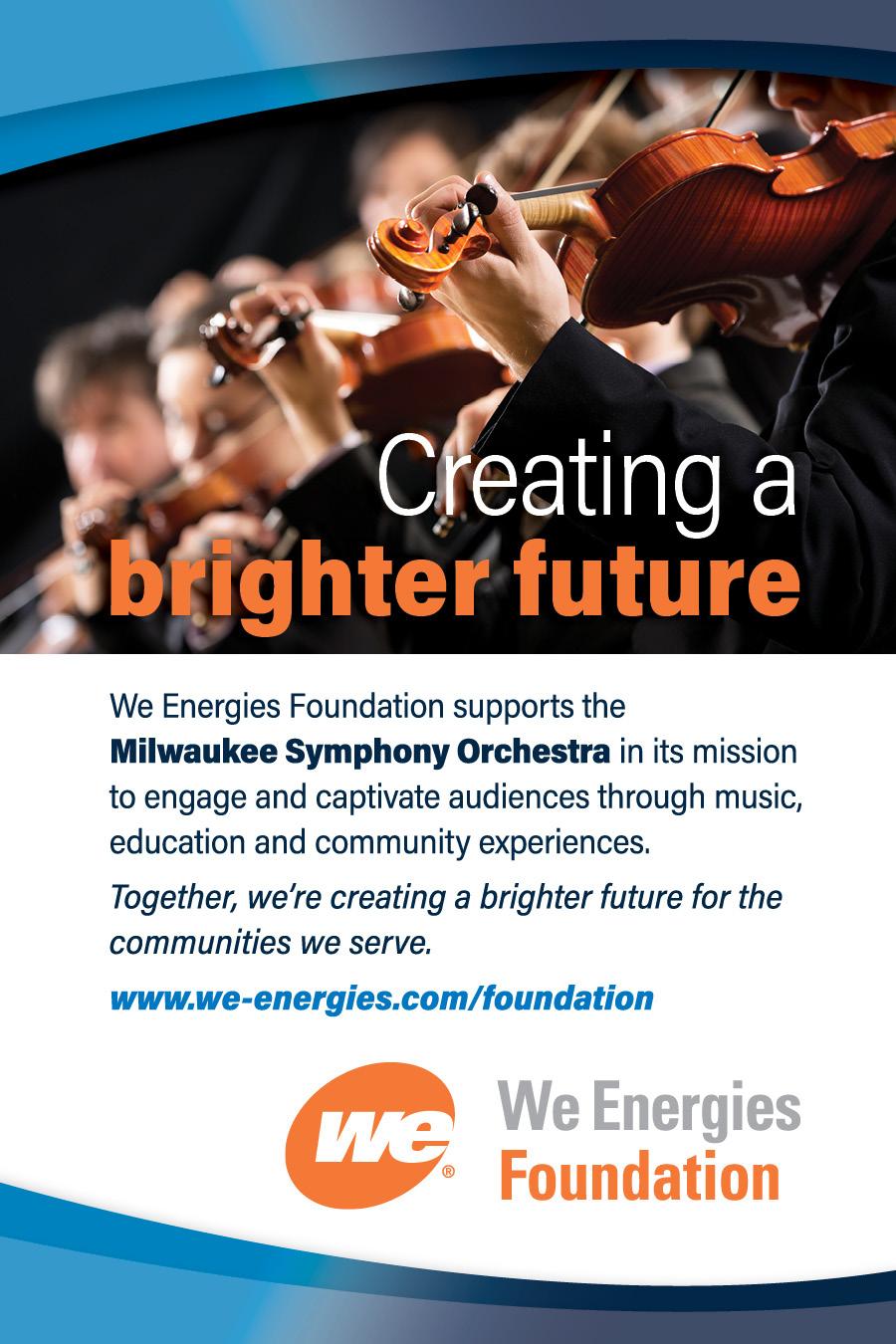
Susan Martin, Chair
Andy Nunemaker, Immediate Past Chair
Christian Mitchell, Chair-Elect
David Uihlein, Honorary Co-Chair
Julia Uihlein, Honorary Co-Chair
Gregory Smith, Secretary; Chair, Governance Committee
Patrick Murphy, Treasurer; Chair, Finance Committee
Douglas M. Hagerman, Chair, Chair’s Council
Ken-David Masur, Music Director, Polly and Bill Van Dyke Music Director Chair
Mark Niehaus, President & Executive Director, Michael and Jeanne Schmitz Chair
Susan Martin, Chair
Andy Nunemaker, Immediate Past Chair
Christian Mitchell, Chair-Elect
Douglas M. Hagerman Chair, Chair’s Council
Eric E. Hobbs
Robert Klieger, Chair, Players’ Council
Mark A. Metzendorf, Chair, Advancement Committee
Patrick Murphy, Treasurer; Chair, Finance Committee
Mark Niehaus, President & Executive Director, Michael and Jeanne Schmitz Chair
Maura Packham, Chair, Equity, Diversity, & Inclusion (EDI) Task Force
Michael J. Schmitz
Gregory Smith, Secretary; Chair, Governance Committee
Haruki Toyama, Chair, Artistic Direction Committee
Kate Brewer
Jeff Costakos
Jennifer Dirks
Steve Hancock, Chair, Education Committee
Charlotte Hayslett
Alyce Coyne Katayama
Peter Mahler, Chair, Grand Future Committee
Robert B. Monnat
Leslie Plamann, Chair, Audit Committee
Craig A. Schmutzer
Jay E. Schwister, Chair, Retirement Plan Committee
Dale R. Smith
Pam Stampen
Herb Zien, Chair, Facilities Management Committee
DESIGNATED DIRECTORS
City
Sachin Chheda
Theodore Perlick Molinari
Pegge Sytkowski, Chair, Marketing & Advocacy Committee
County
Fiesha Lynn Bell
Garren Randolph
Robert Klieger, Chair, Players’ Council
Ilana Setapen, Player-at-Large
Douglas M. Hagerman, Chair
Chris Abele
Laura J. Arnow
Richard S. Bibler
Charles Boyle
Roberta Caraway
Judy Christl
Mary E. Connelly
Donn R. Dresselhuys
Eileen Dubner
Franklyn Esenberg
Marta P. Haas
Jean Holmburg
Barbara Hunt
Leon Janssen
Judy Jorgensen
James A. Kasch
Lee Walther Kordus
Michael J. Koss
JoAnne Krause
Martin J. Krebs
Keith Mardak
Andy Nunemaker
James G. Rasche
Stephen E. Richman
Michael J. Schmitz, Immediate Past Chair
Joan Steele Stein
Linda Tojek
Joan R. Urdan
Larry Waters
Kathleen A. Wilson
Bruce Laning, Trustee Chair
Amy Croen
Steven Etze
Douglas M. Hagerman
Bartholomew Reute
David Uihlein
Andy Nunemaker (2014-2020)
Douglas M. Hagerman (2011-2014)
Chris Abele (2004-2011)
Judy Jorgensen (2002-2004)
Stephen E. Richman (2000-2002)
Stanton J. Bluestone* (1998-2000)
Allen N. Rieselbach* (1995-1998)
Edwin P. Wiley* (1993-1995)
Michael J. Schmitz (1990-1993)
Orren J. Bradley* (1988-1990)
Russell W. Britt* (1986-1988)
James H. Keyes (1984-1986)
Richard S. Bibler (1982-1984)
John K. MacIver* (1980-1982)
Donn R. Dresselhuys (1978-1980)
Harrold J. McComas* (1976-1978)
Laflin C. Jones* (1974-1976)
Robert S. Zigman* (1972-1974)
Charles A. Krause* (1970-1972)
Donald B. Abert* (1968-1970)
Erhard H. Buettner* (1966-1968)
Clifford Randall* (1964-1966)
John Ogden* (1962-1964)
Stanley Williams* (1959-1962)
* deceased
Mark Niehaus, President & Executive Director, Michael and Jeanne Schmitz Chair
Bret Dorhout, Vice President of Artistic Planning
Tom Lindow, Vice President & Chief Financial Officer
Monica K. Meyer, Vice President of Advancement
Terrell Pierce, Vice President of Orchestra Operations
Kathryn Reinardy, Vice President of Marketing & Communications
Rick Snow, Vice President of Facilities & Building Operations
Marquita Edwards, Director of Community Engagement
Michele Fitzgerald, Executive Assistant & Board Liaison
Michael Rossetto, Senior Director of Advancement & Major Gifts
William Loder, Director of Advancement
Maggie Seer, Director of Institutional Giving
Kathryn Hausman, Individual Giving Manager, Research & Discovery
Julie Jahn, Campaign Coordinator
Elise McArdle, Grant Writer
Tracy Migon, Development Systems Manager
Andrea Moreno-Islas, Advancement Coordinator
Leah Peavler, Institutional Giving Manager
Emma Zei, Annual Fund Manager
Rebecca Whitney, Director of Education
Courtney Buvid, ACE & Education Manager
Nathan Hickox-Young, Concerts for Schools & Education Manager
Cathy O’Loughlin, Controller
Jenny Beier, Senior Accountant
Arianis Hernandez, Account Coordinator
Cynthia Moore, Human Resources, Diversity & Inclusion Manager
Erin Kogler, Director of Communications
Lizzy Cichowski, Senior Marketing Manager
Adam Cohen, Patron Systems Manager
Katelyn Farebrother, Marketing Coordinator
David Jensen, Communications Coordinator
Zachary-John Reinardy, Lead Designer
Kerry Tomaszewski, Communications Manager
Luther Gray, Director of Ticket Operations & Group Sales
Al Bartosik, Box Office Manager
Marie Holtyn, Box Office Supervisor
Adam Klarner, Box Office Coordinator
Gabrielle Brady, Erika Guenther, Vanessa Luster, Andrew Perry, Rora Sanders, Tifani Ziemba
Sean Goldman, Director of Operations
Françoise Moquin, Director of Orchestra Personnel
Kayla Aftahi, Operations Coordinator
Paul Beck, Principal Librarian, Anonymous Donor, Principal Librarian Chair
Maiken Demet, Assistant to the Music Director
Albrecht Gaub, Artistic Coordinator
Matthew Geise, Assistant Librarian & Media Archivist
Emily Wacker Schultz, Artistic Associate
Jeremy Tusz, Audio & Video Producer
Tristan Wallace, Production Manager/Live Audio, MSO | Technical Director, BSC
Christina Williams, Chorus Manager
Patrick G. H. Schley, Director of Event Services
Donovan Burton, Facilities Manager - 2nd Shift
Travis Byrd, Facilities Manager
Sam Hushek, Events & Volunteer Manager
Lisa Klimczak, House Manager
David Kotlewski, House Manager
Zed Waeltz, Senior House Manager
Anthony Andronczyk, Ky Catlett, Fatima Gomez, Eliana Kiltz, Roger Kocher, Klaire Maduscha, Brennan Martinez, Max McGraw, Cynthia Nord, Ashley Patin, Steve Pfisterer, Amy Rook, Anne Sempos, Jenn Sorvick, Michael Stebbins, Elliot White, Heather Whitmill
David Zakroczymski, Director of Operations
Josh Langenohl, Senior Operations Manager
Ben Bartlett, Sous Chef
AND WE’RE FOR THE ARTS! UPAF supports the entertainment and excitement of over 50+ diverse performing arts groups across Southeastern Wisconsin.

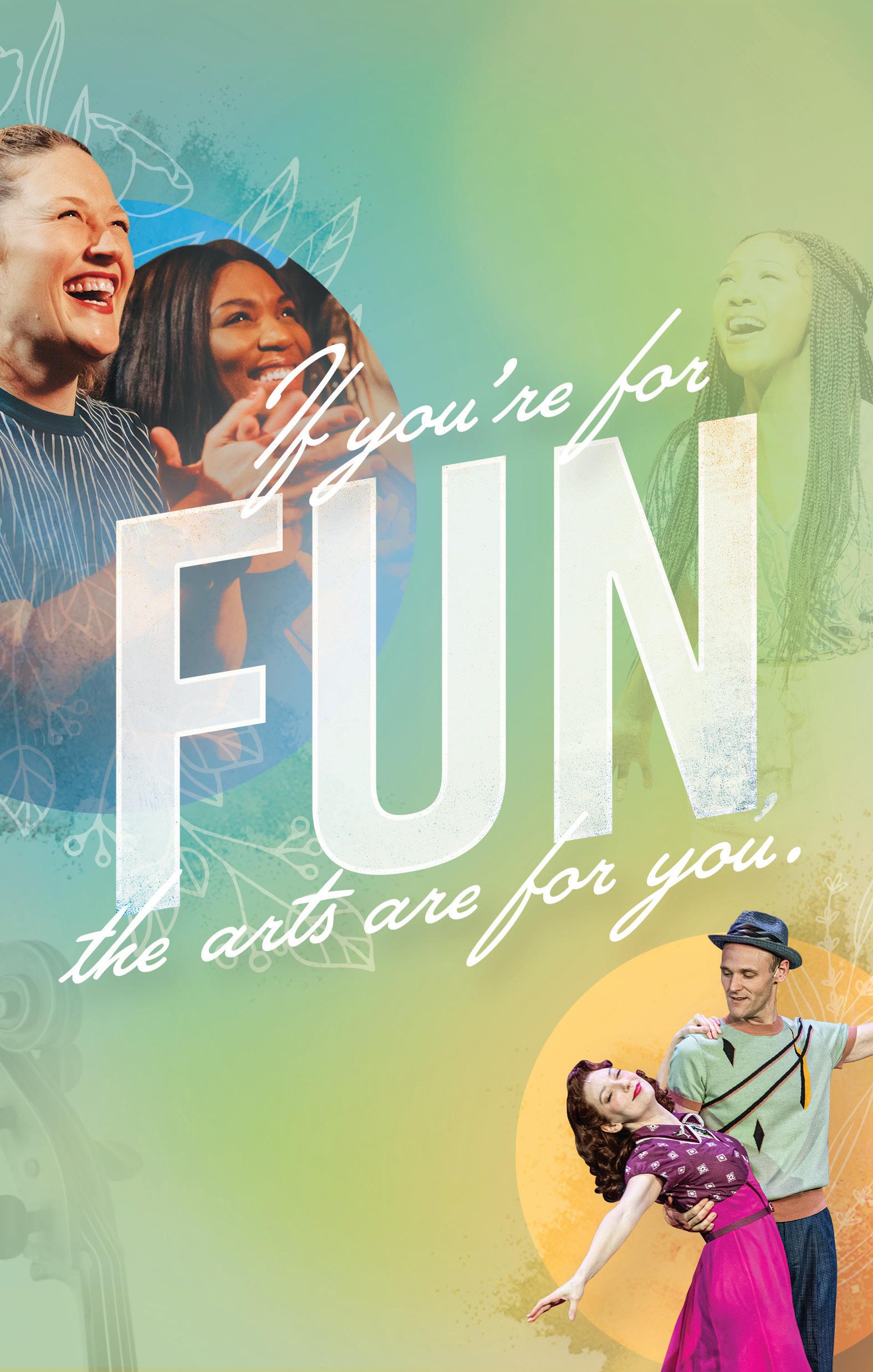
JOIN US AND DONATE TODAY AT UPAF.ORG/DONATE


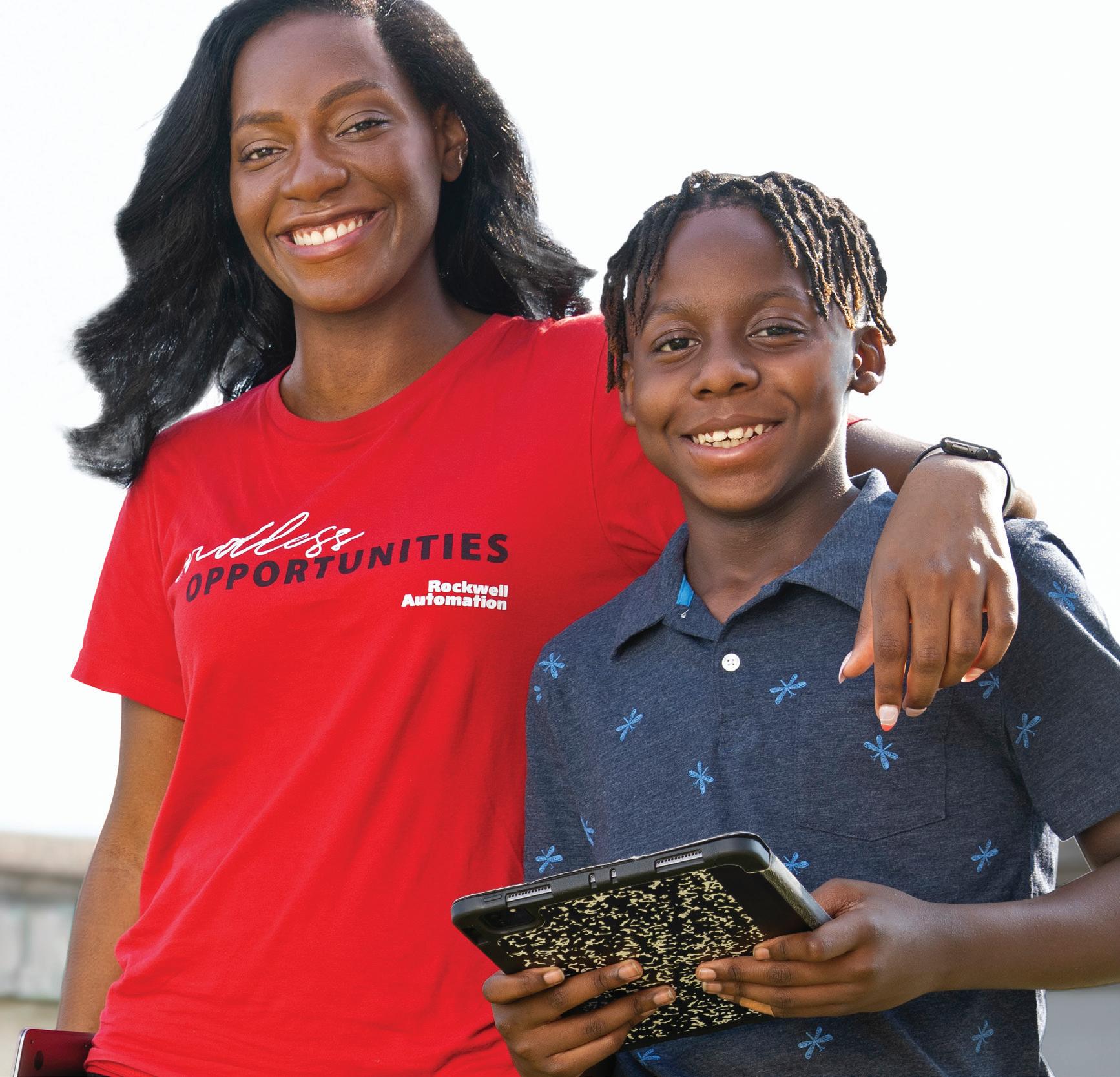
Together, we are expanding human possibility in our communities –helping nurture the next generation of builders, makers and innovators.
